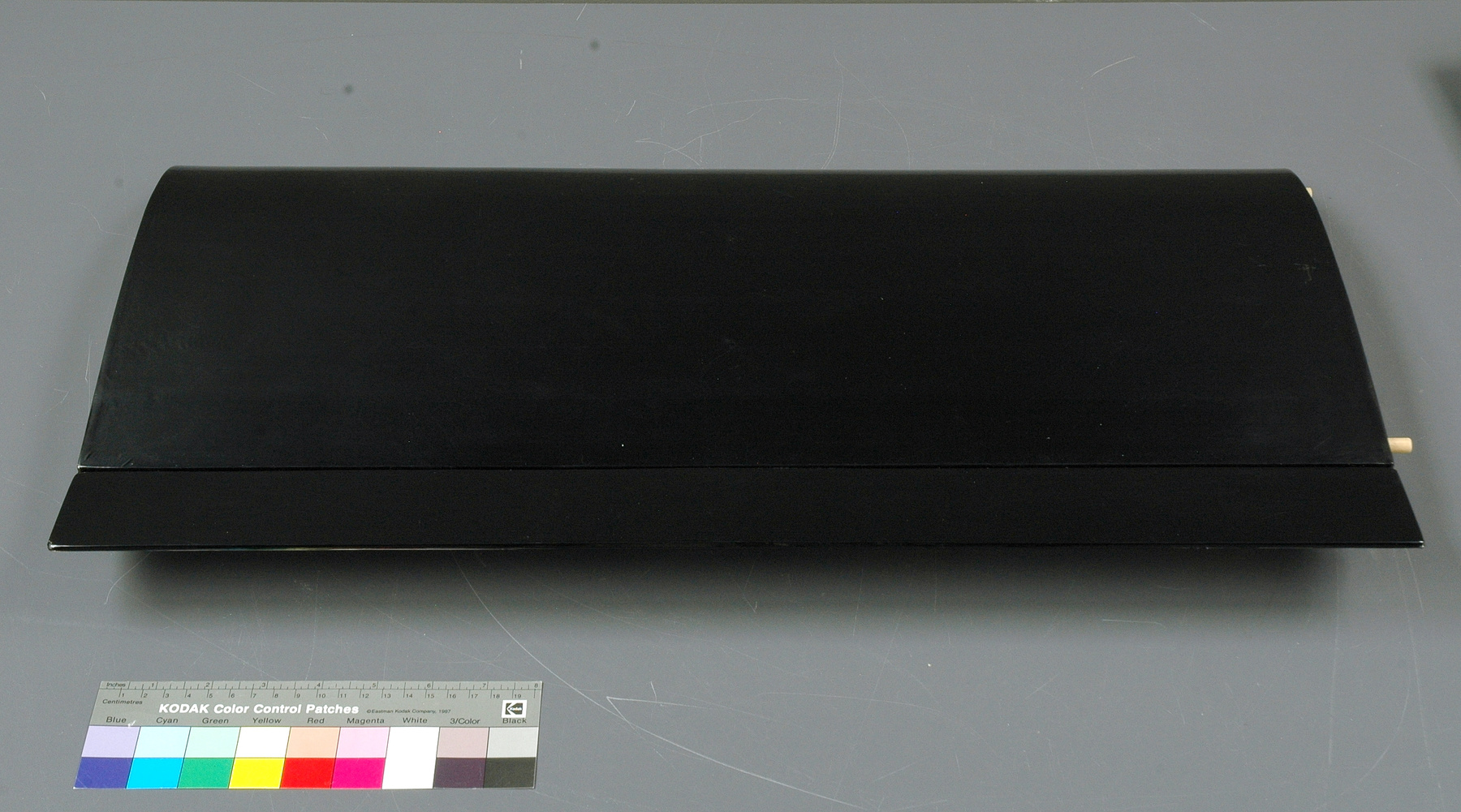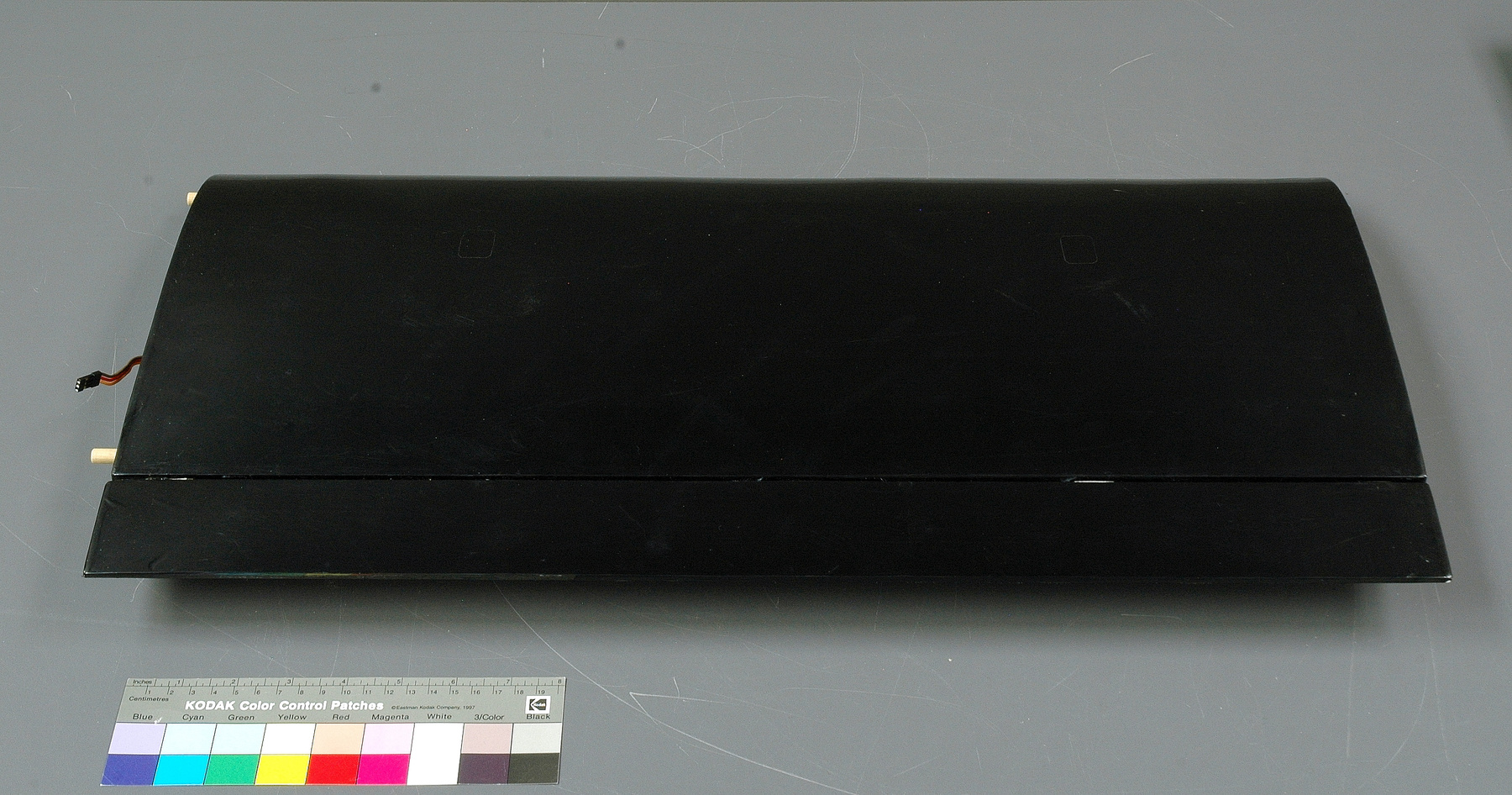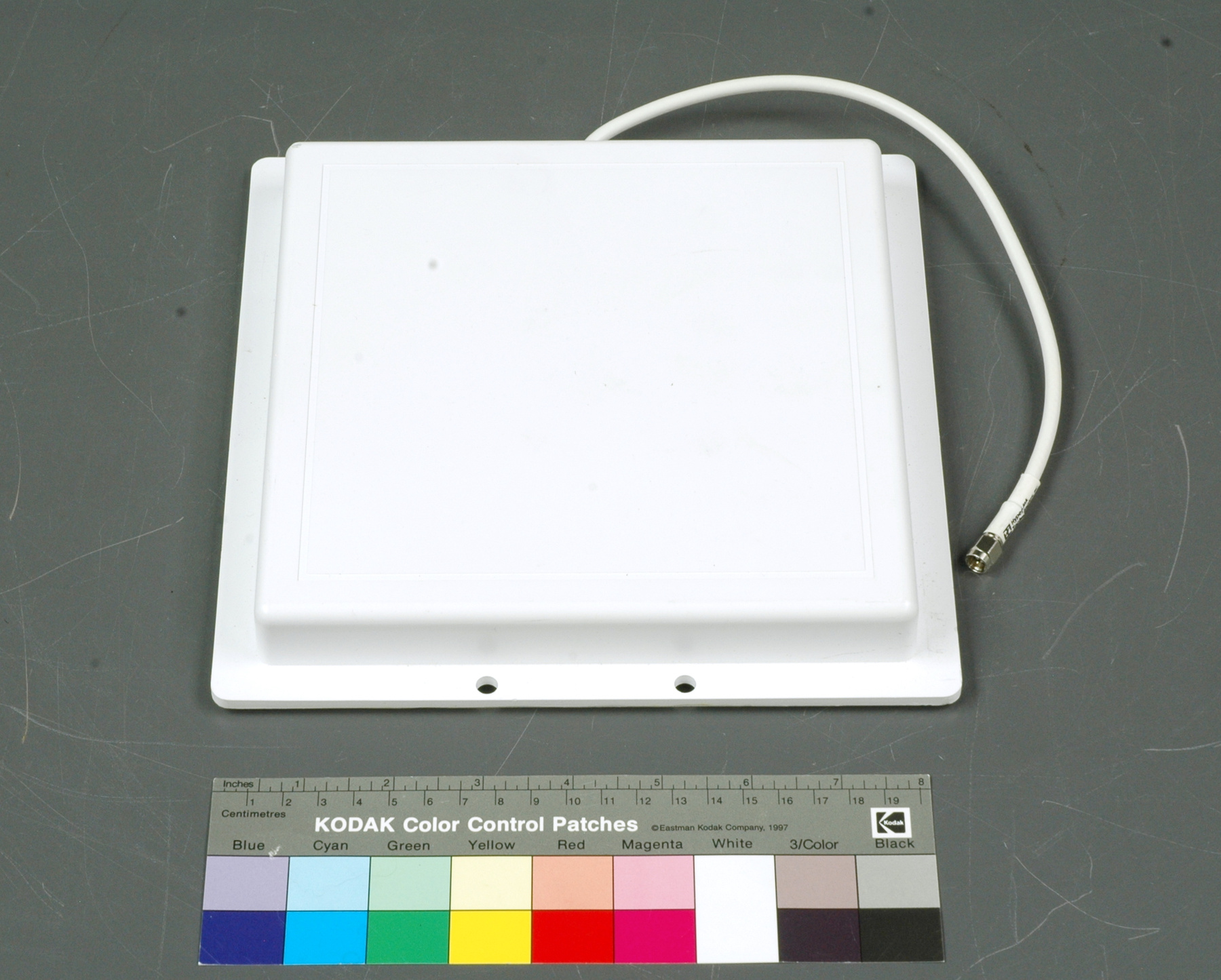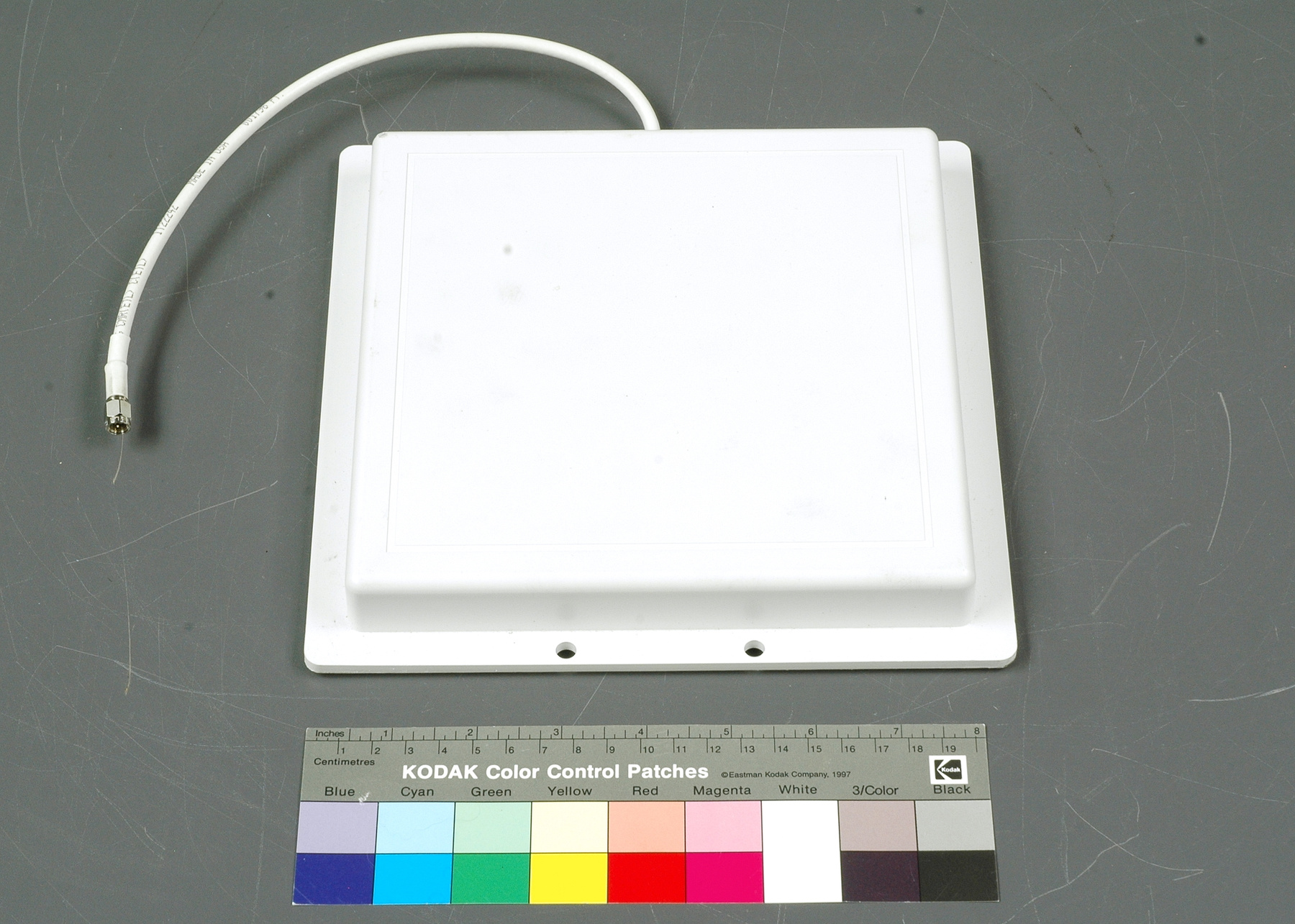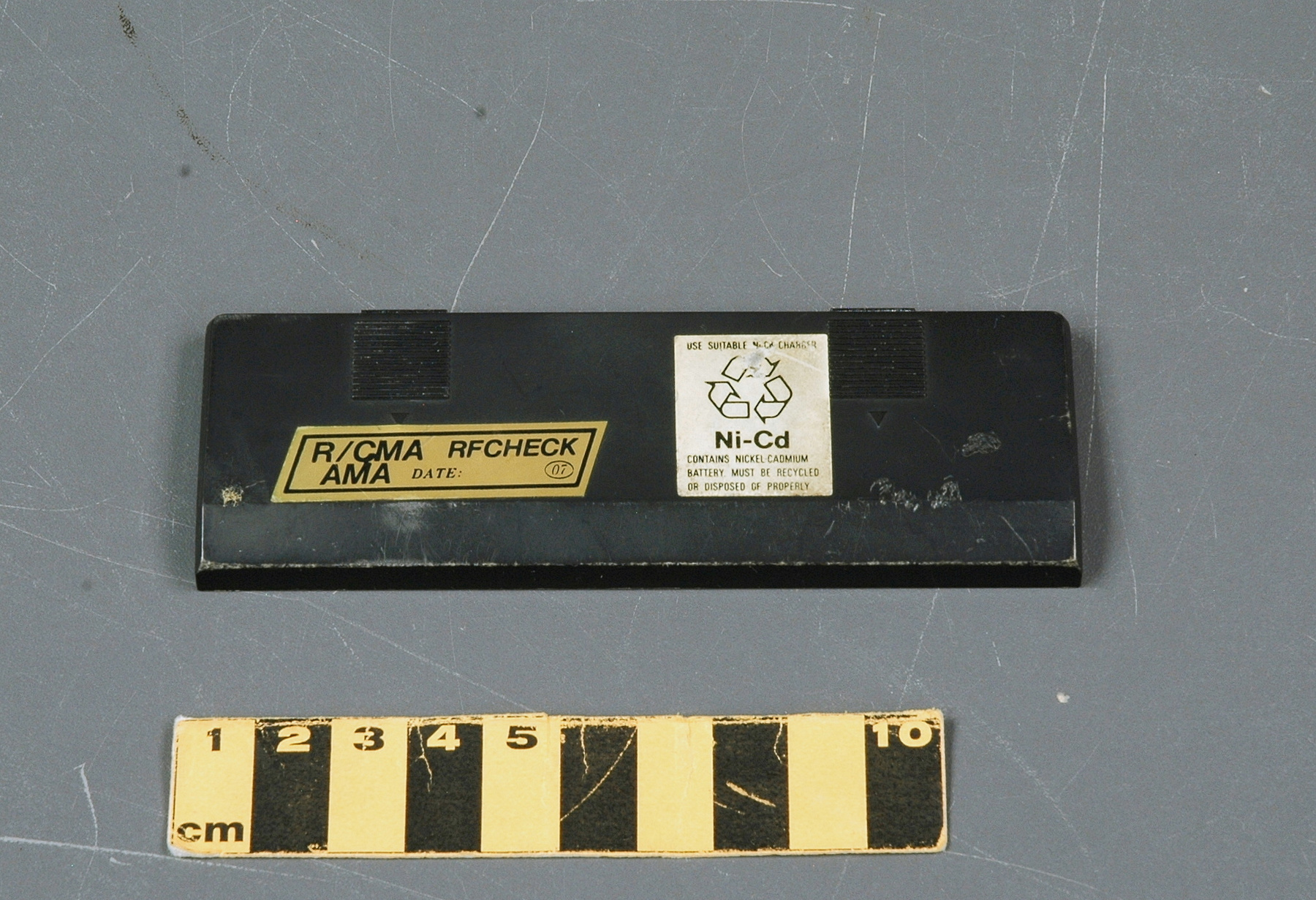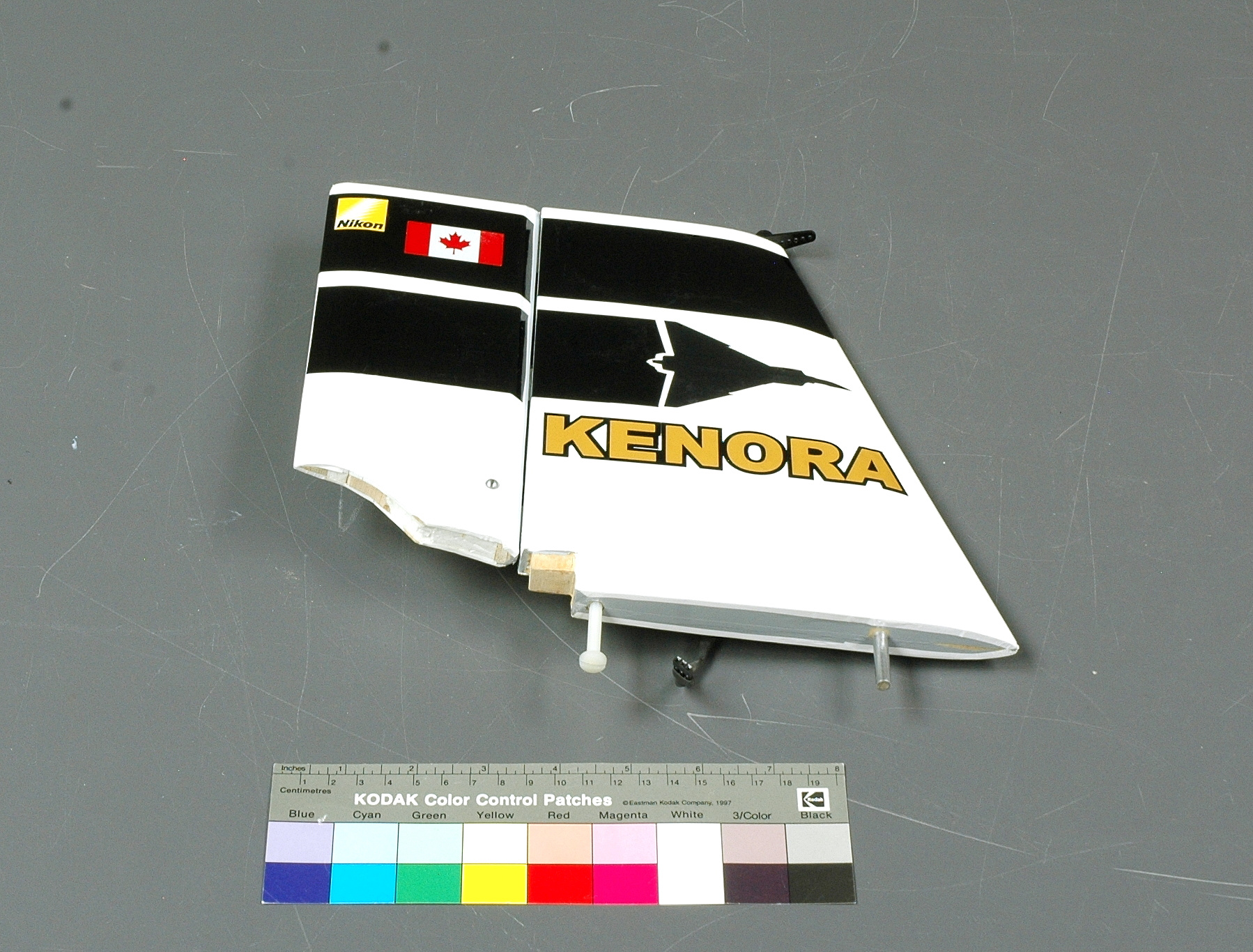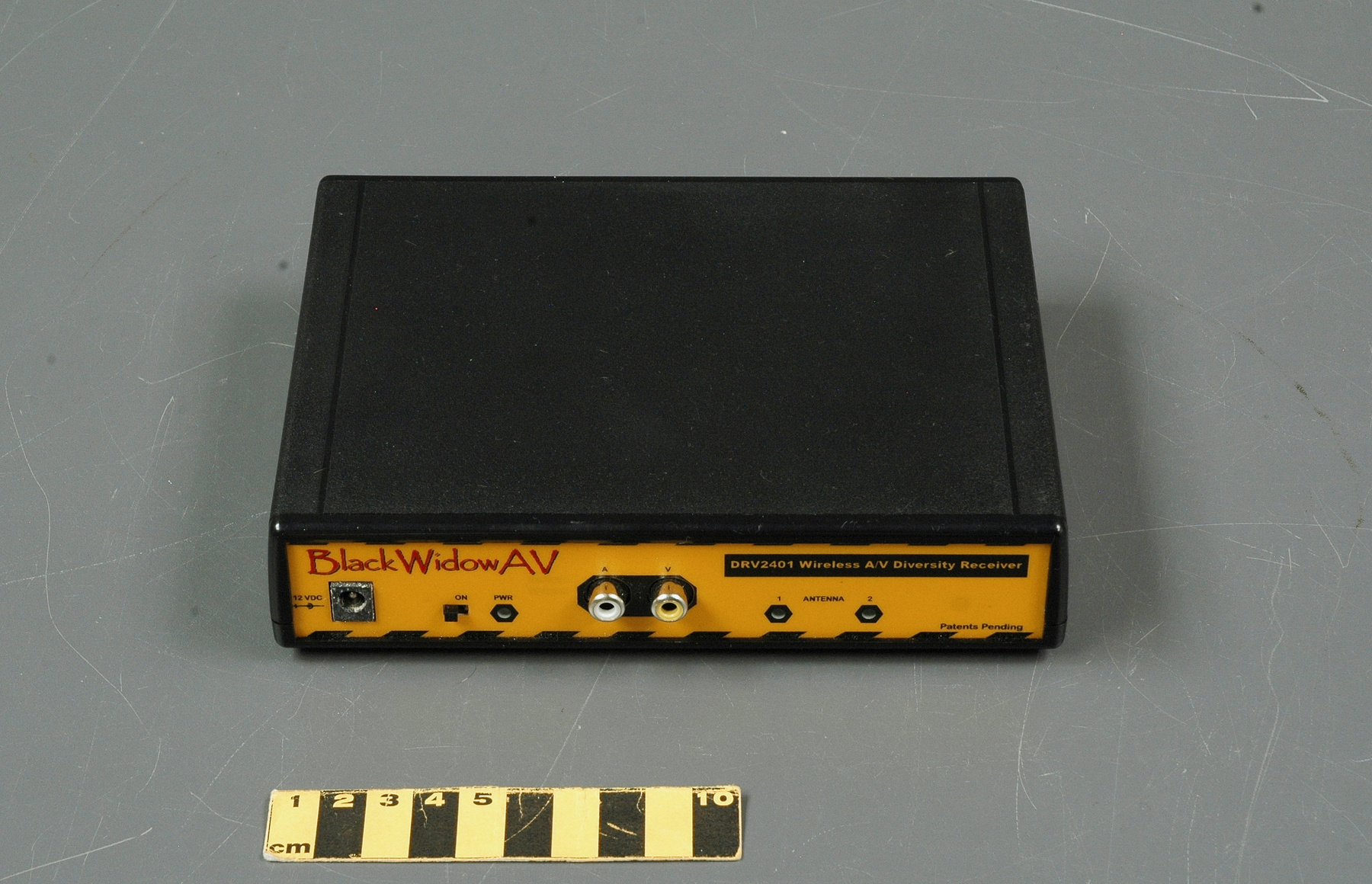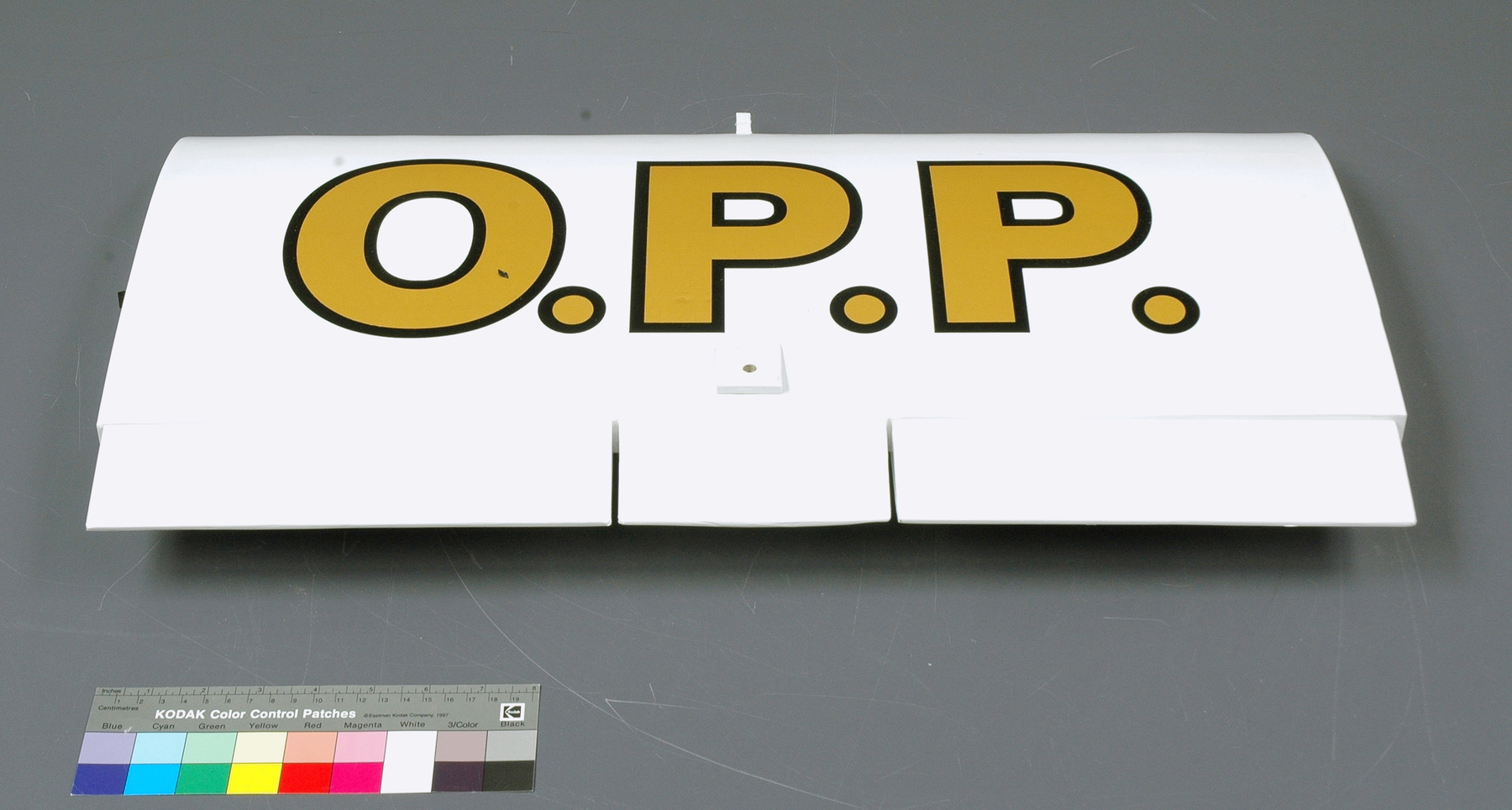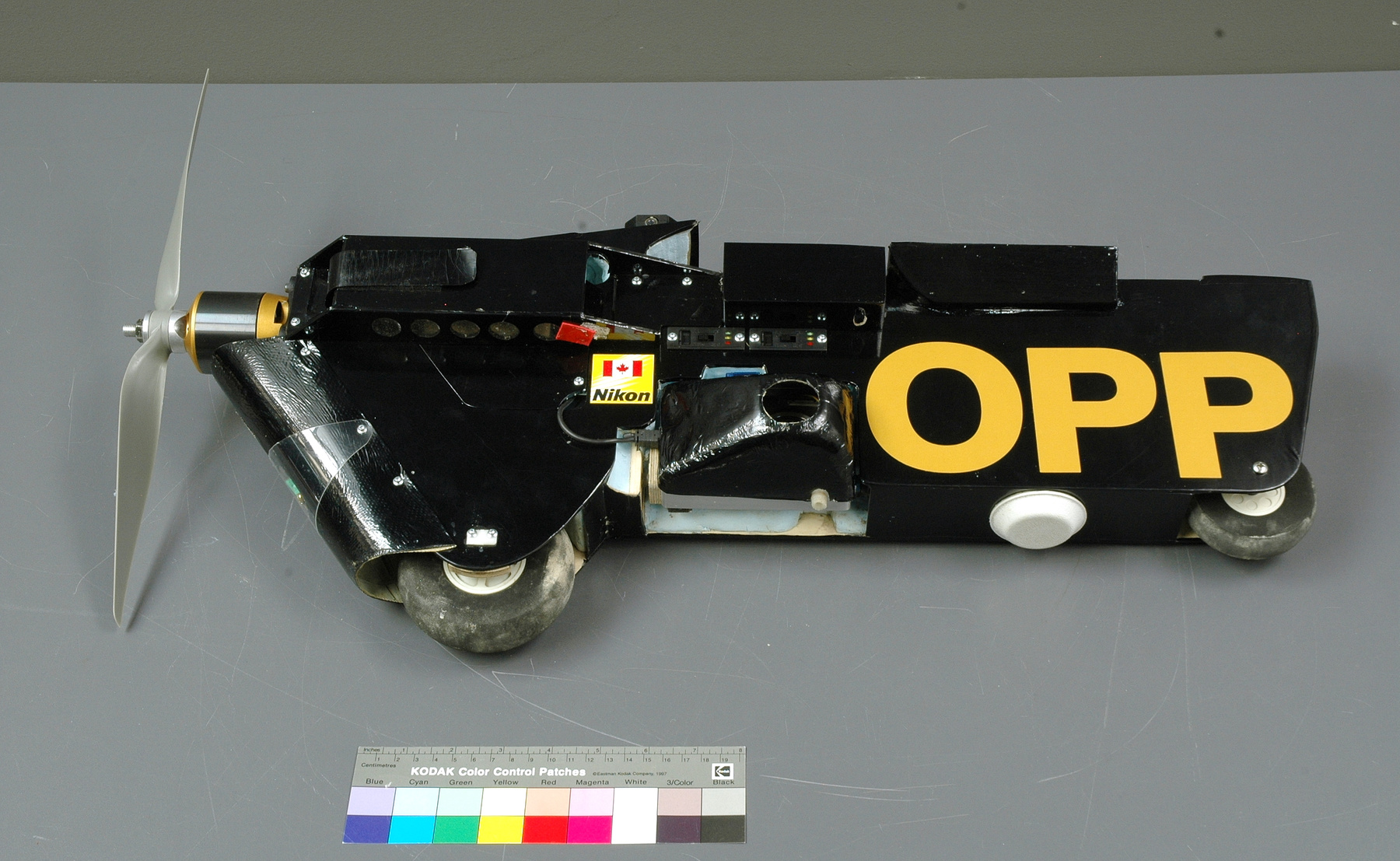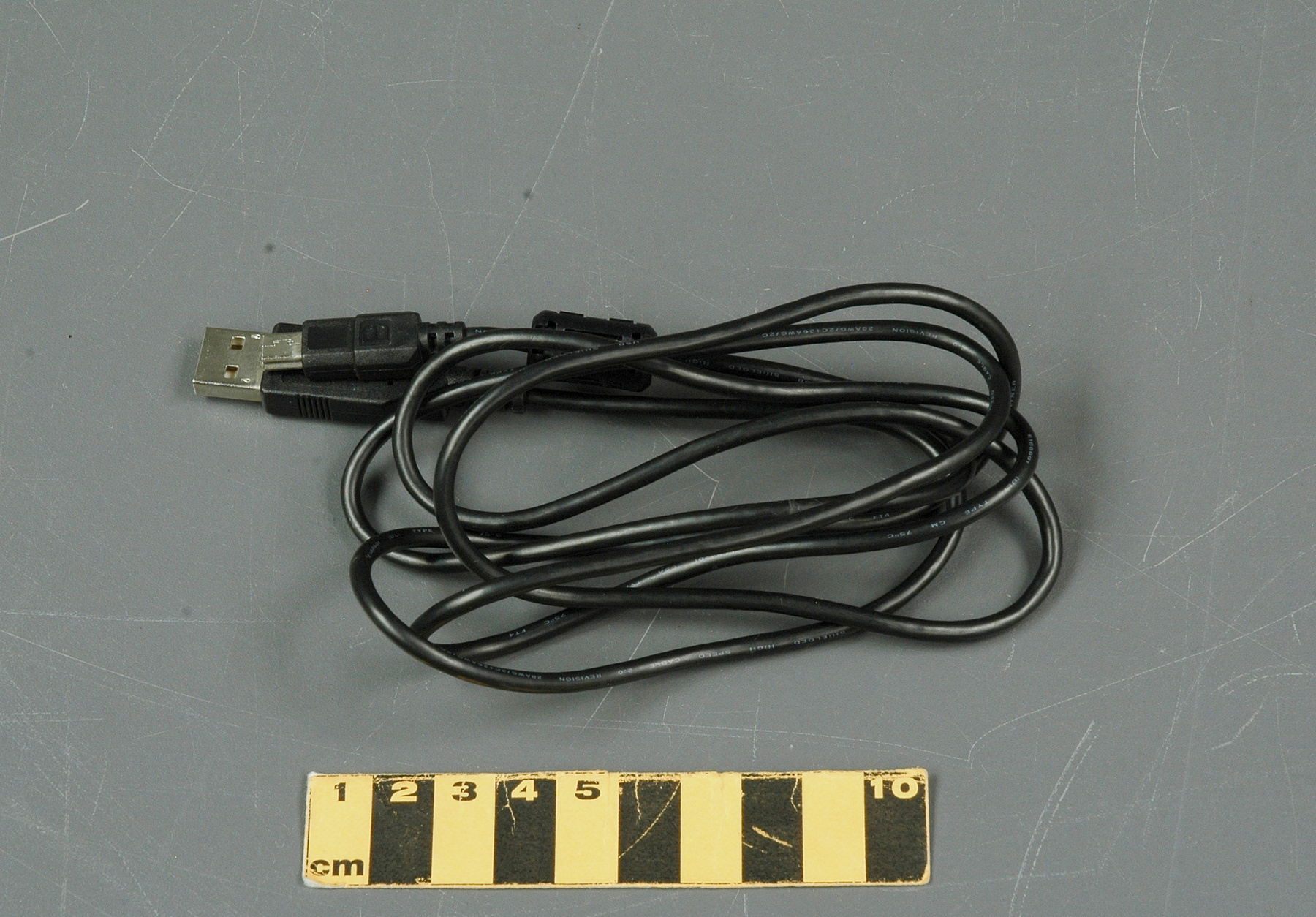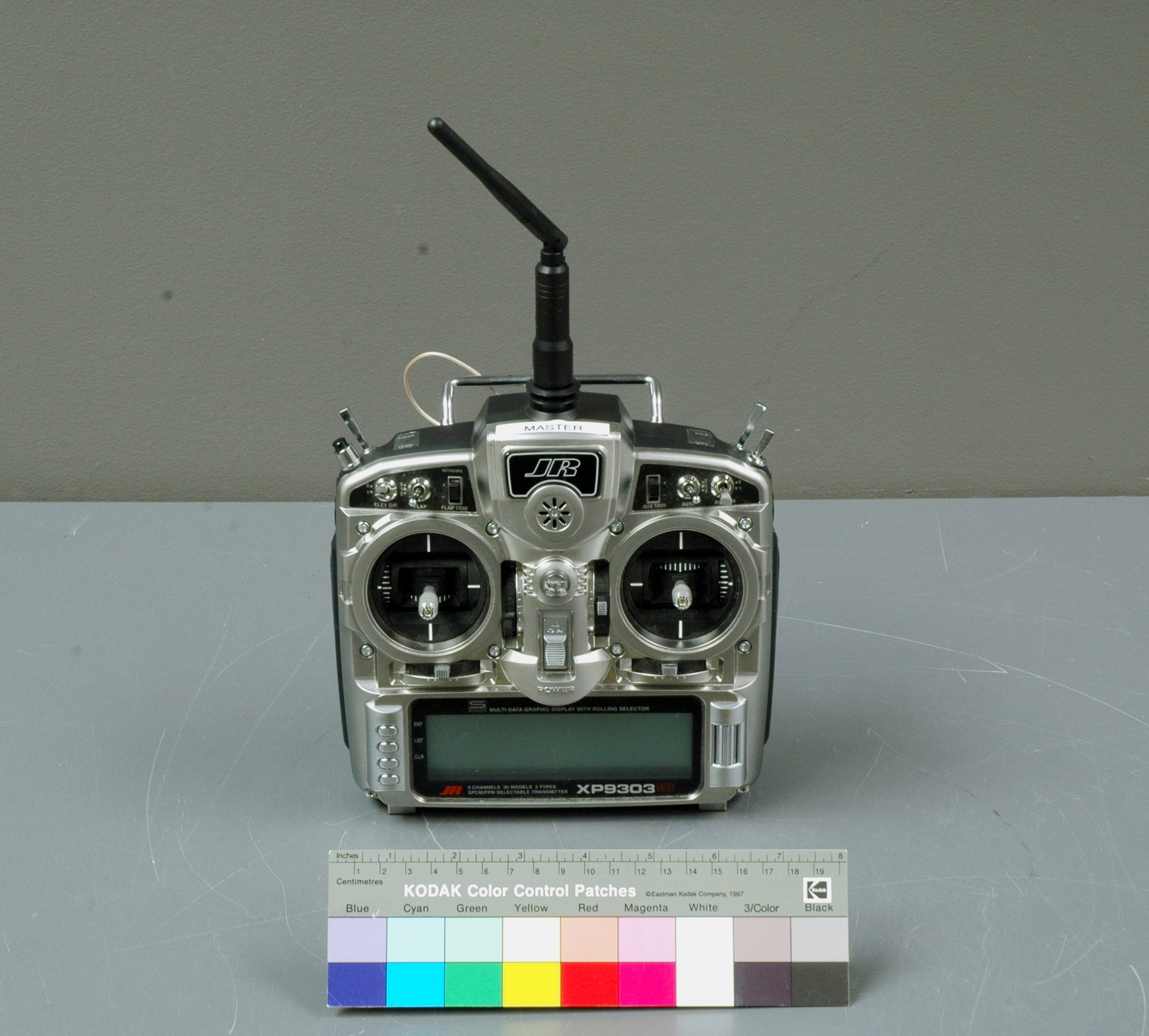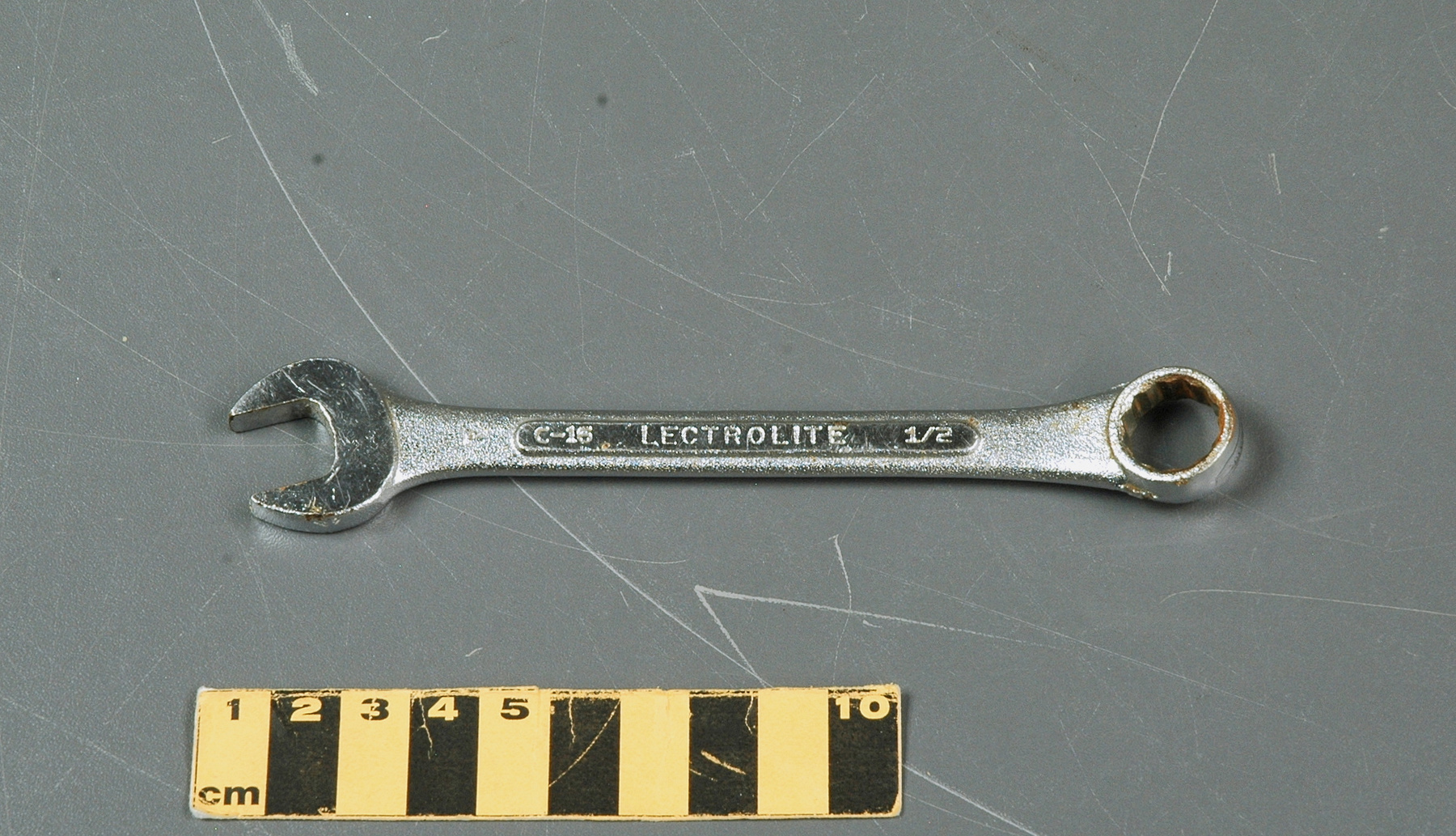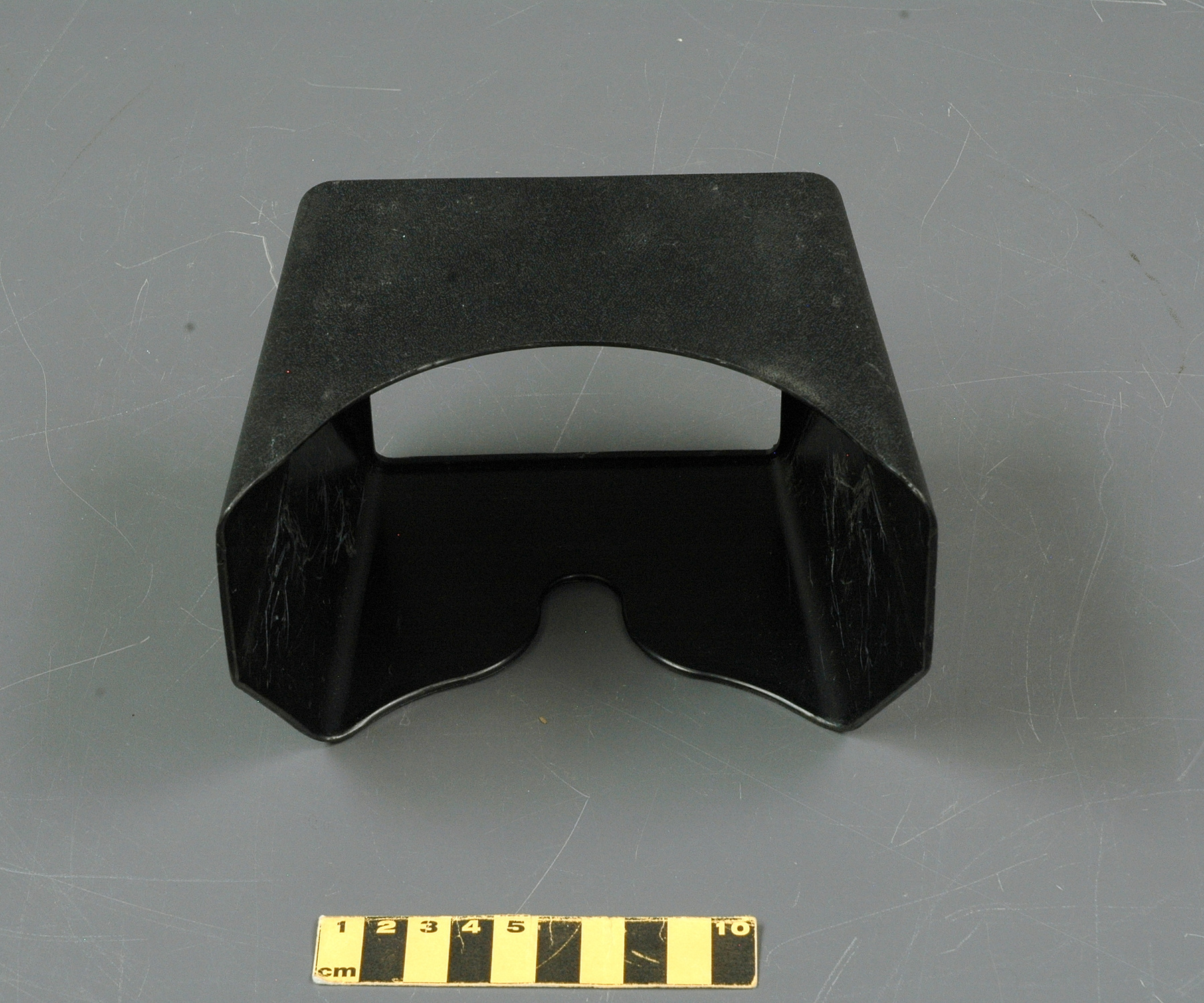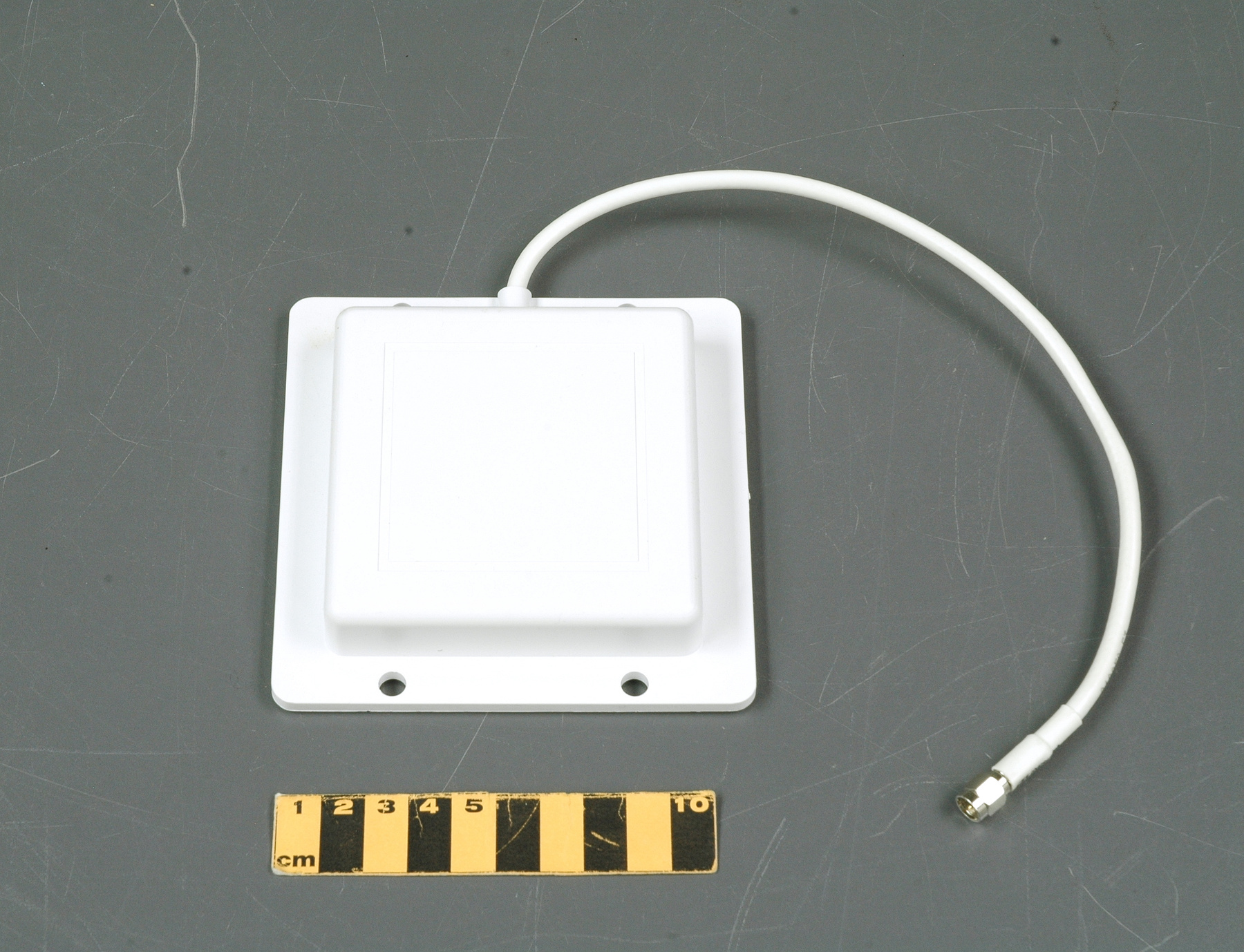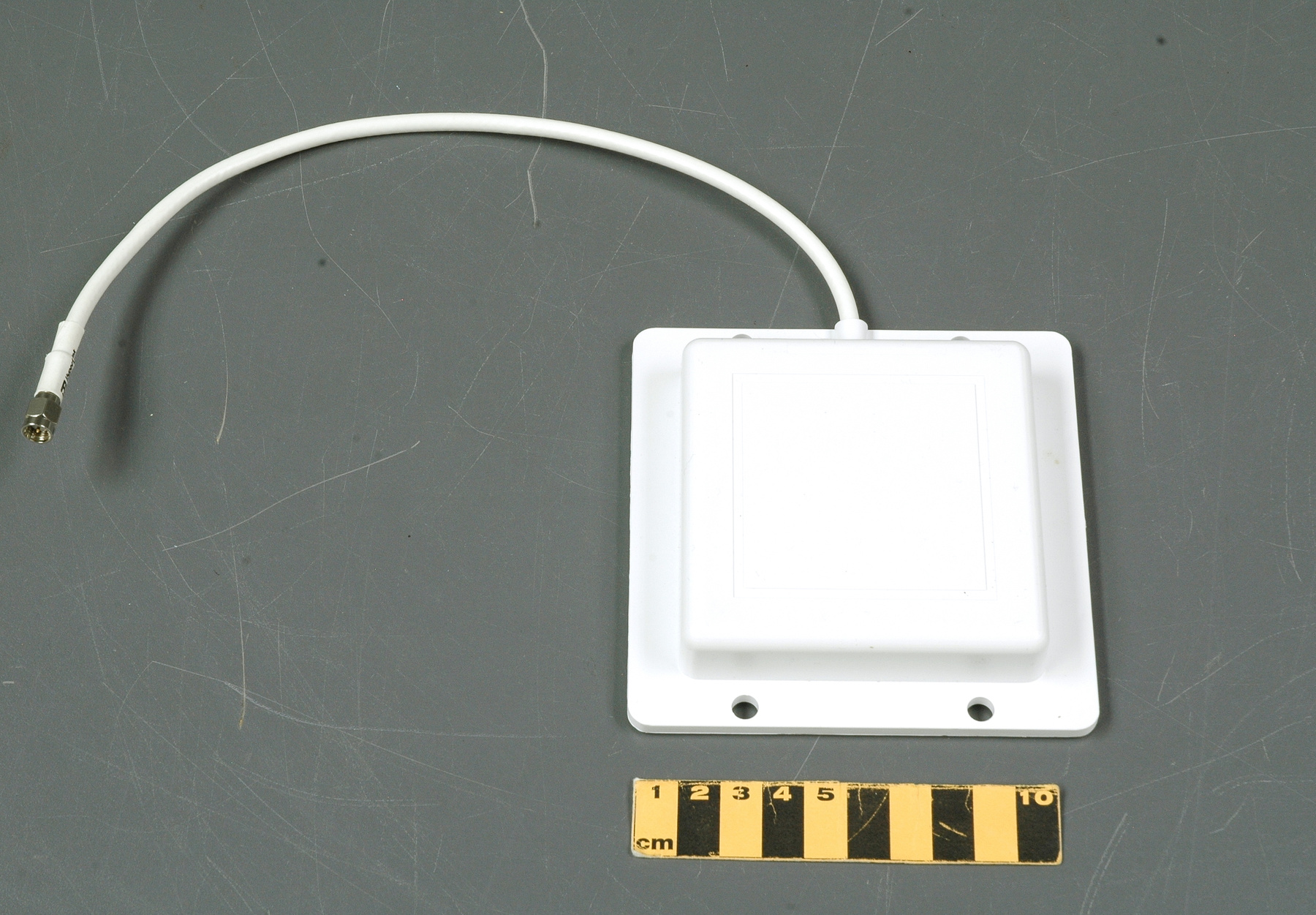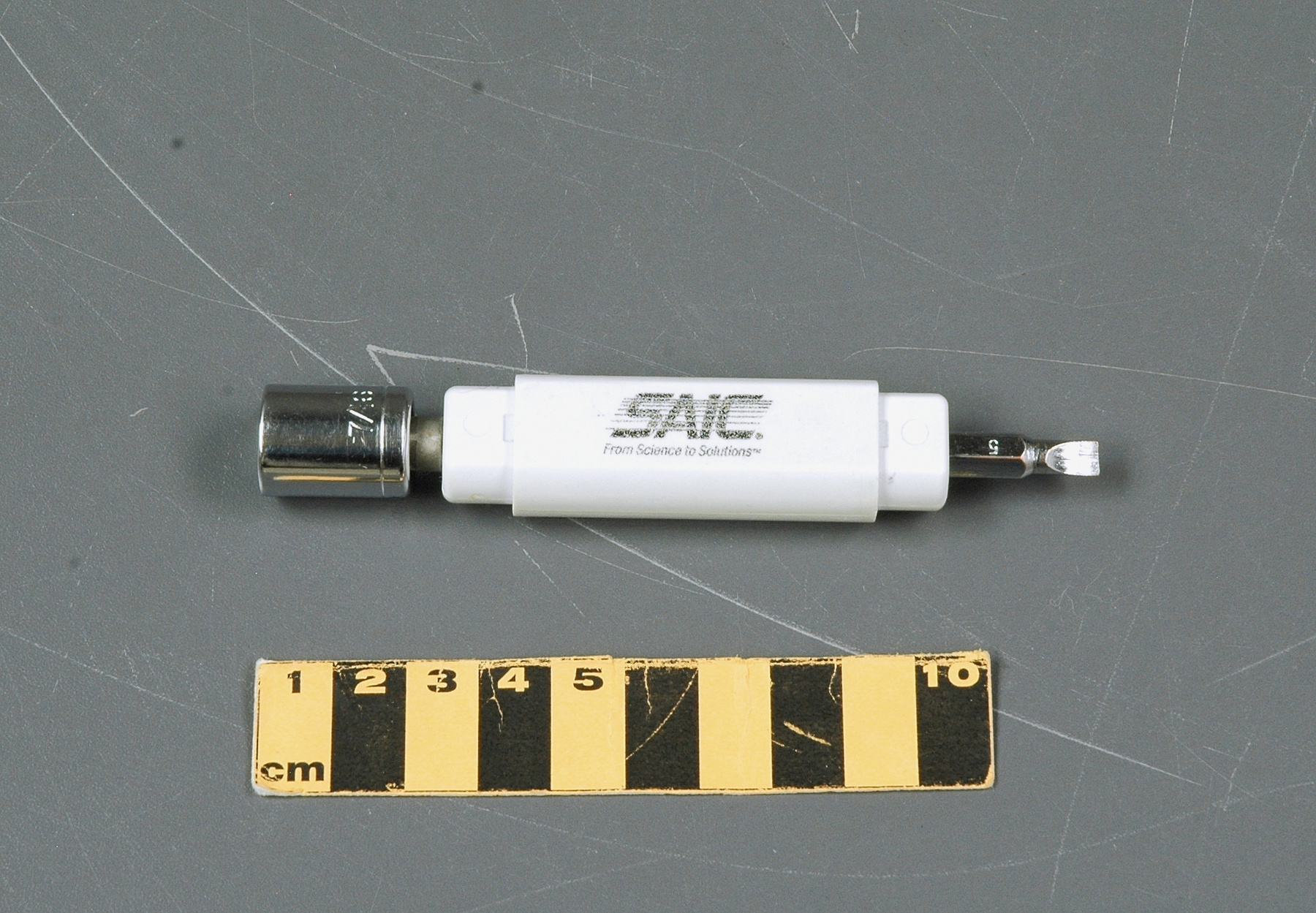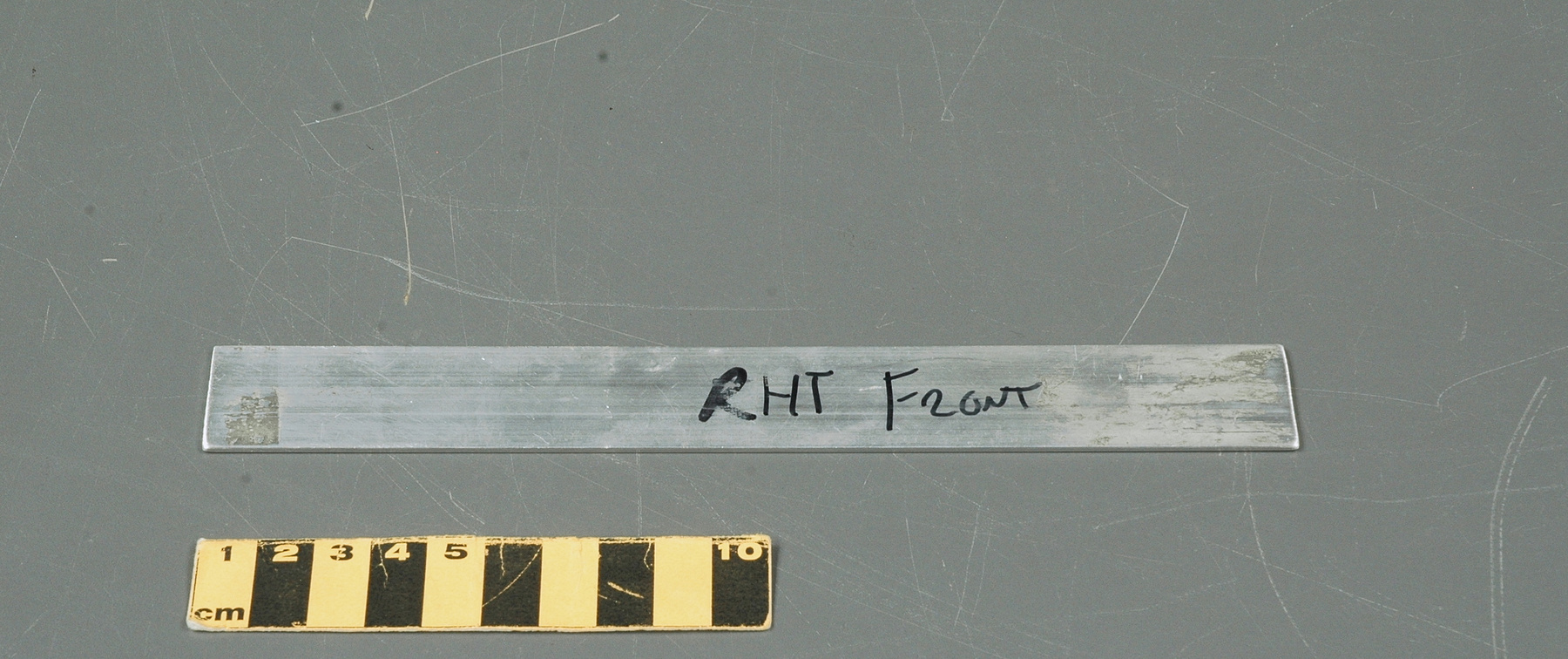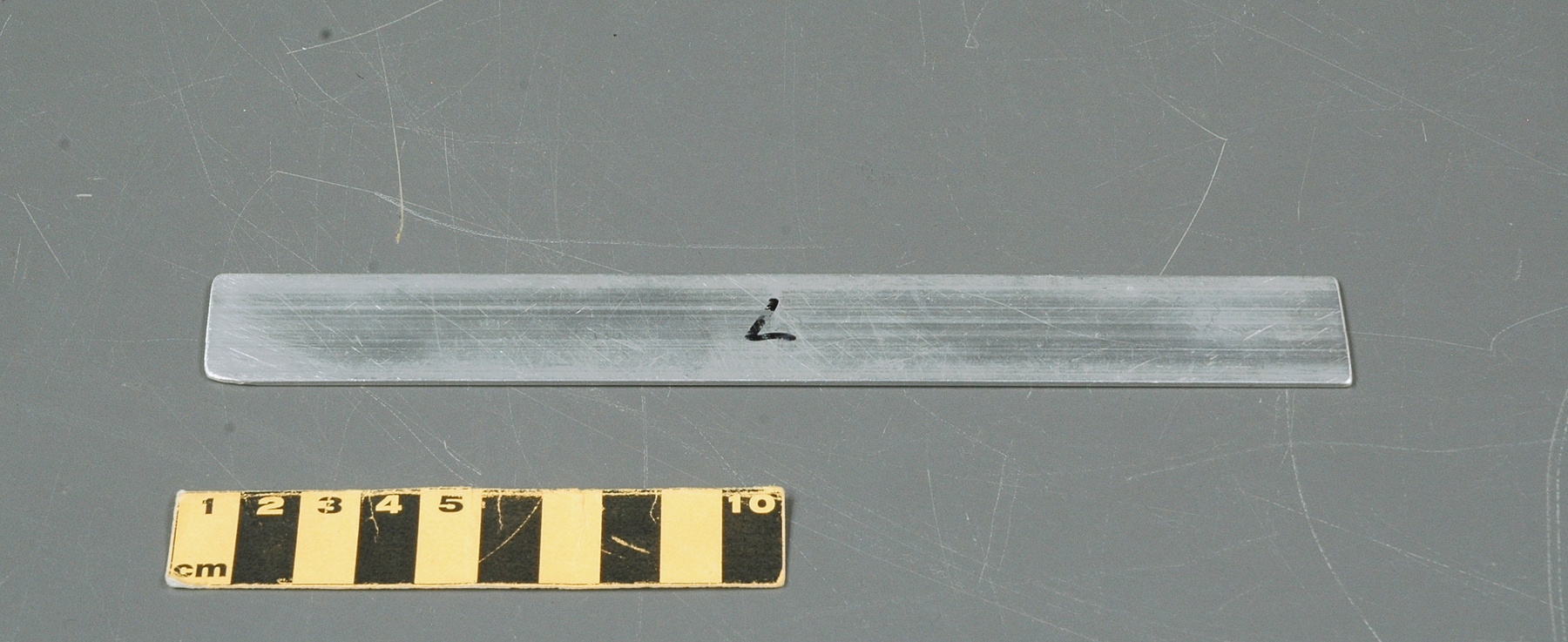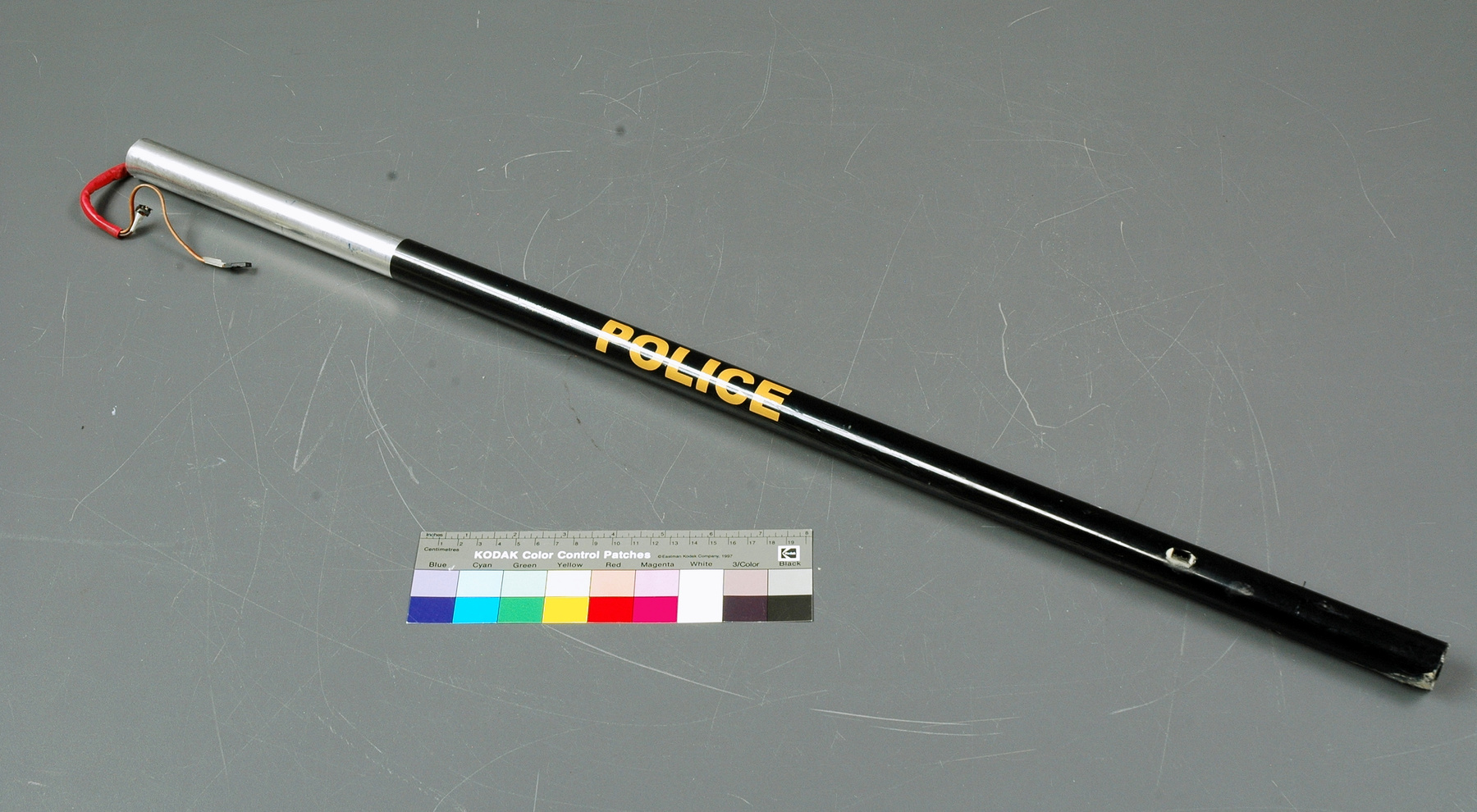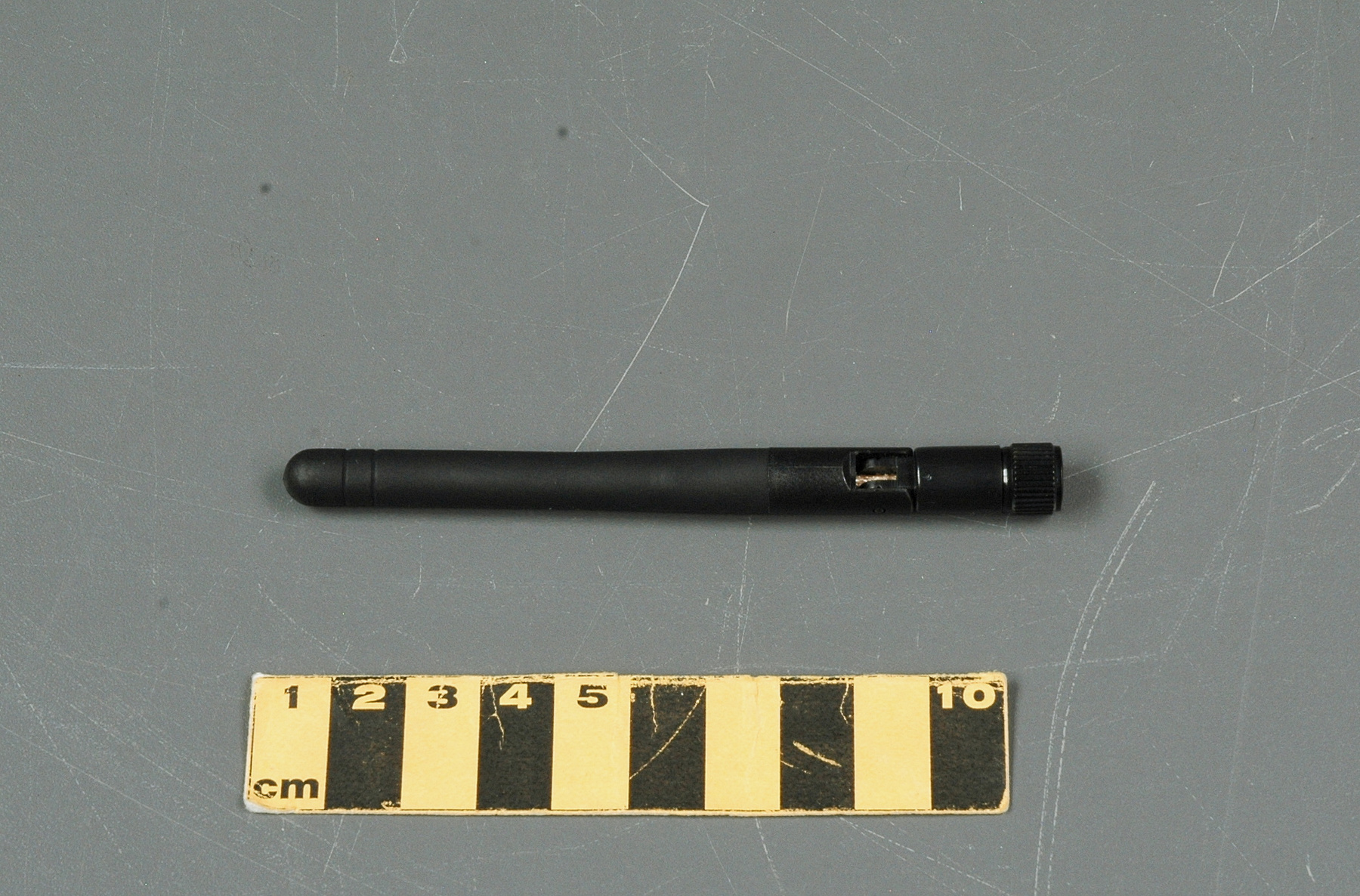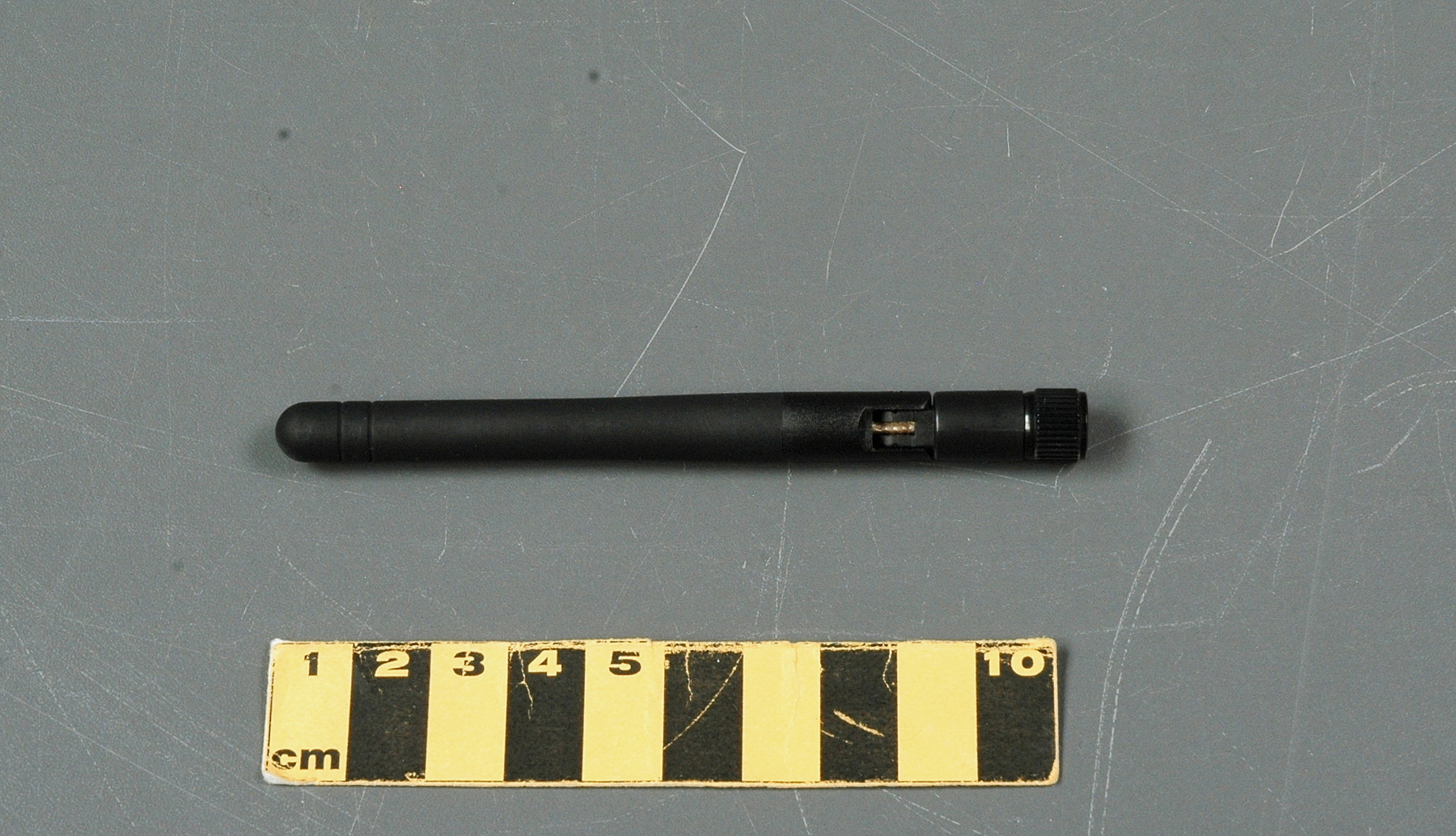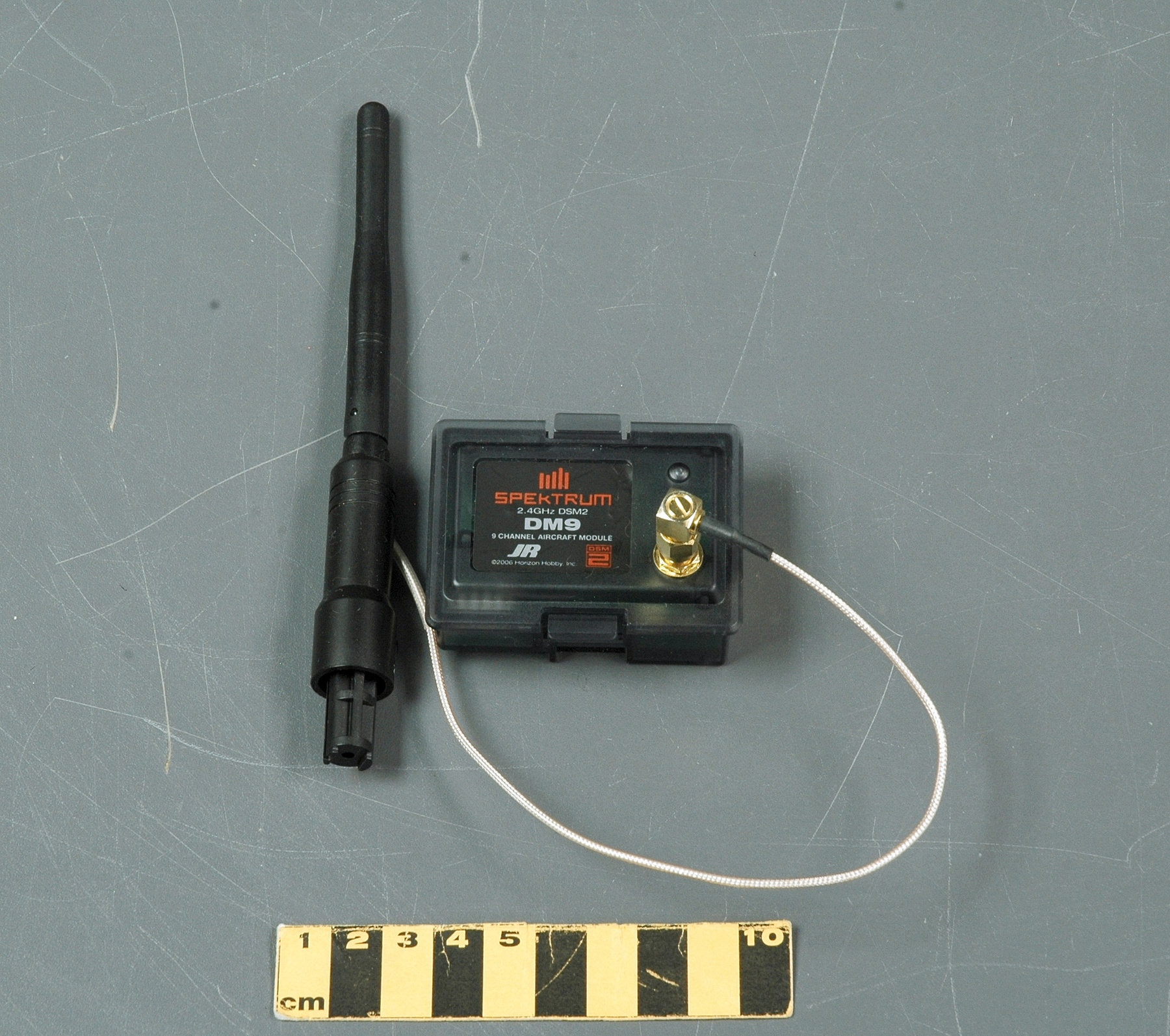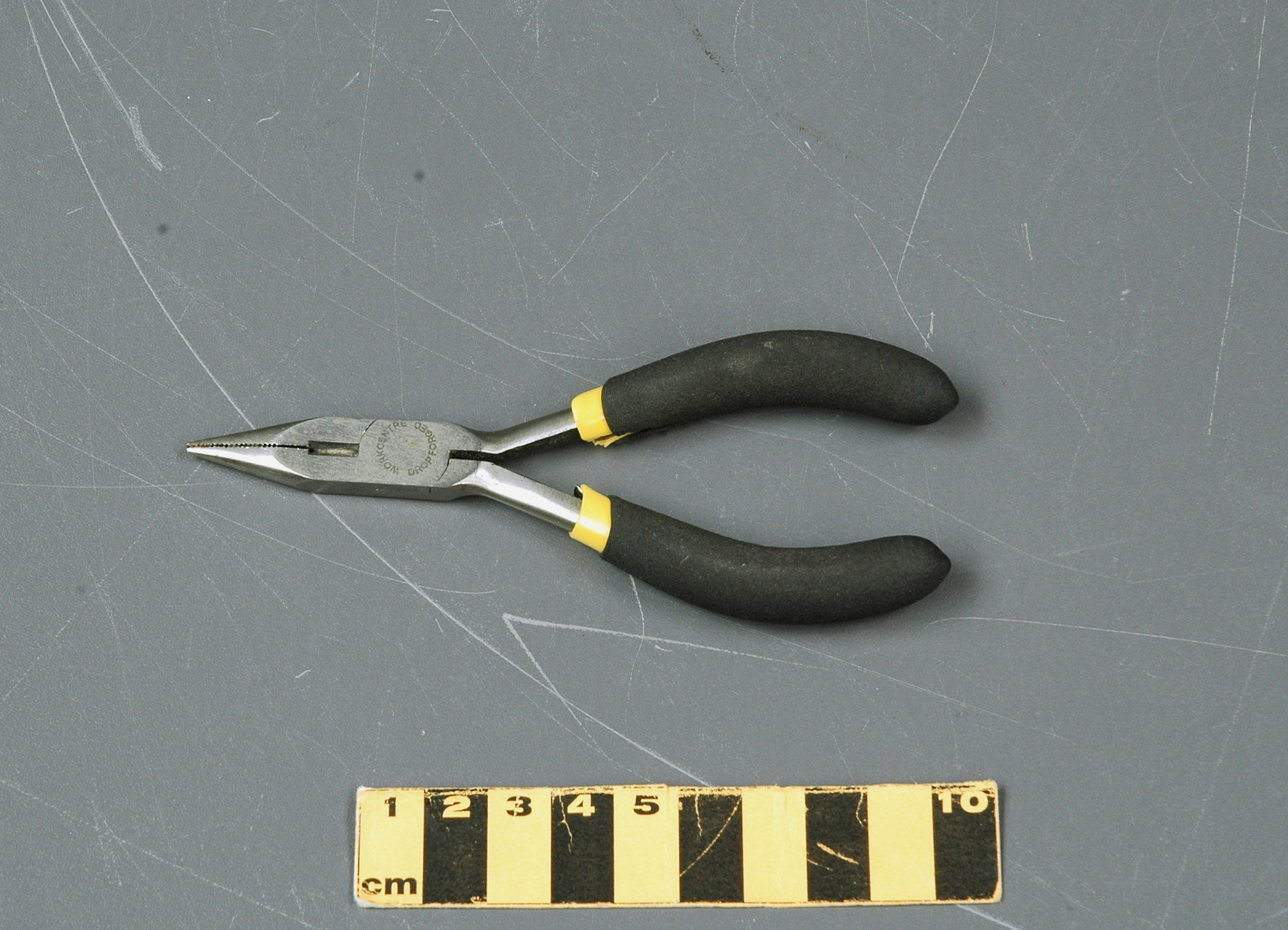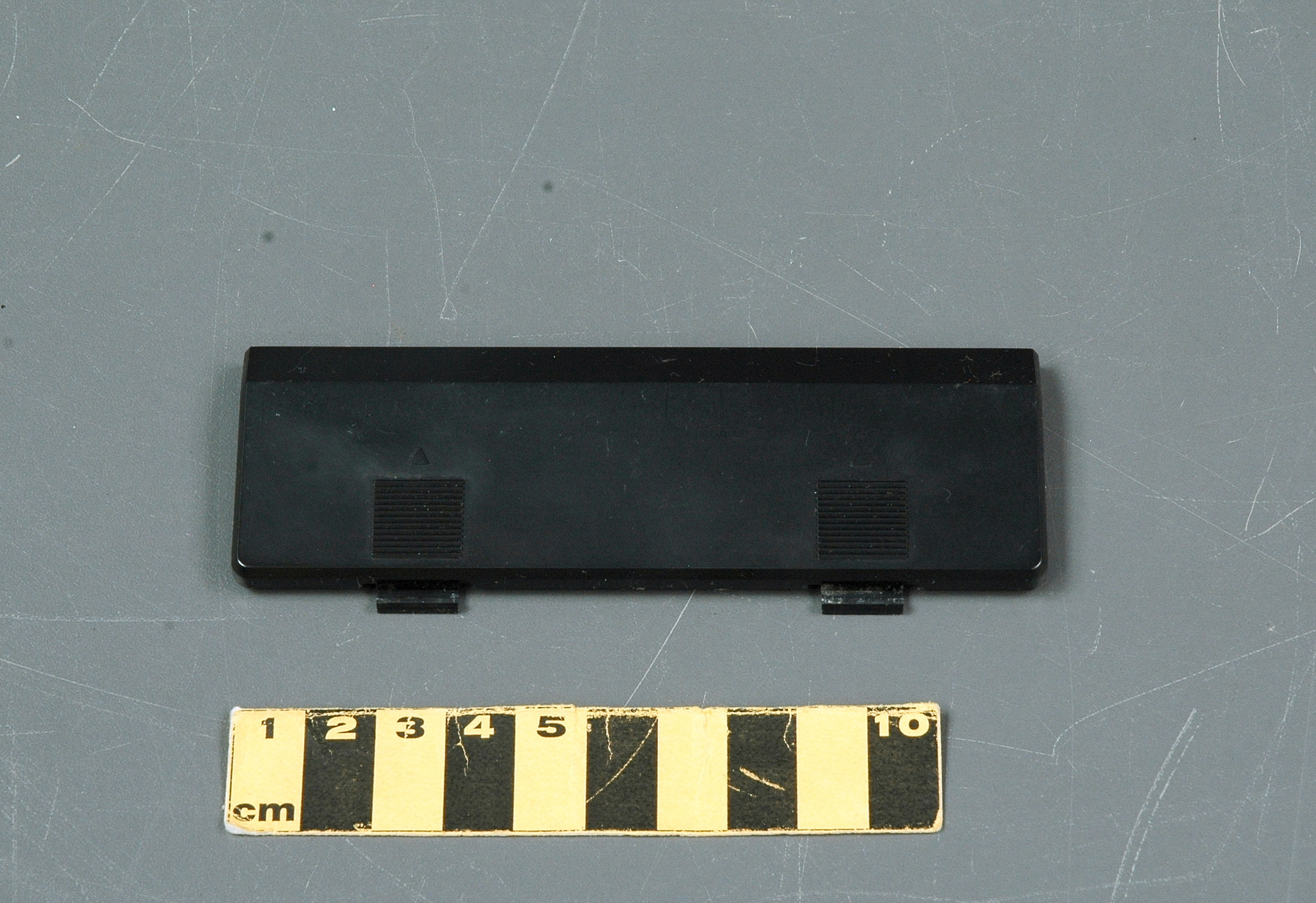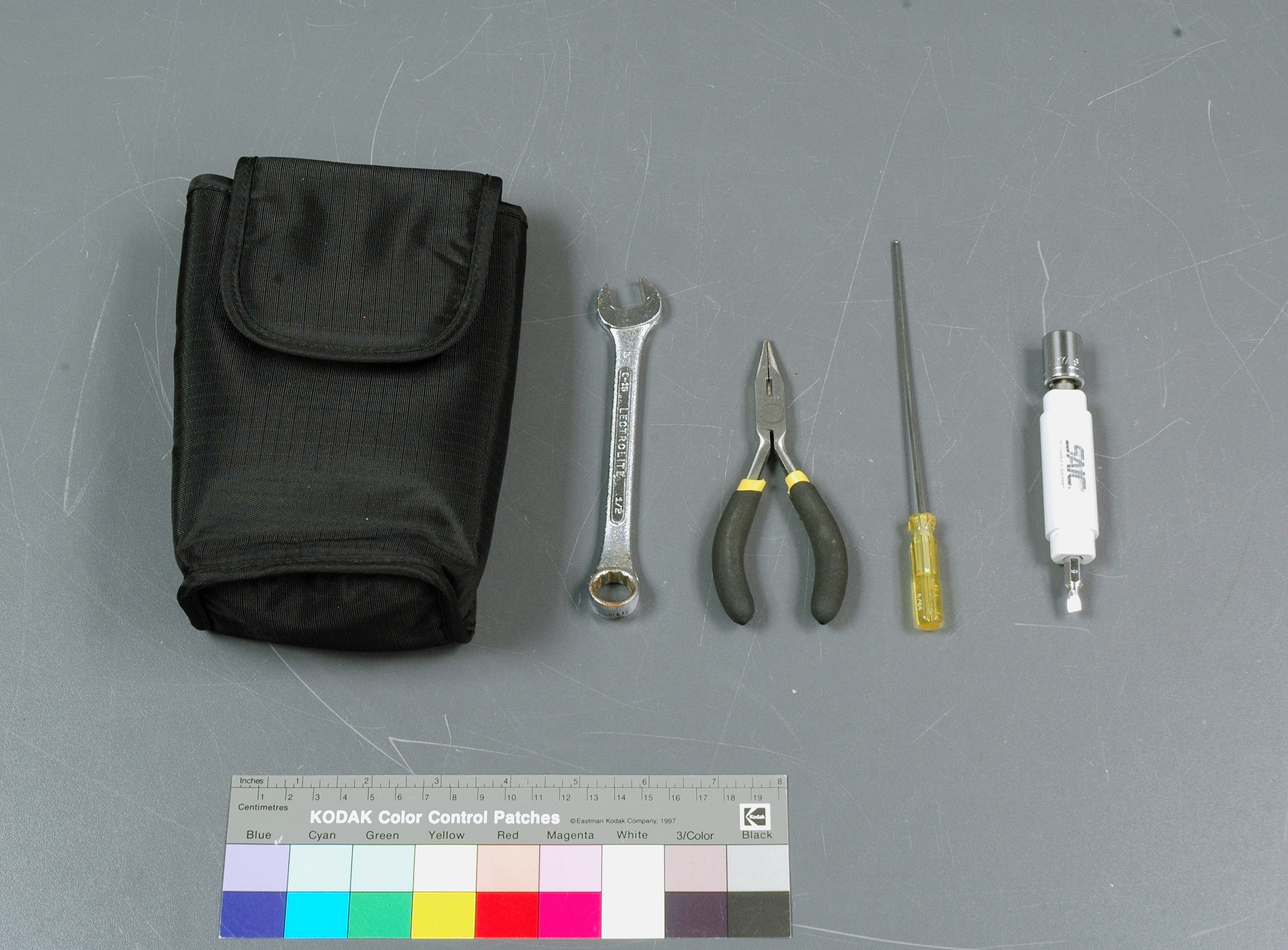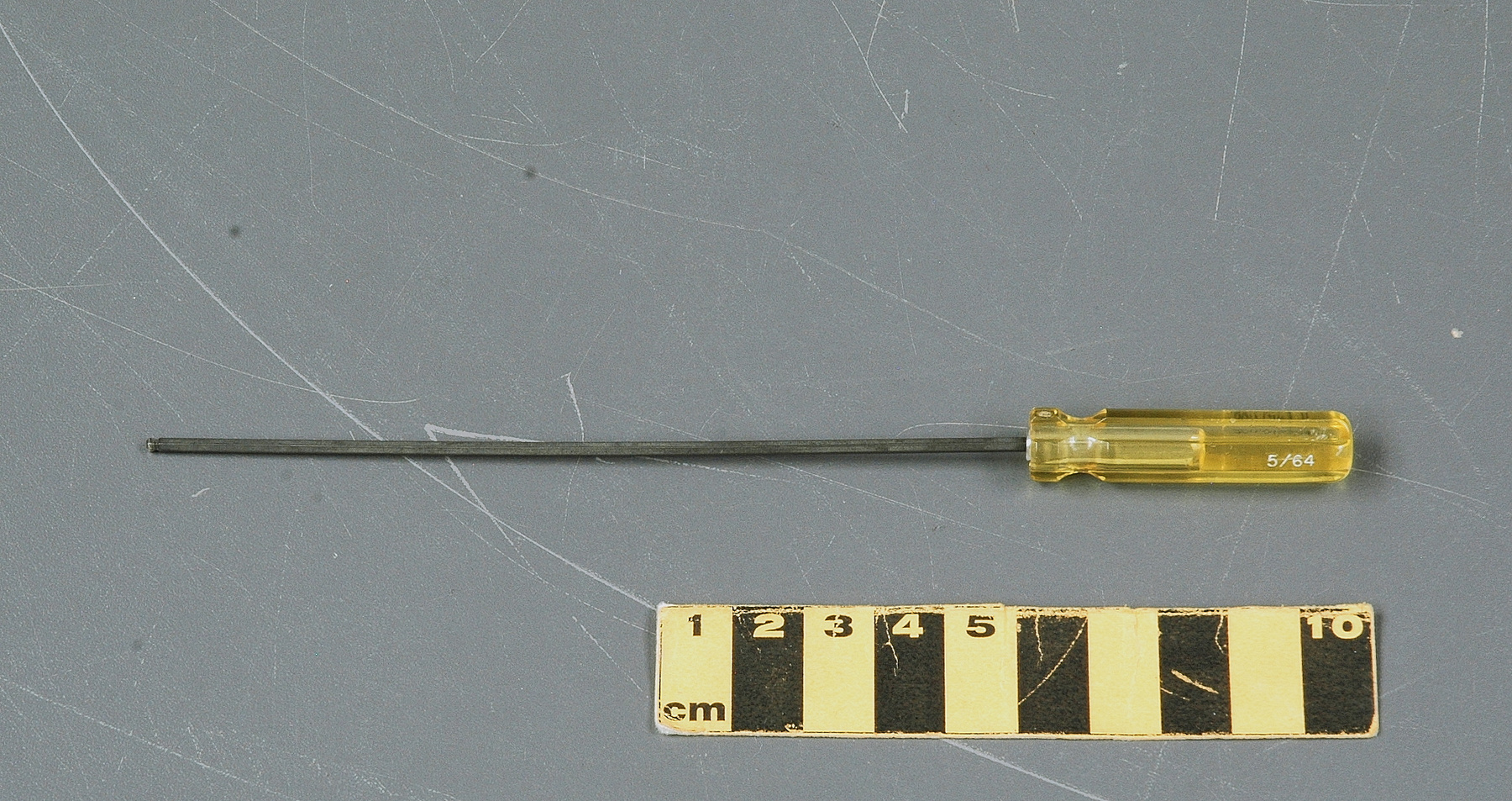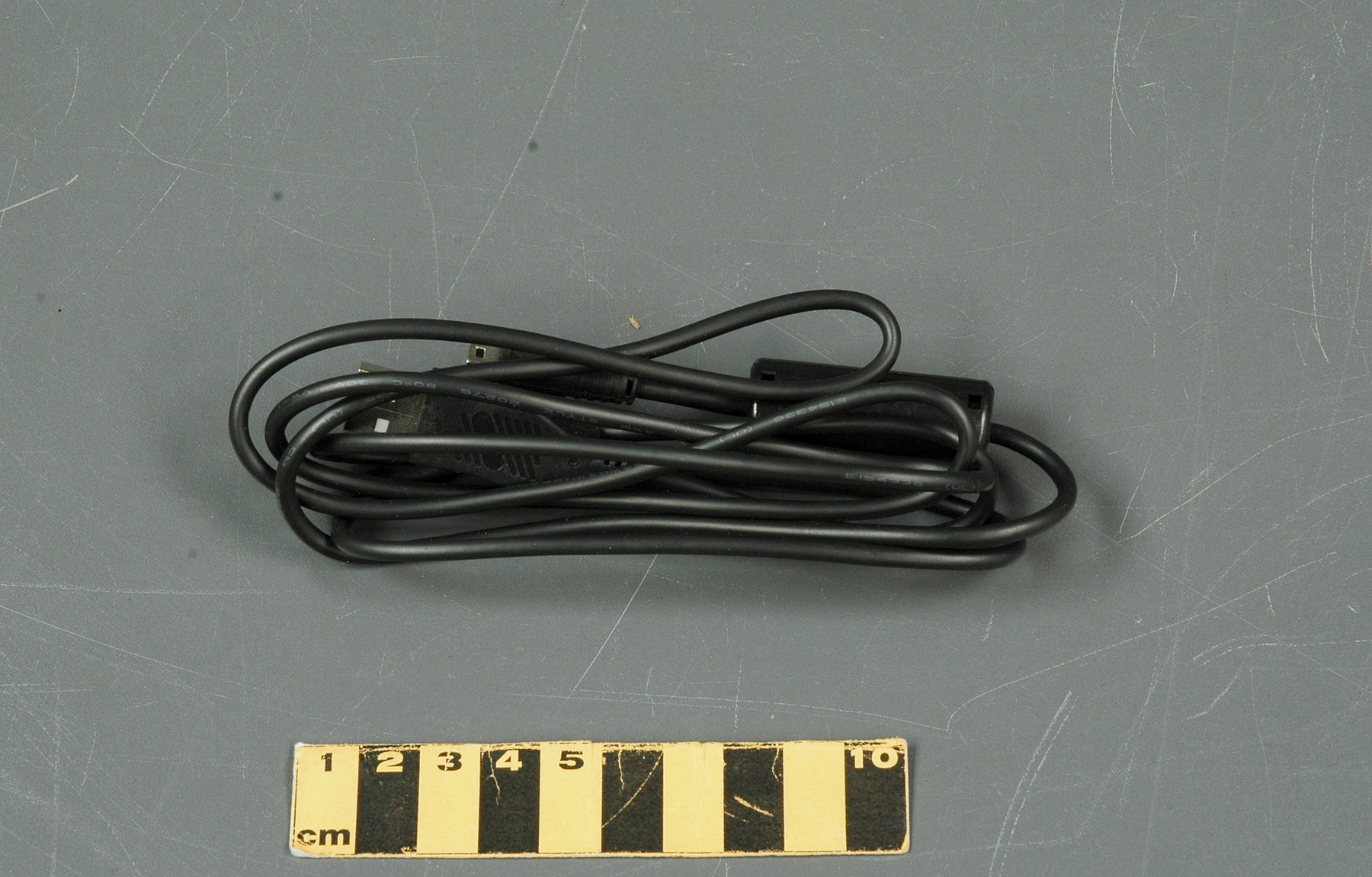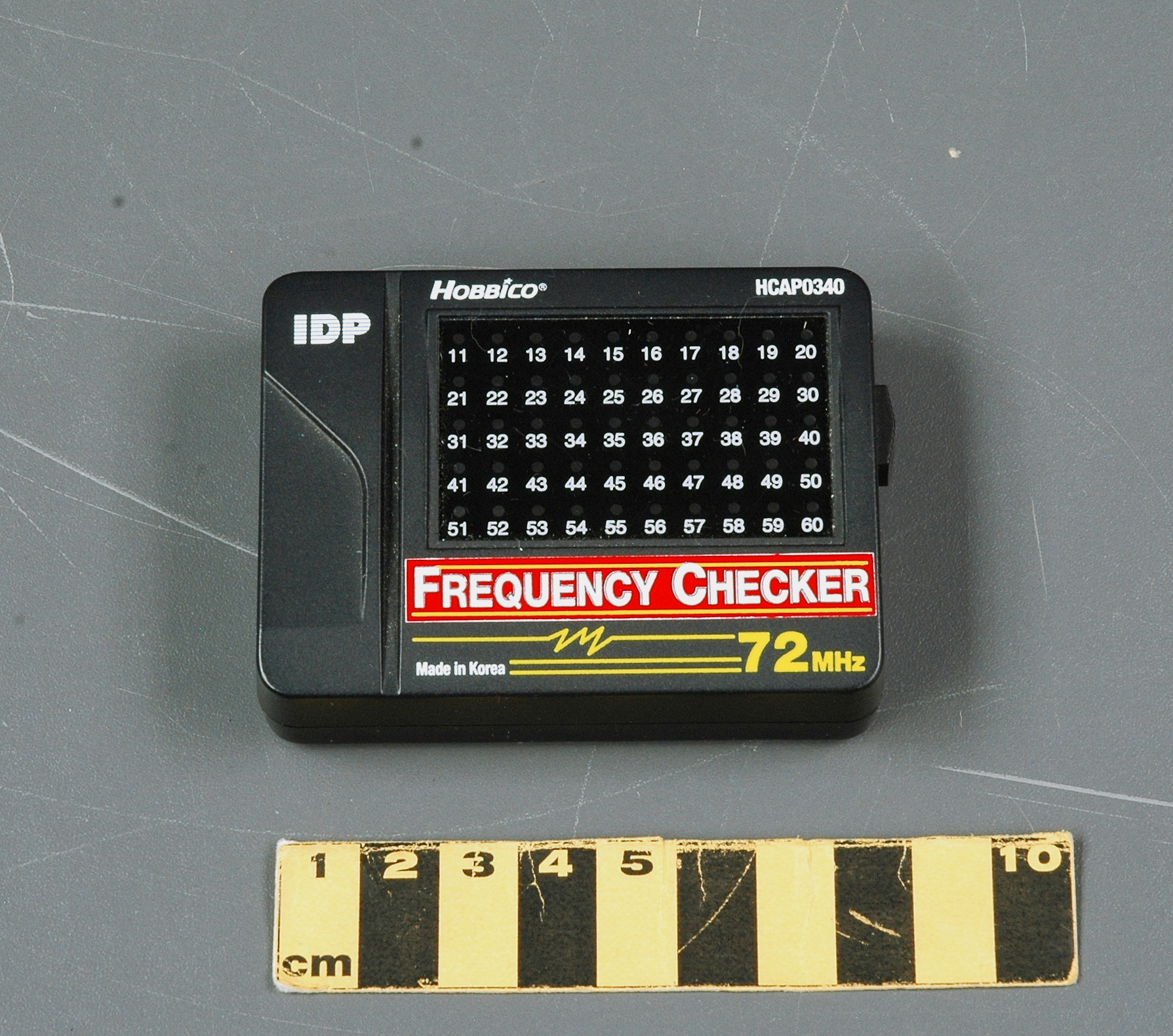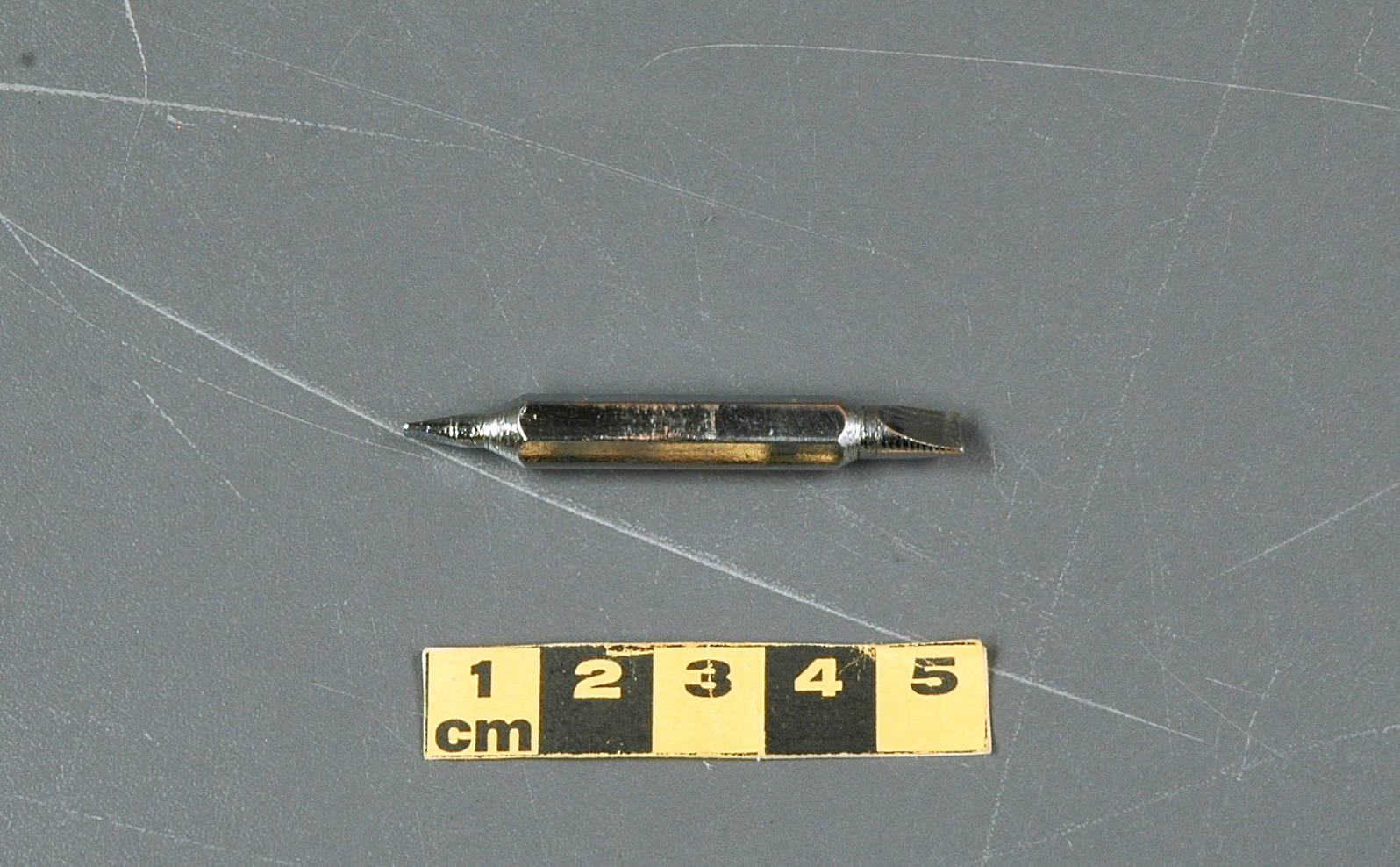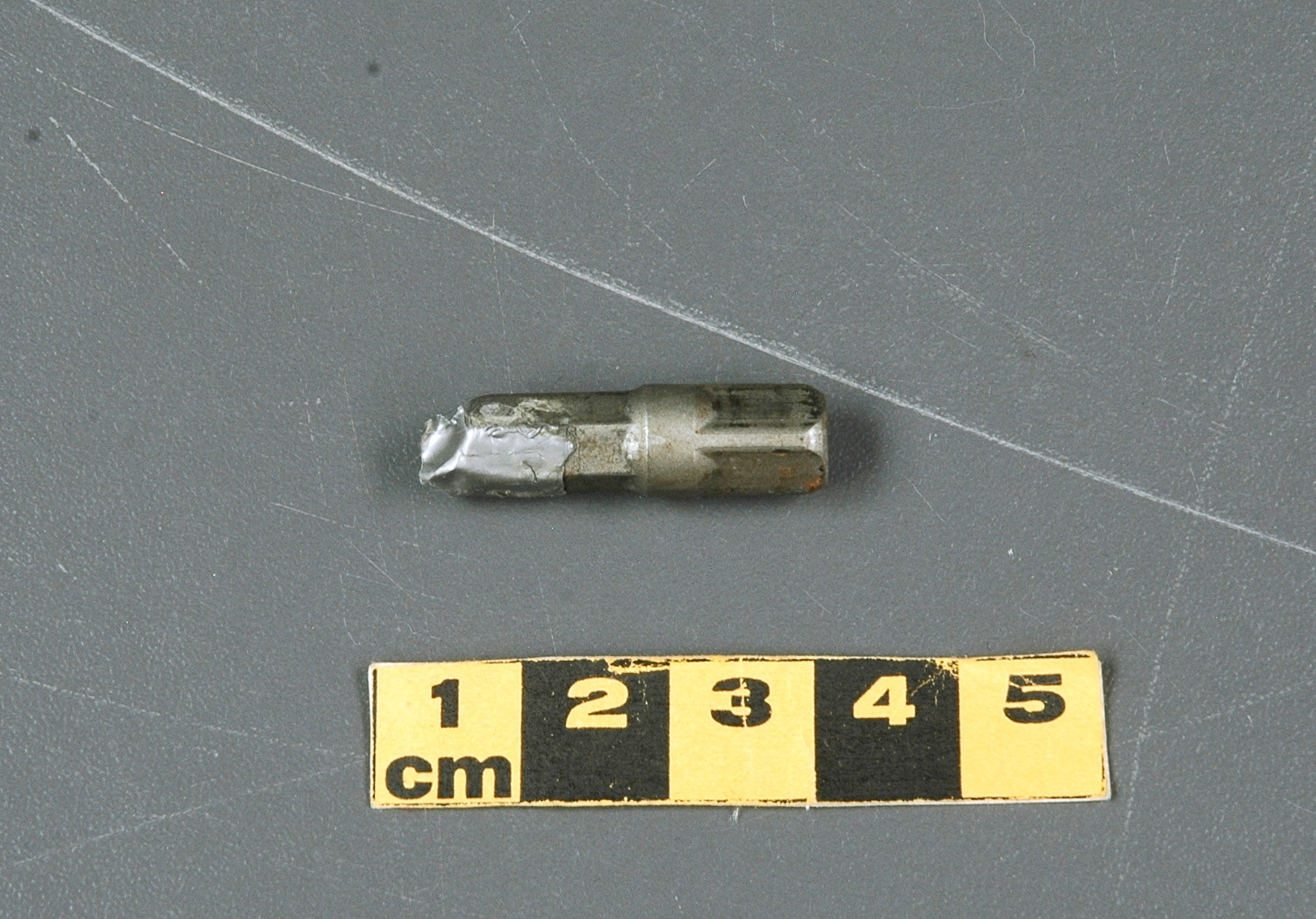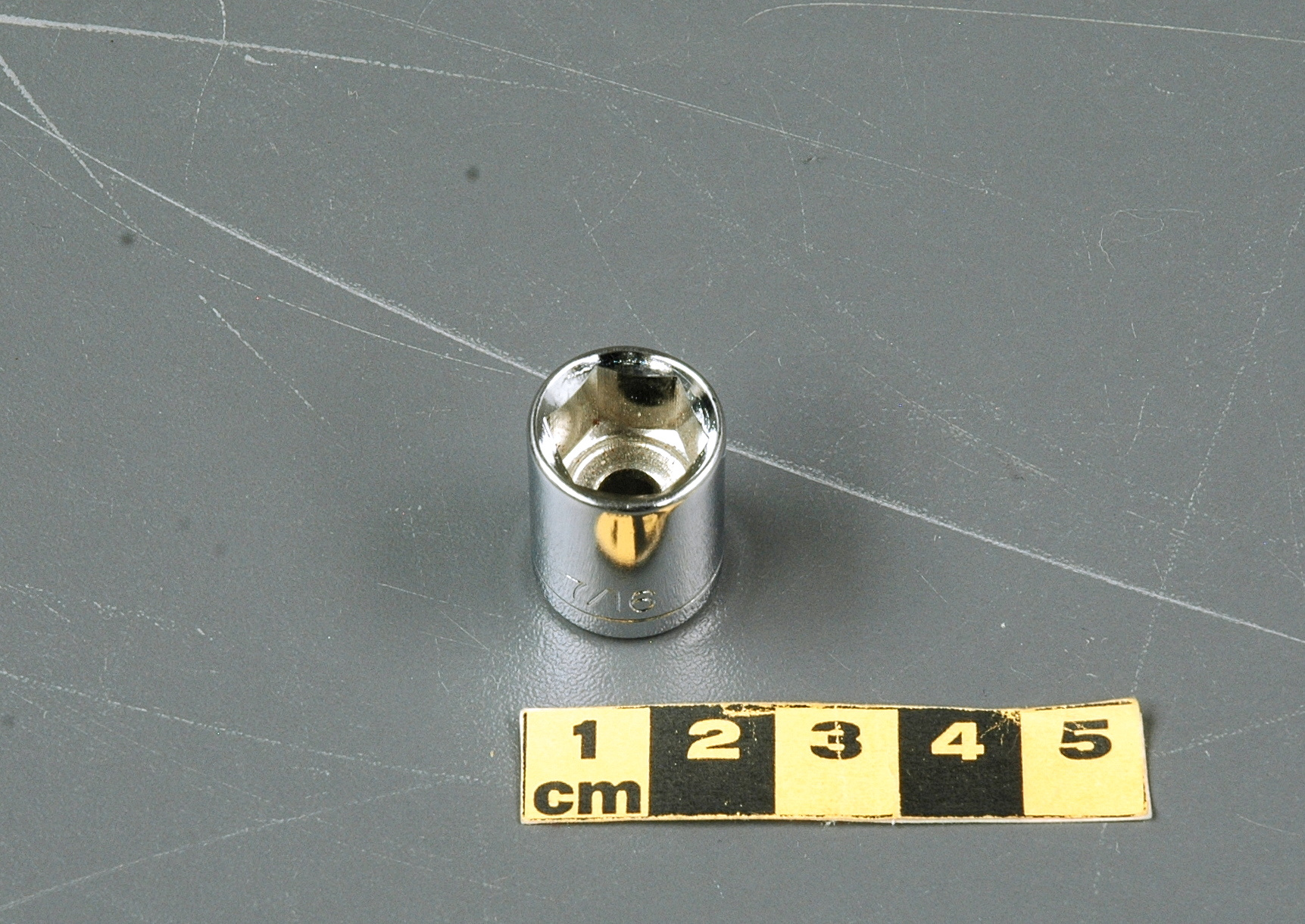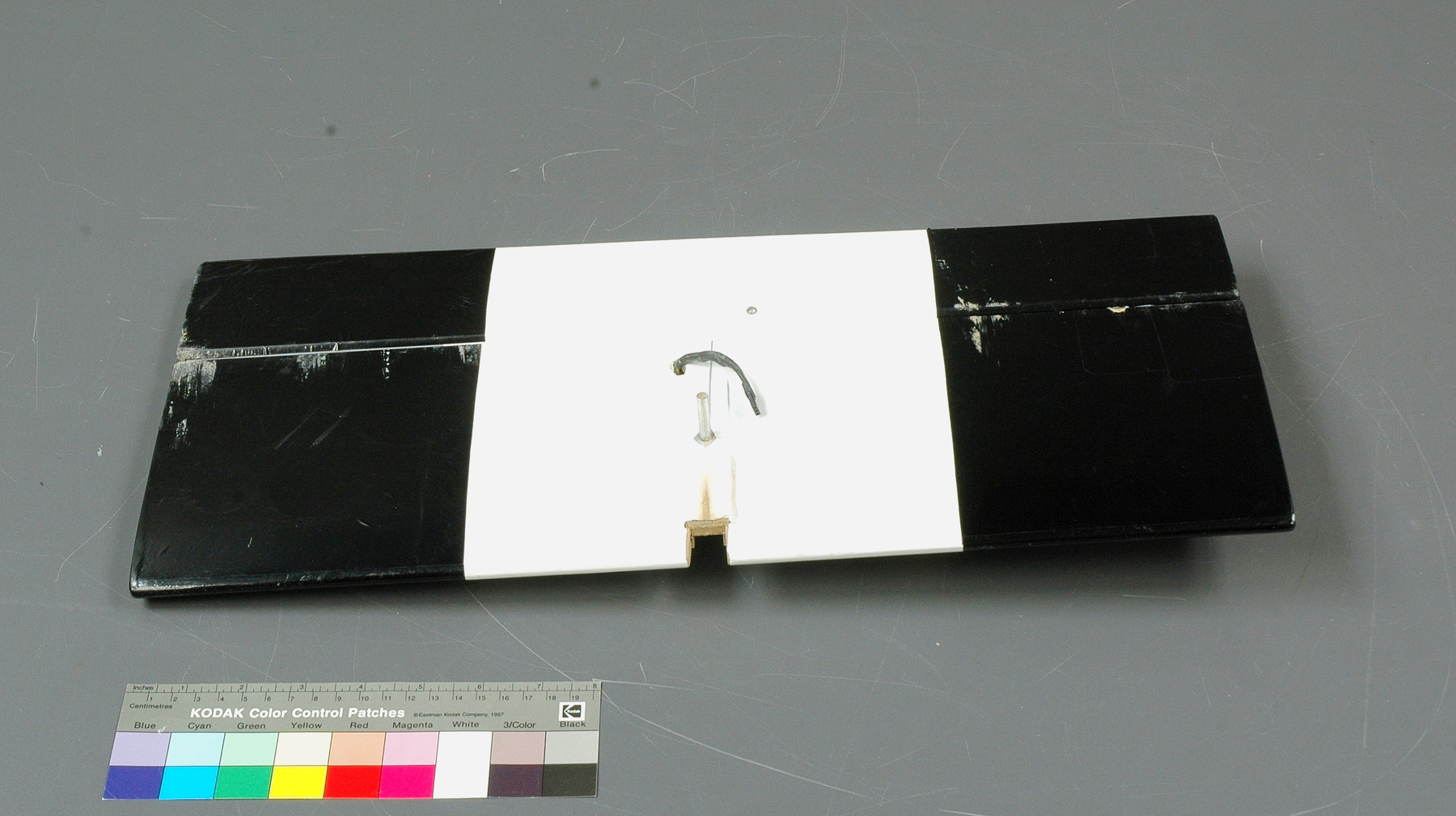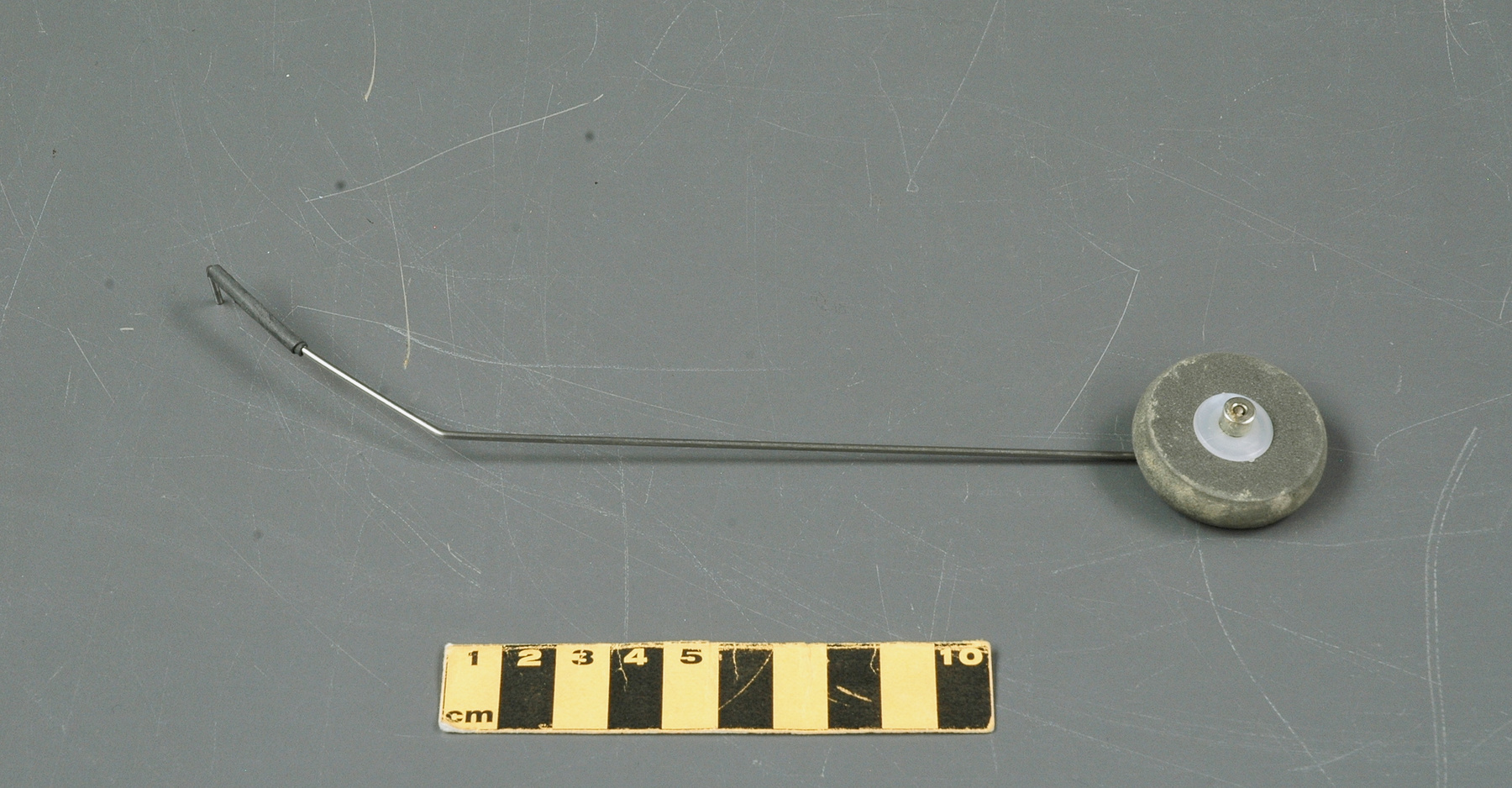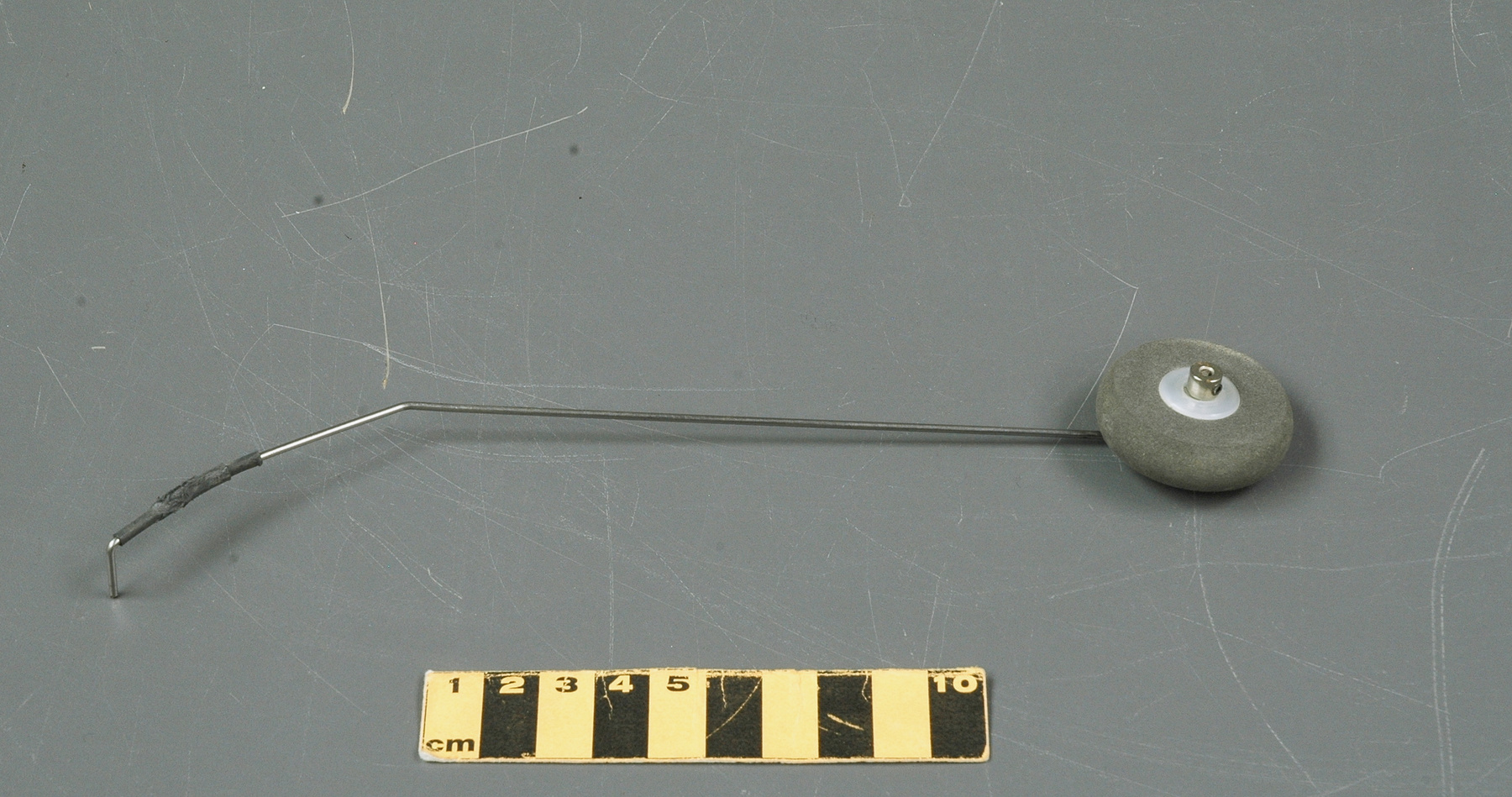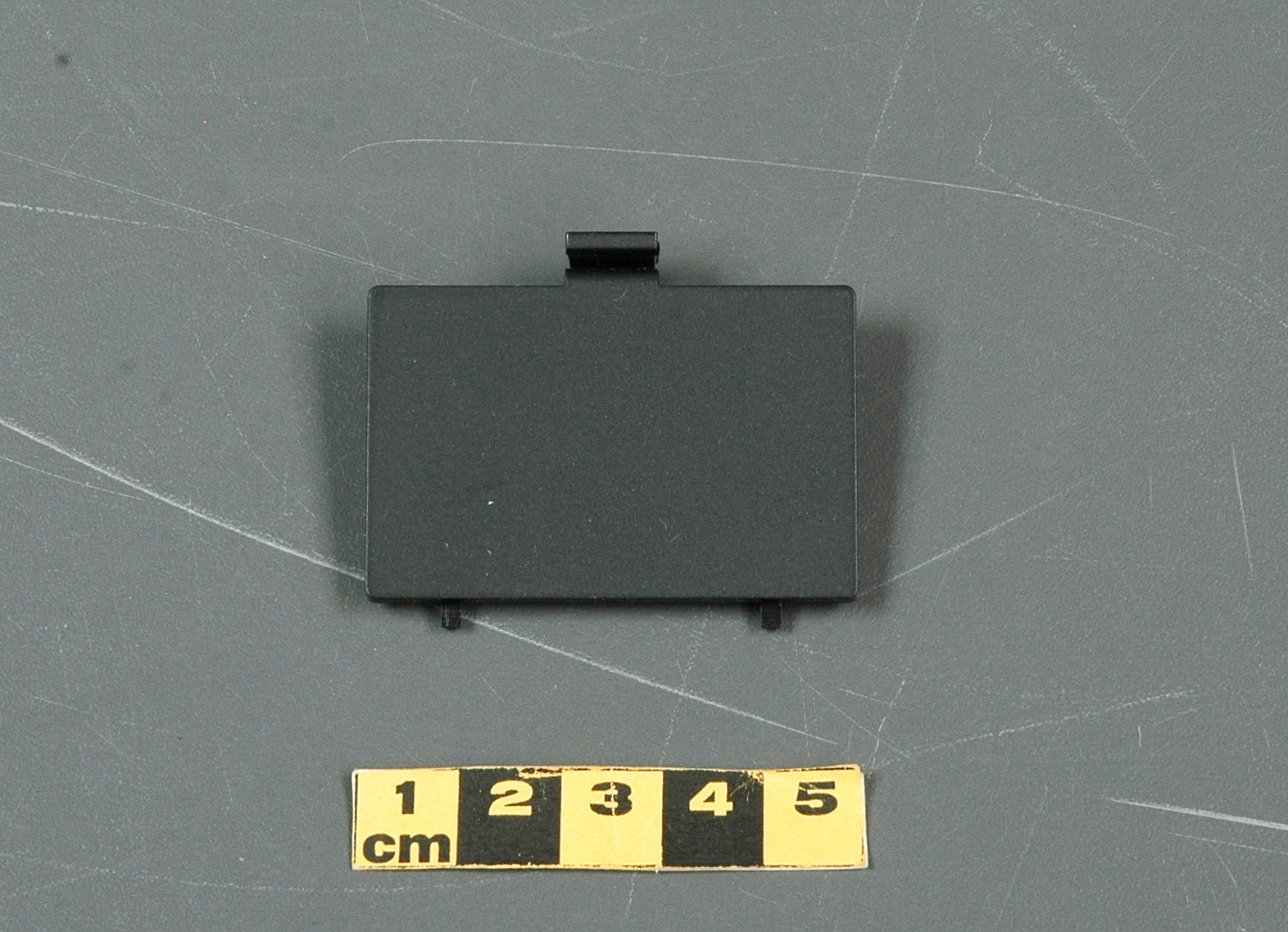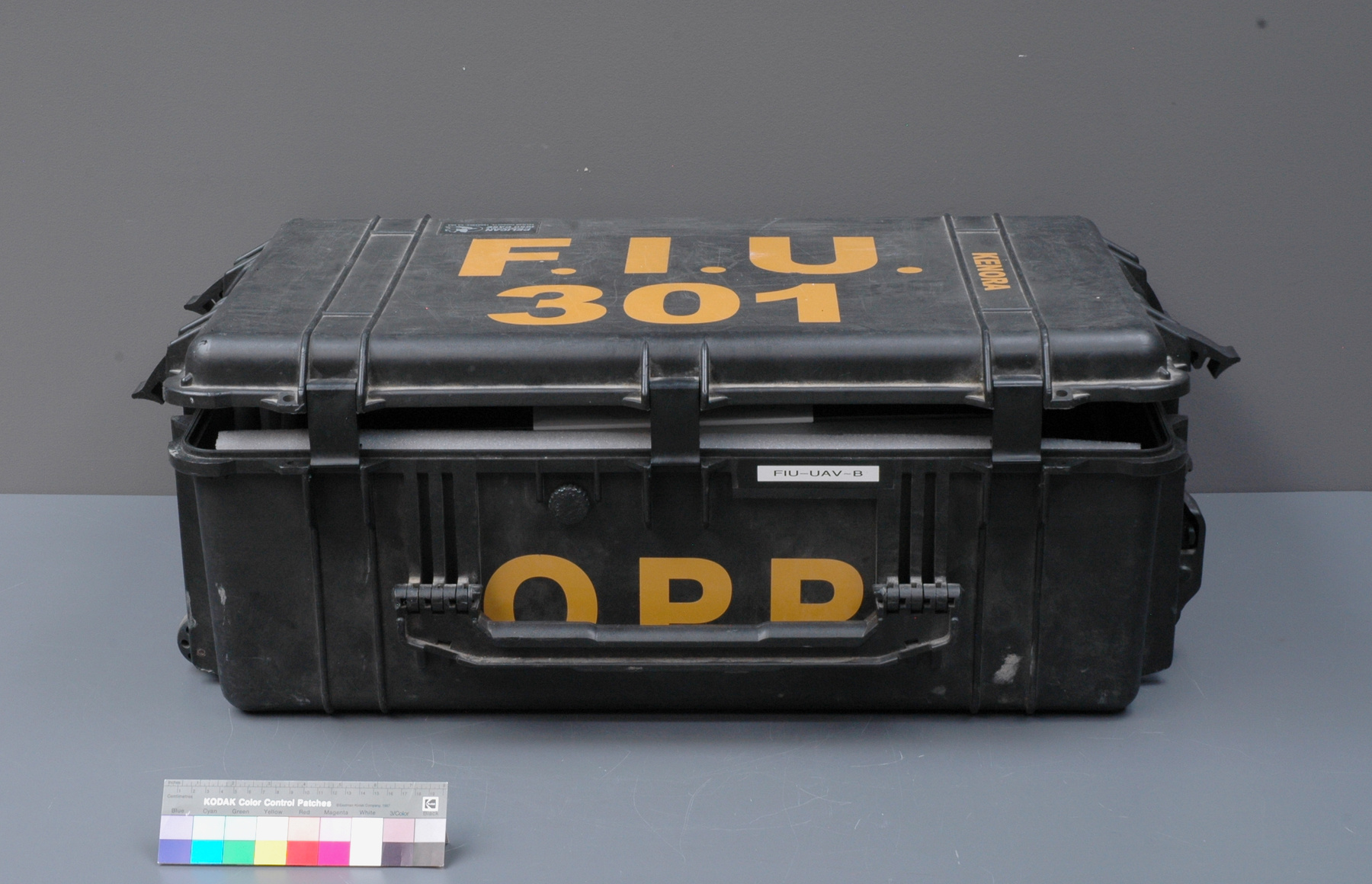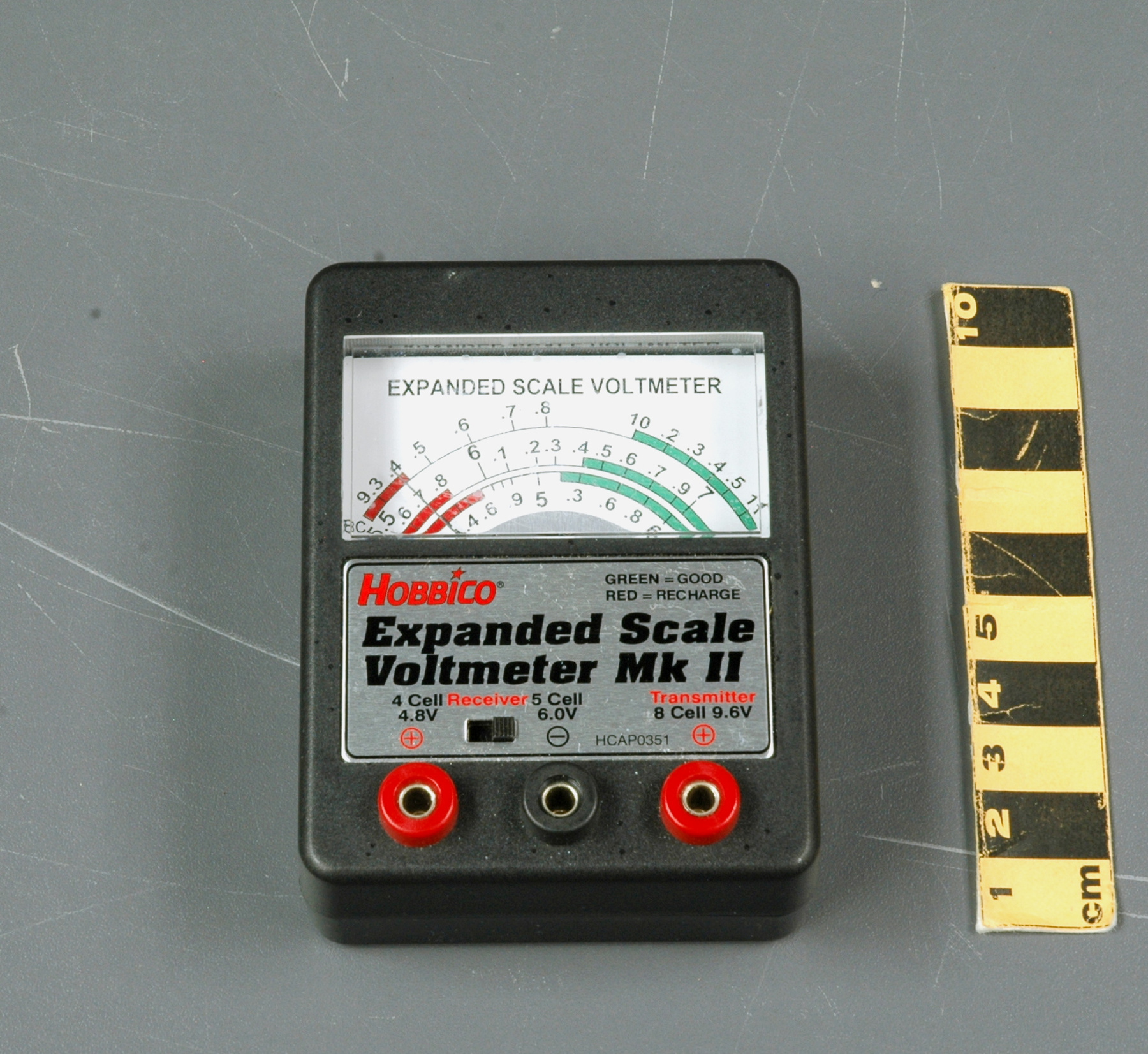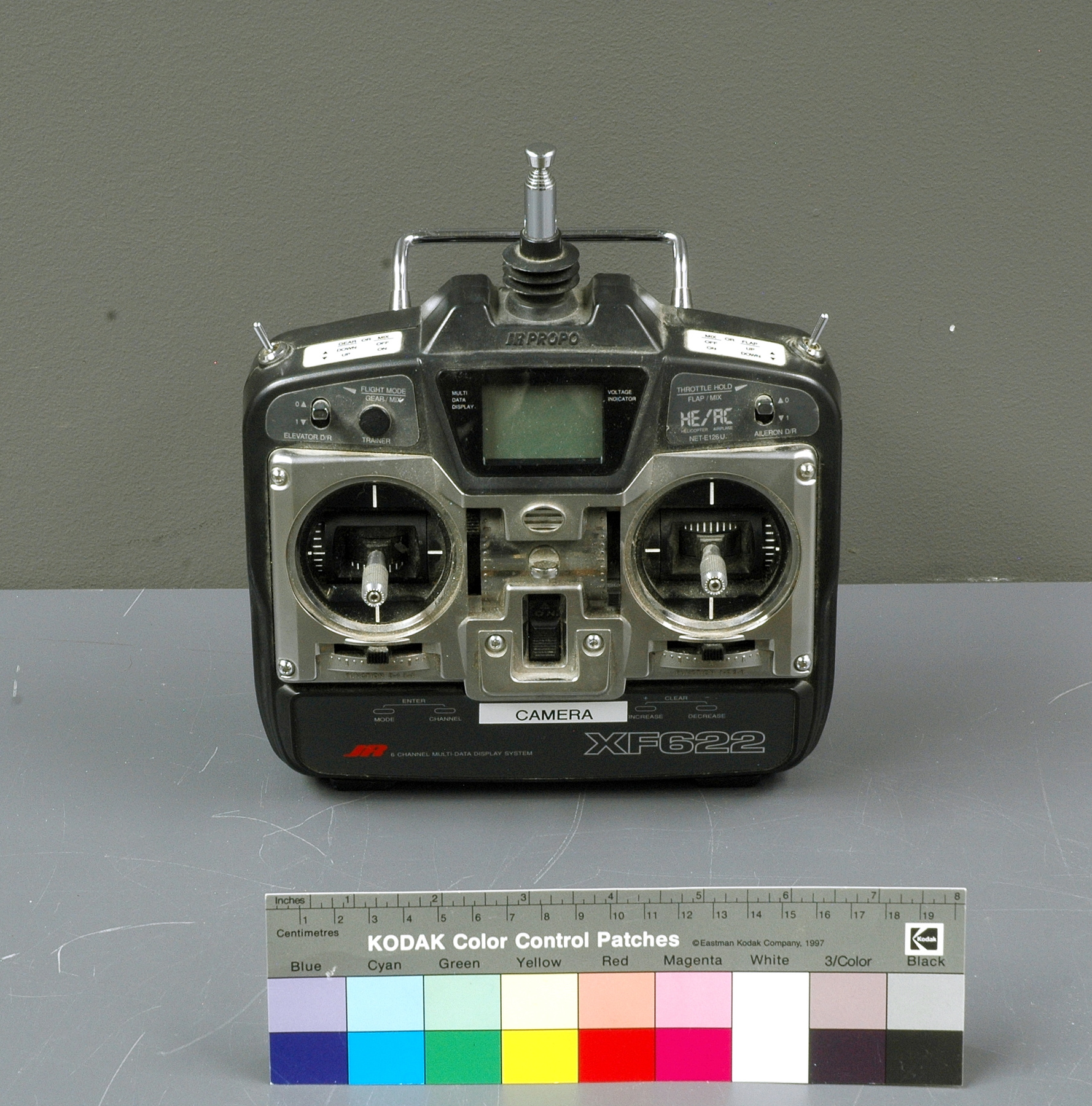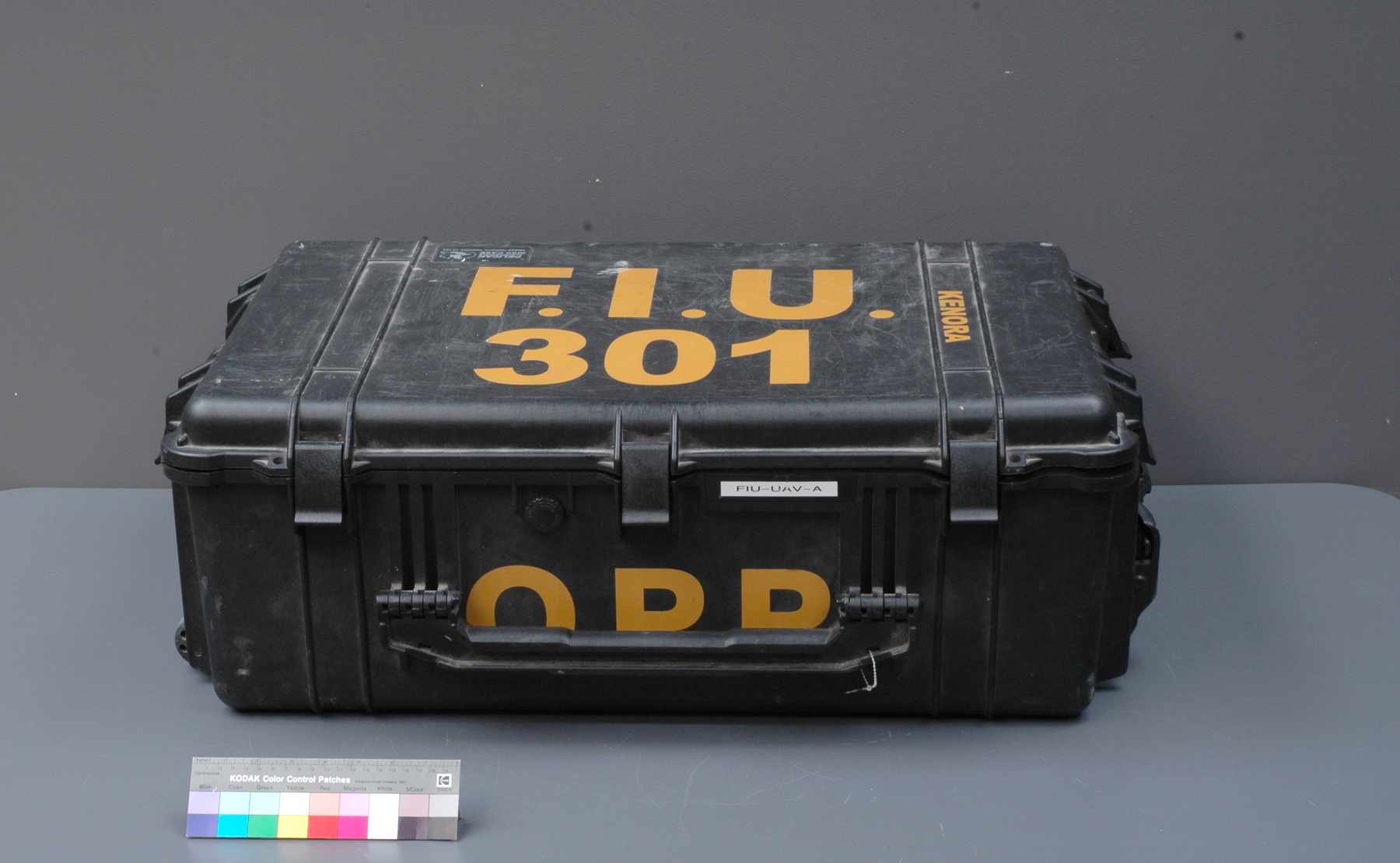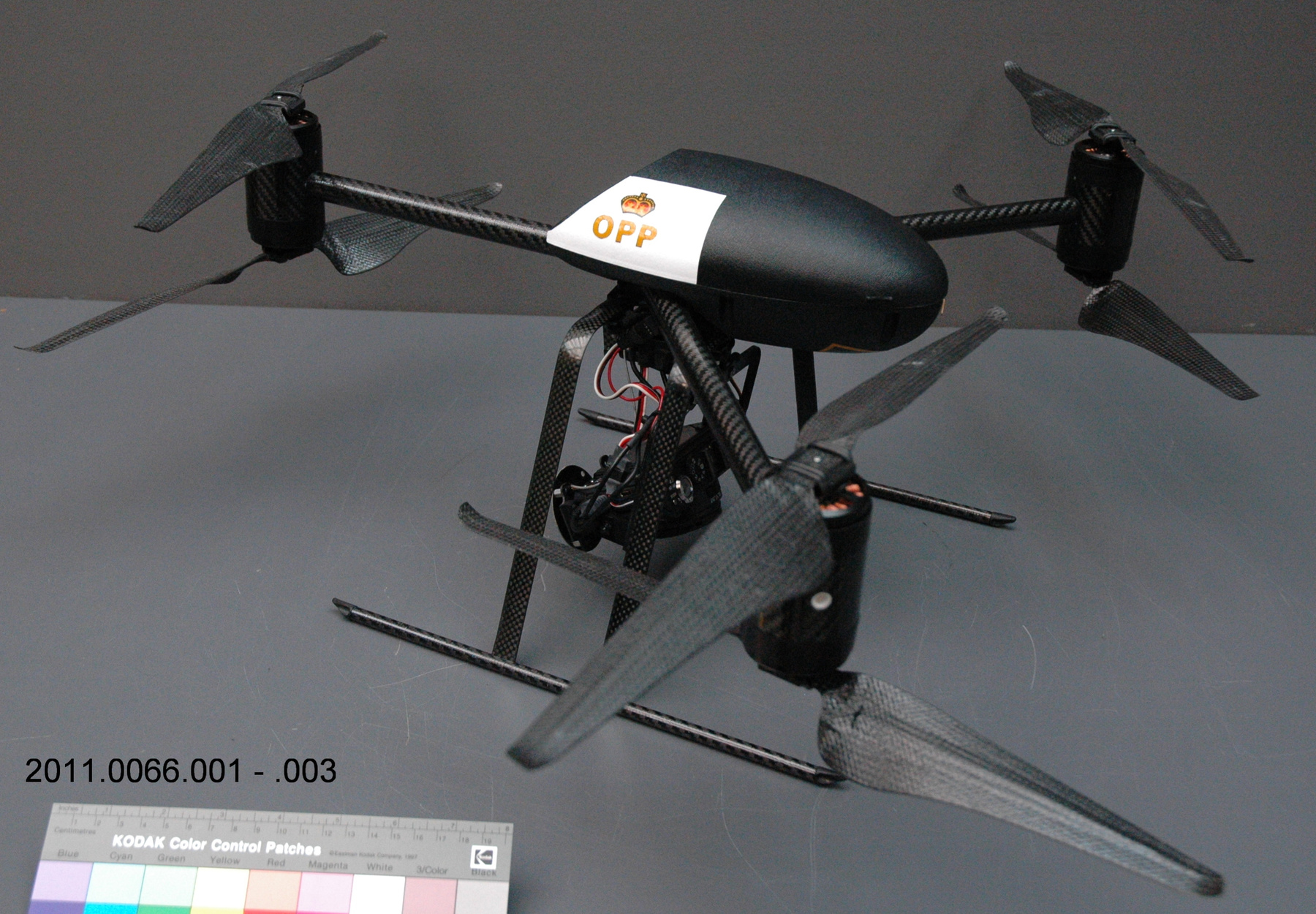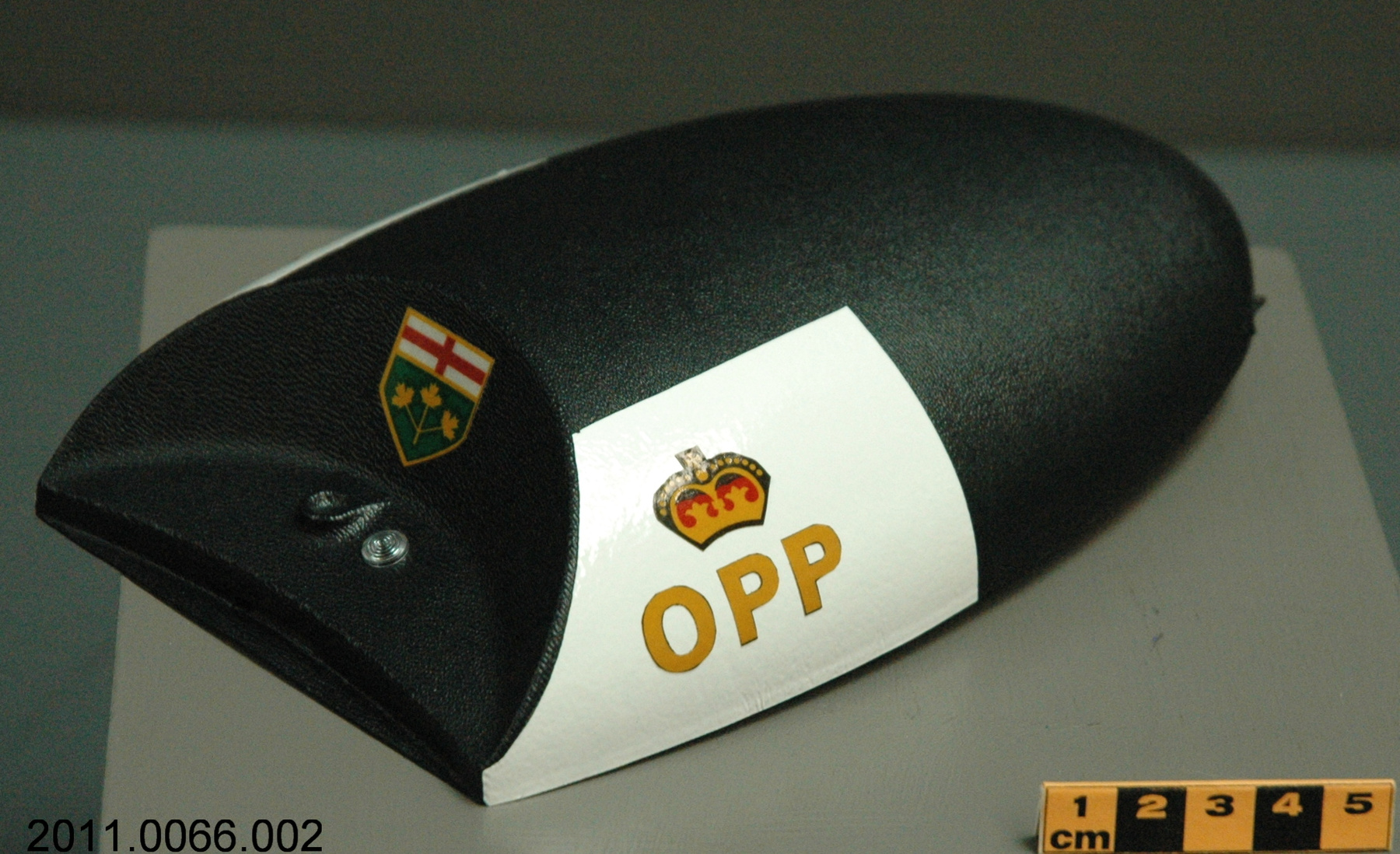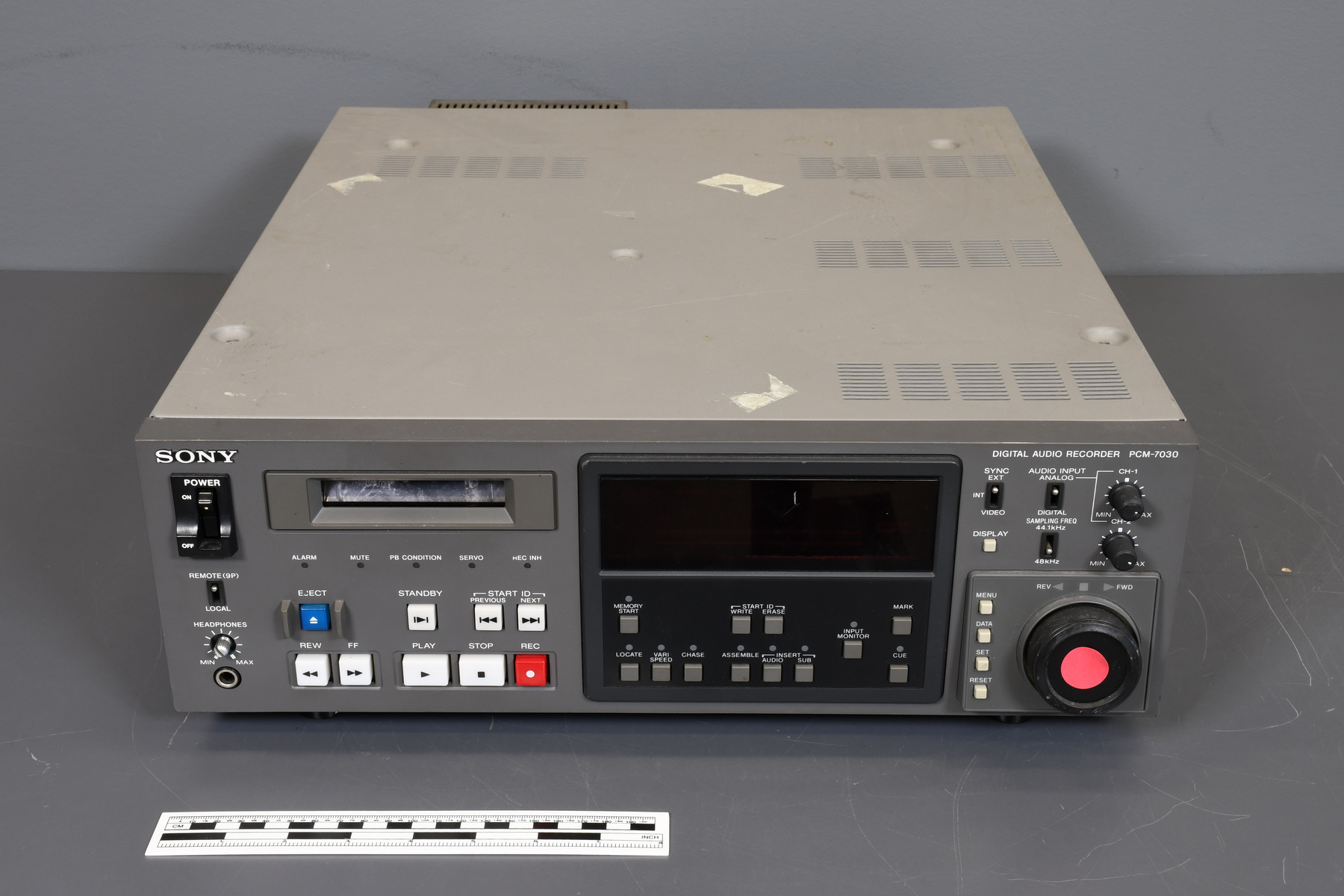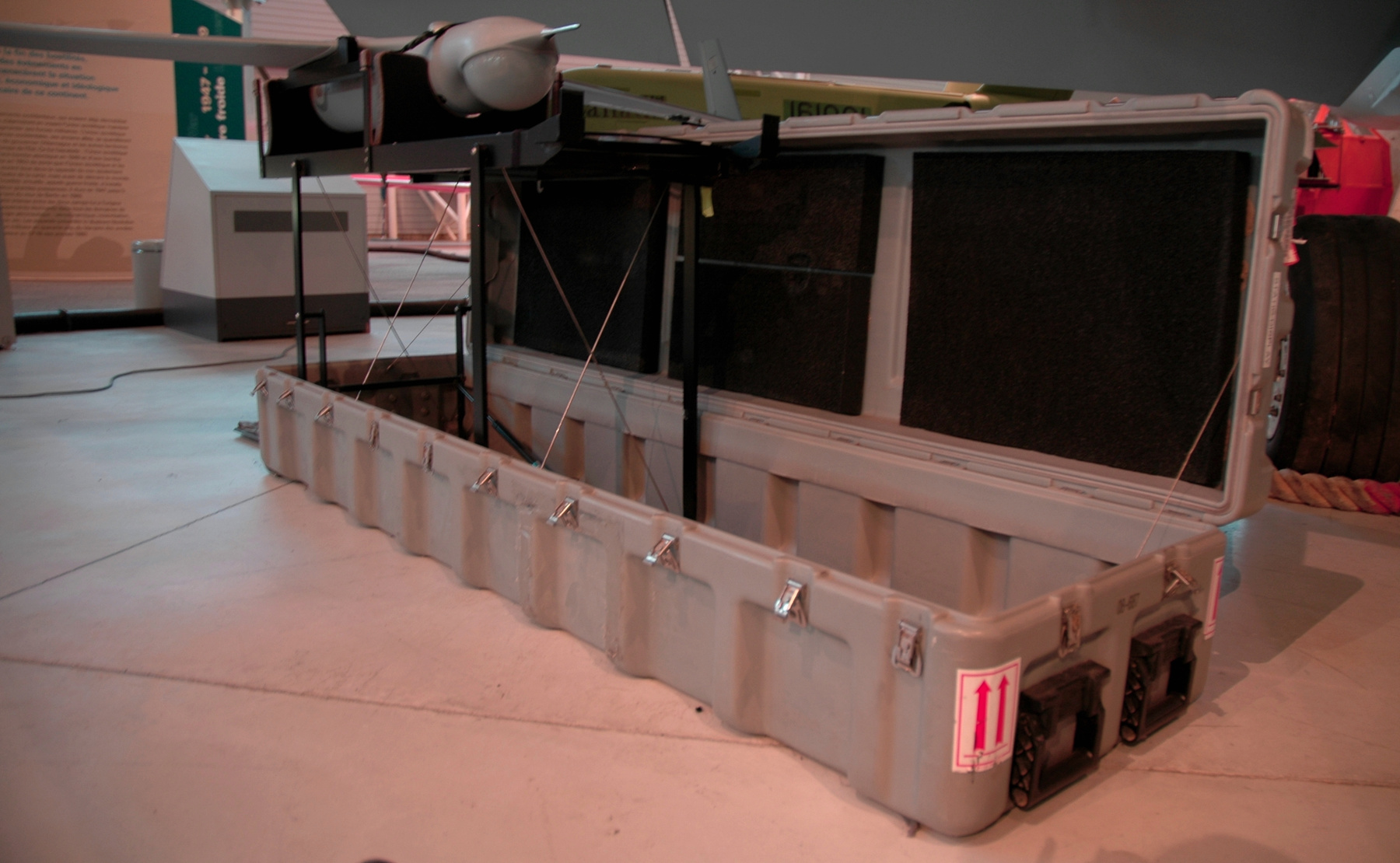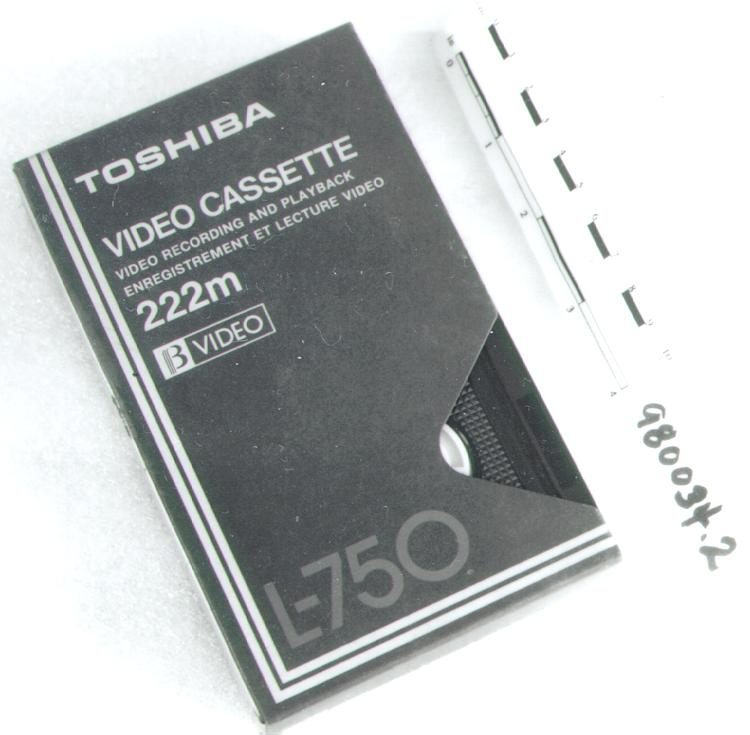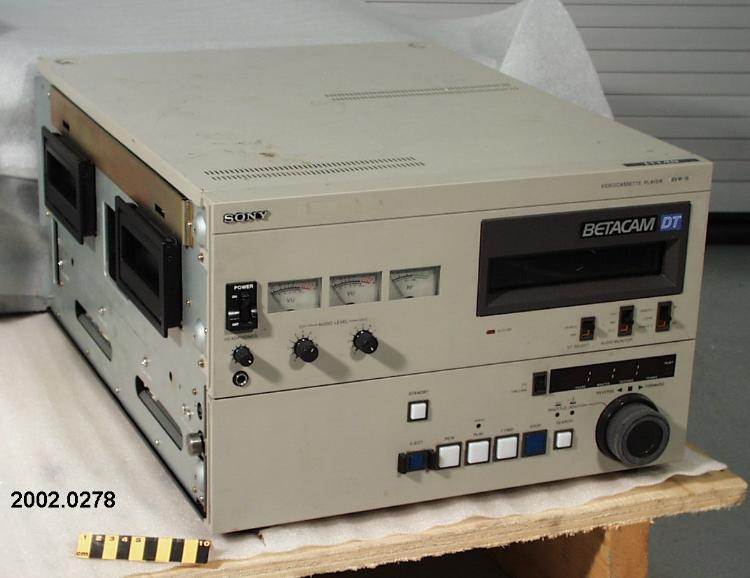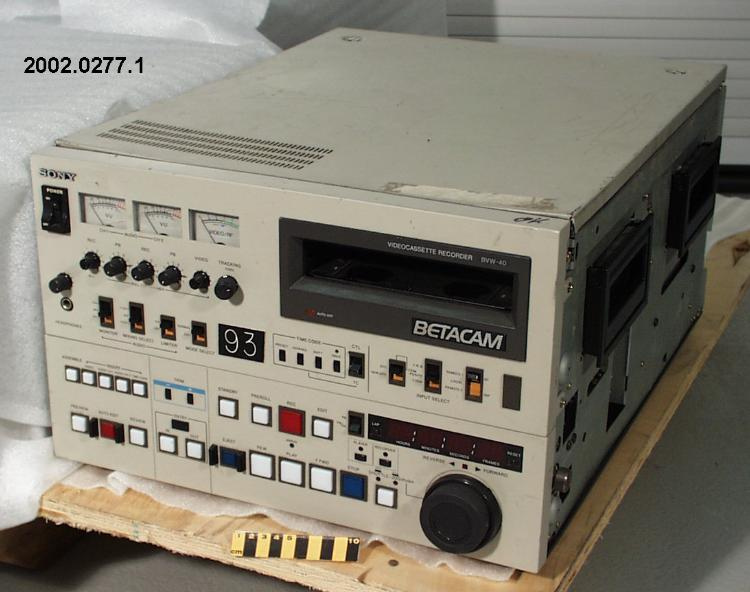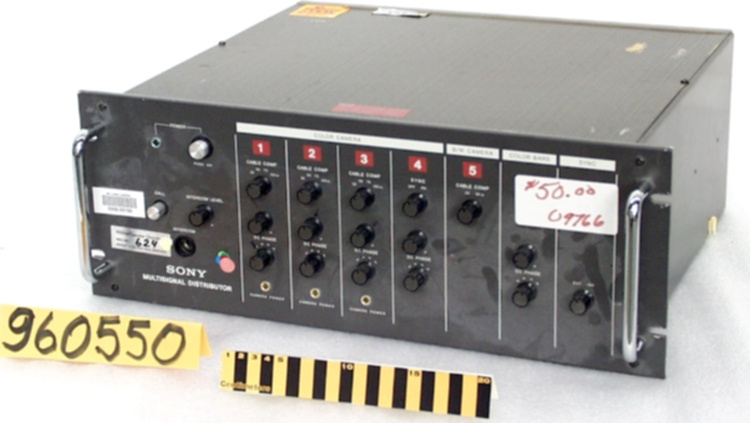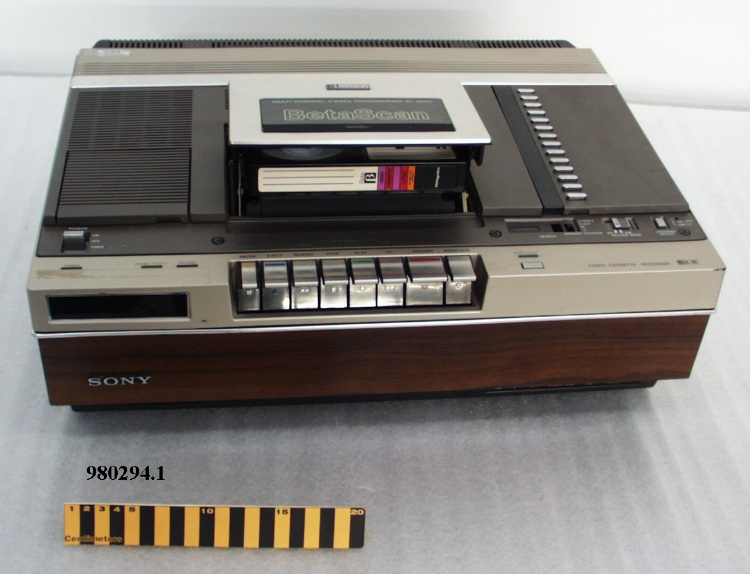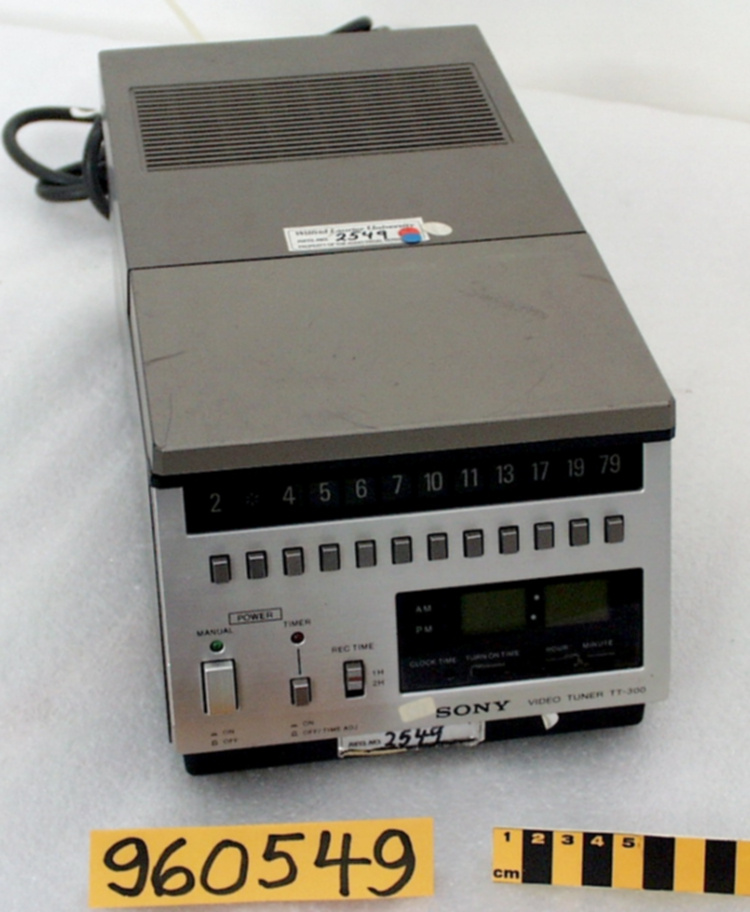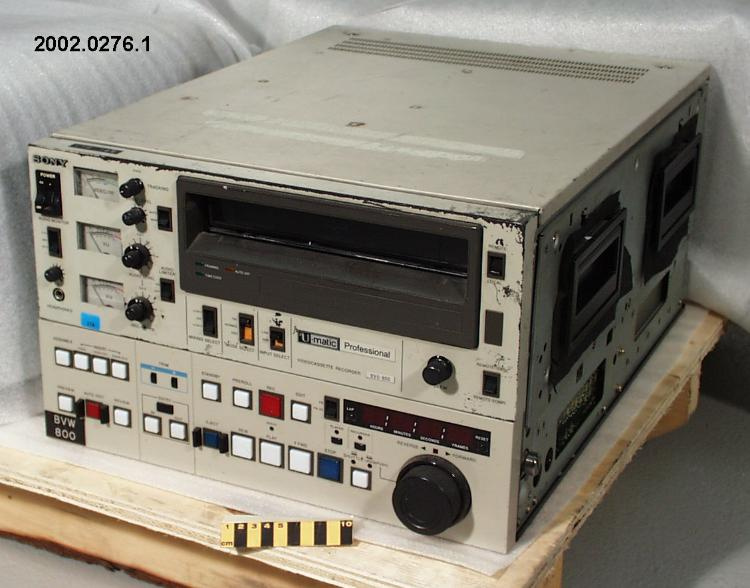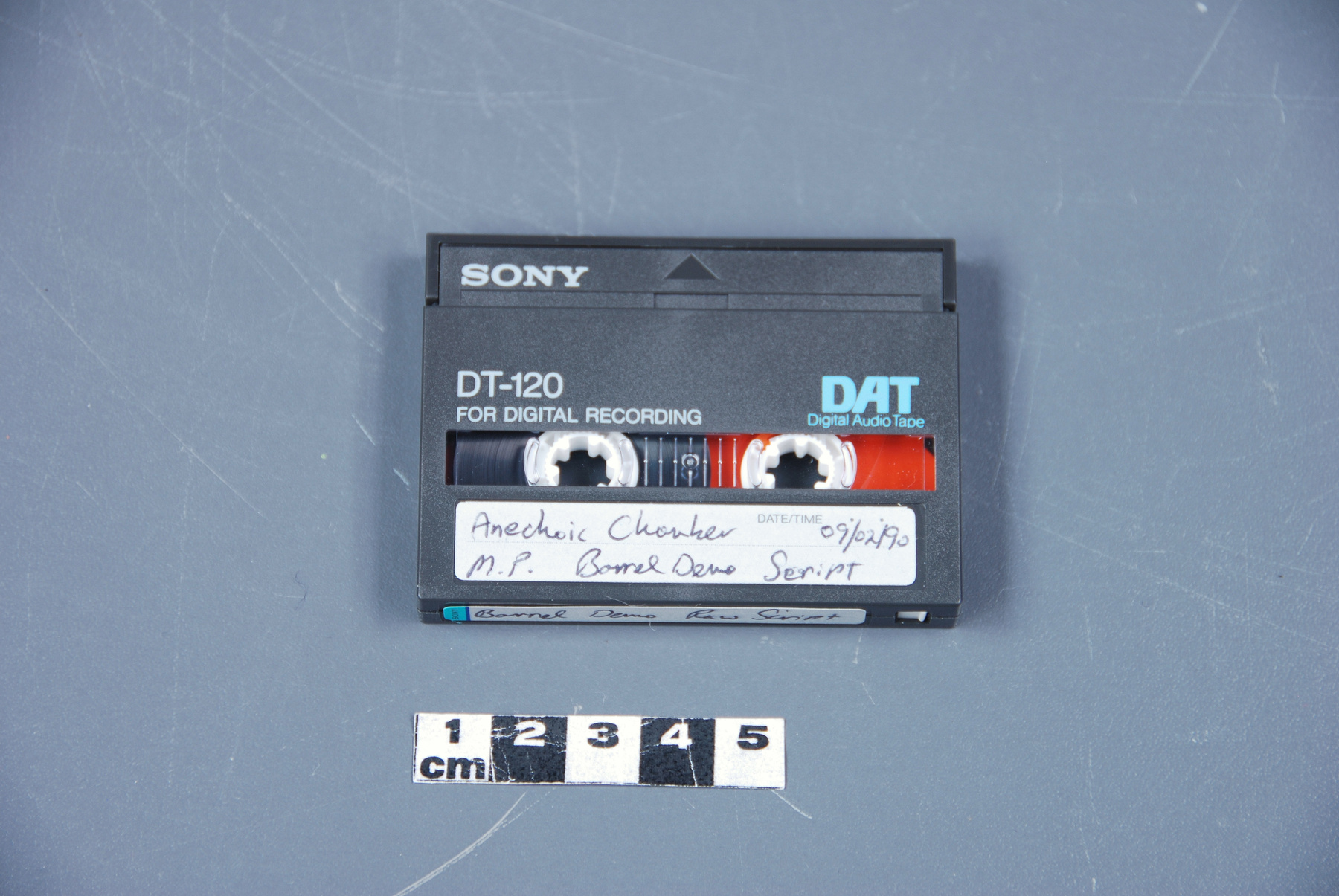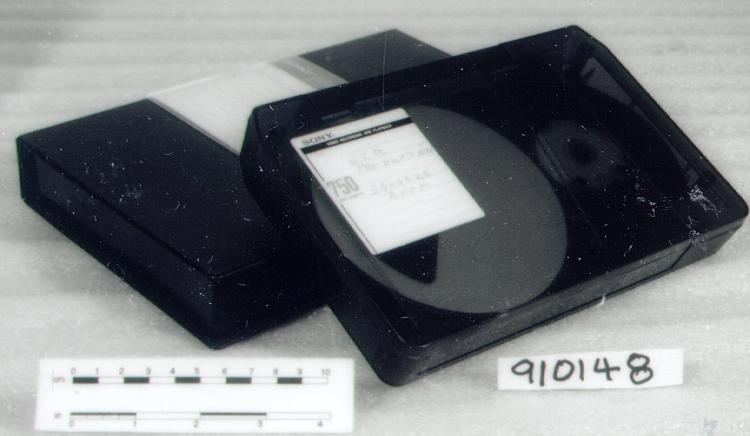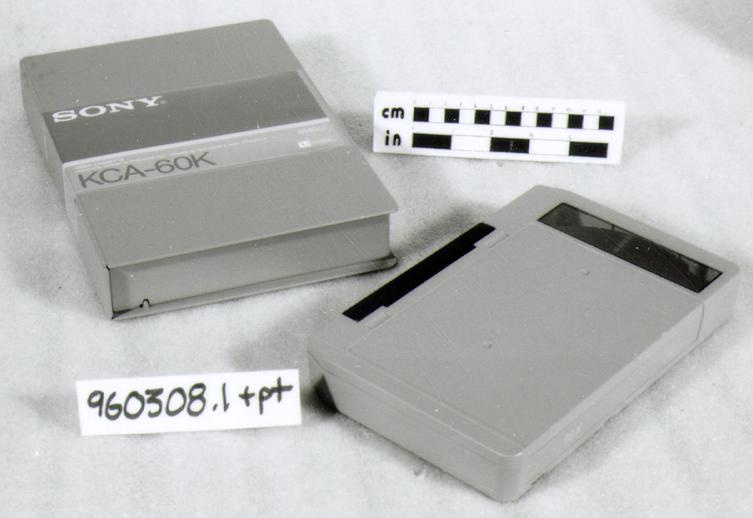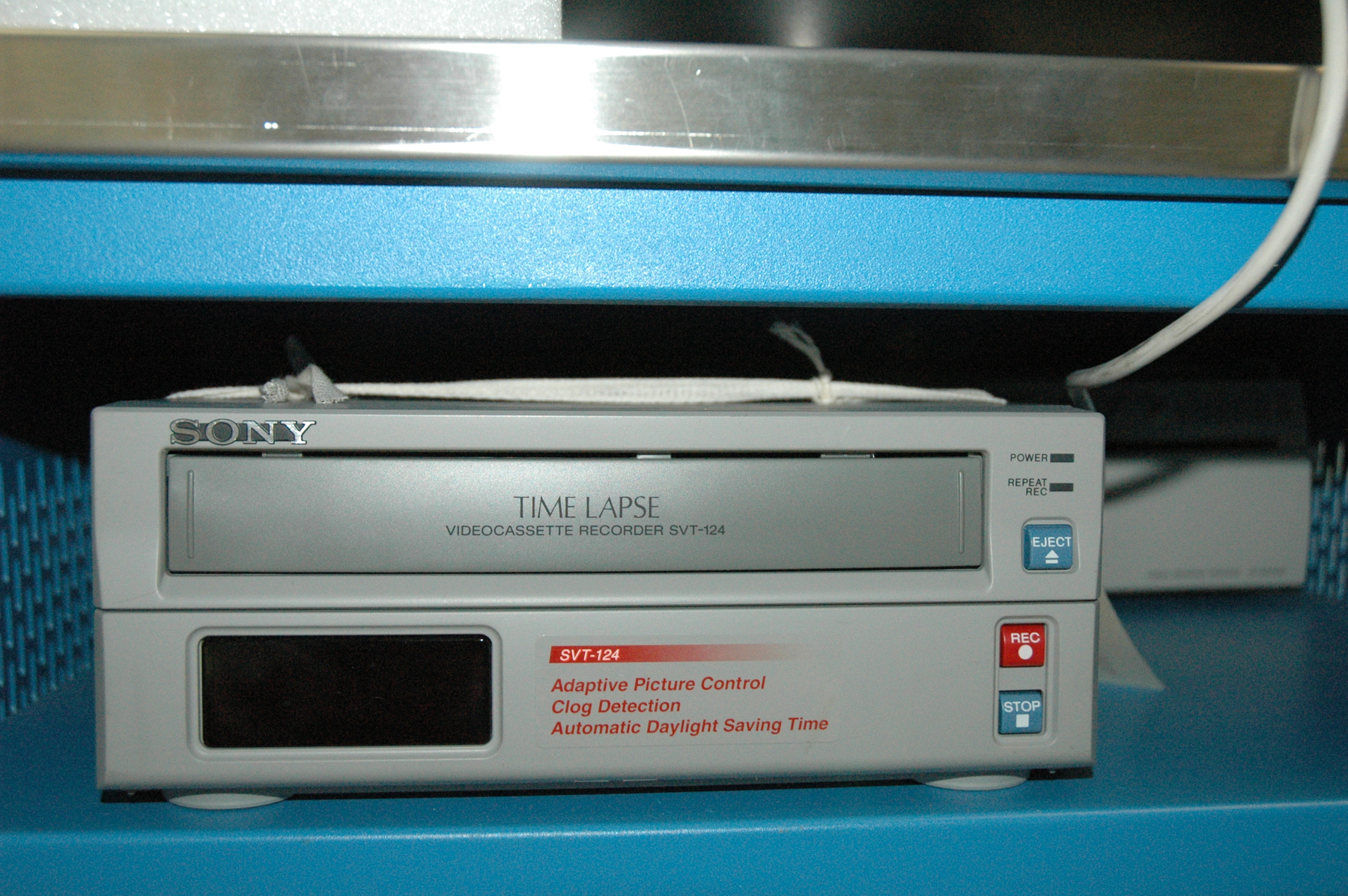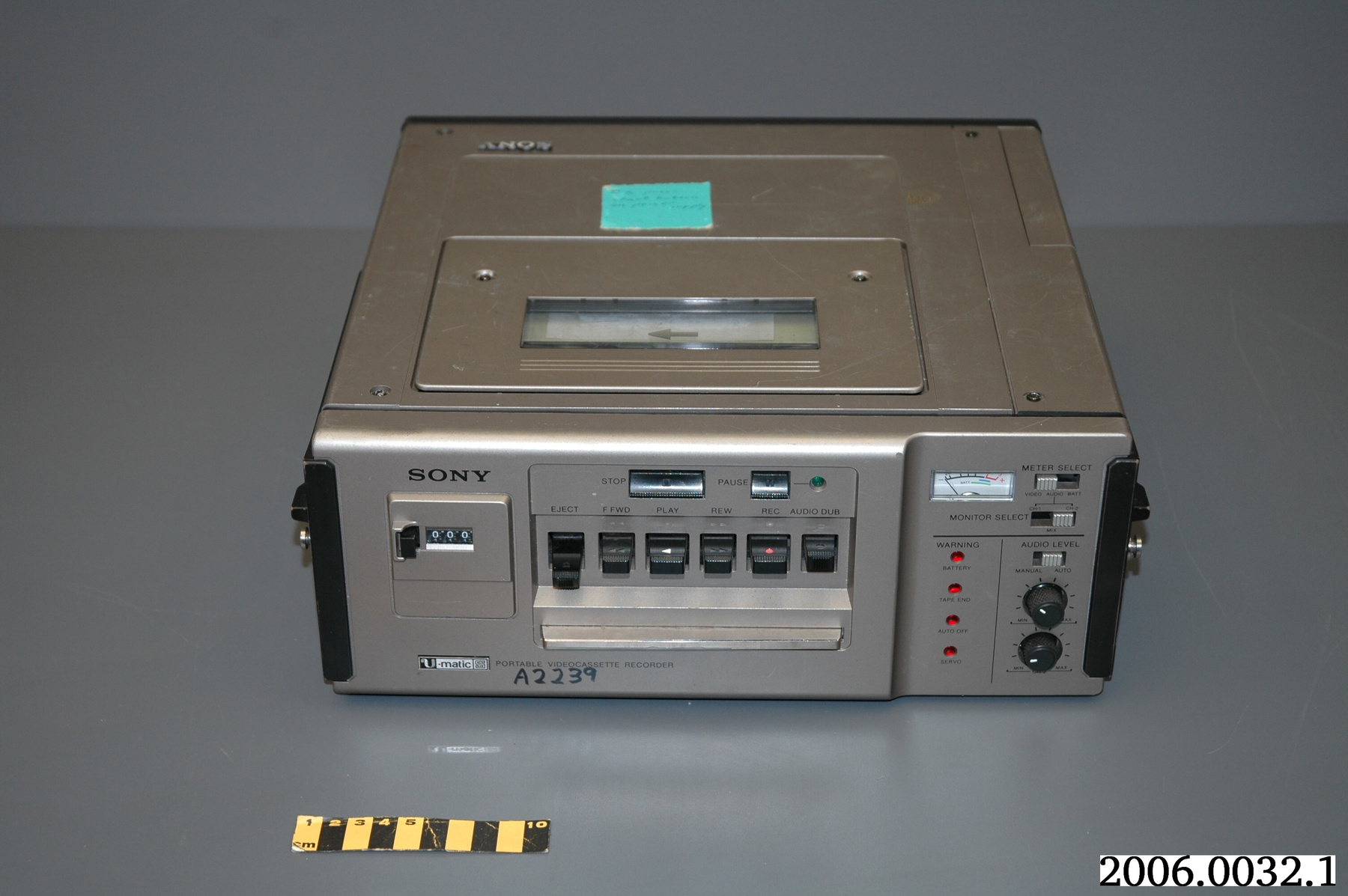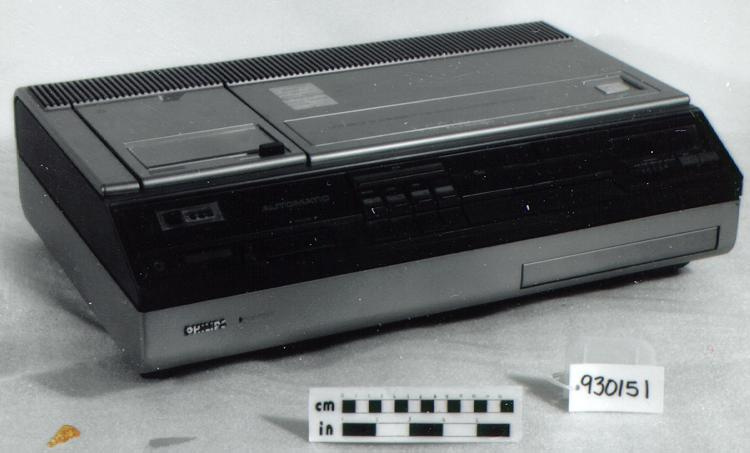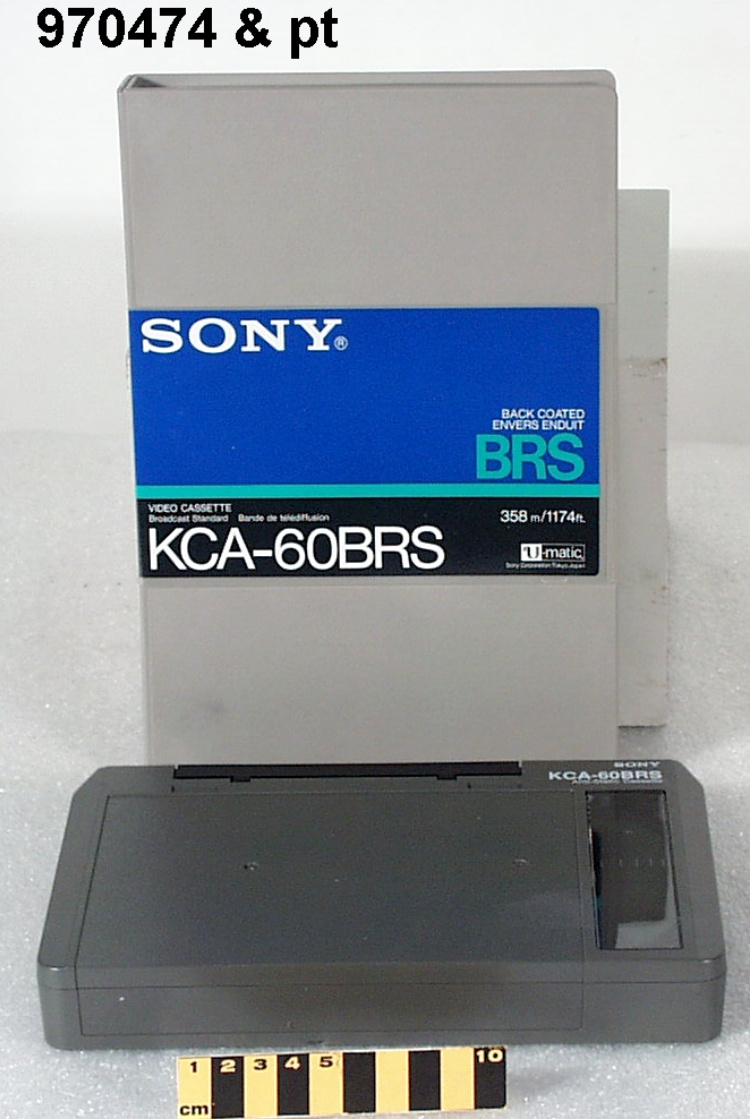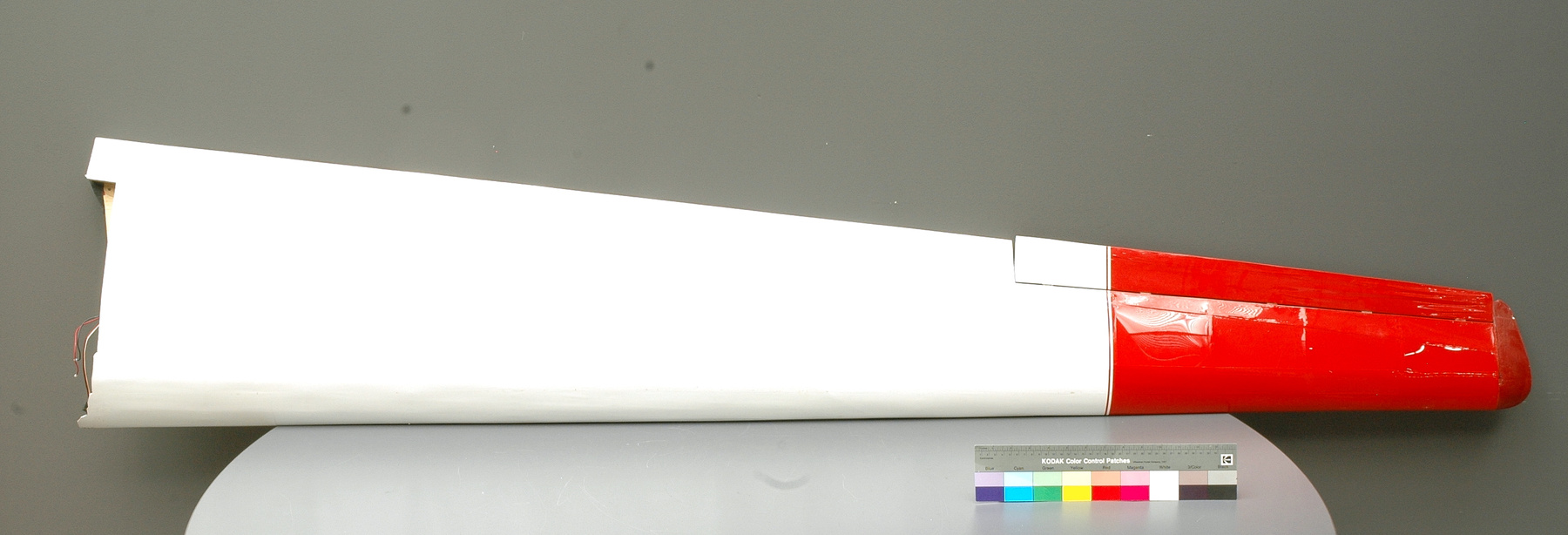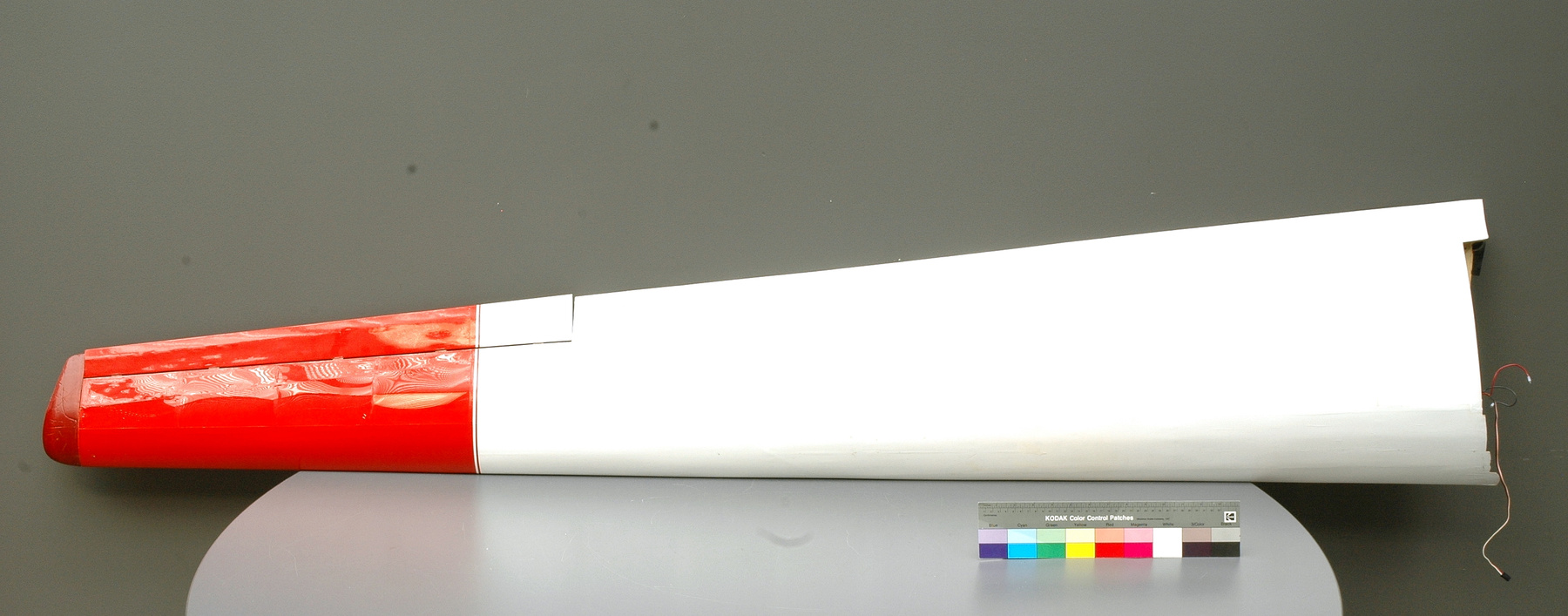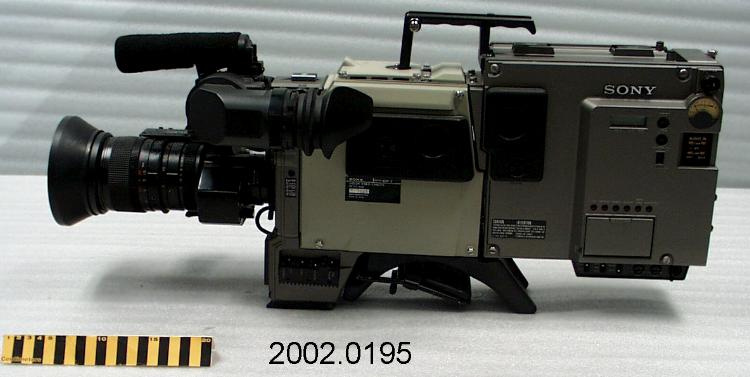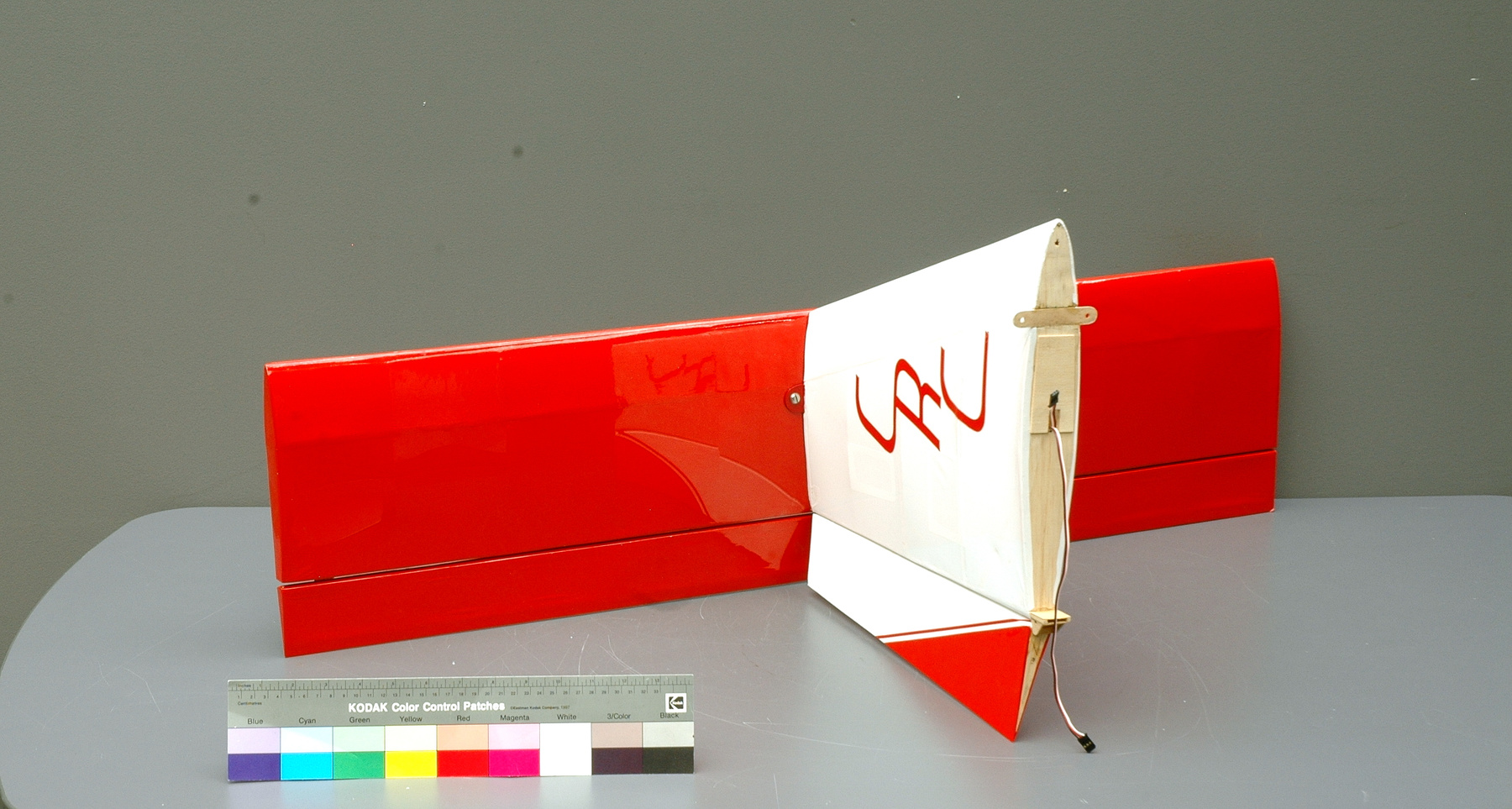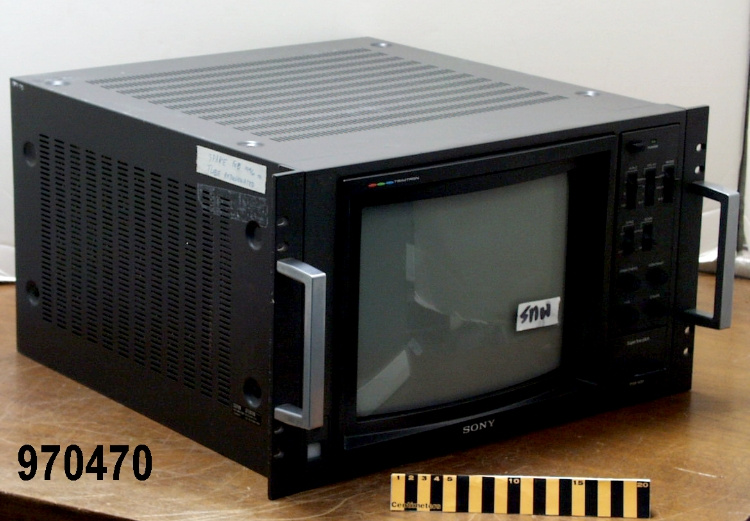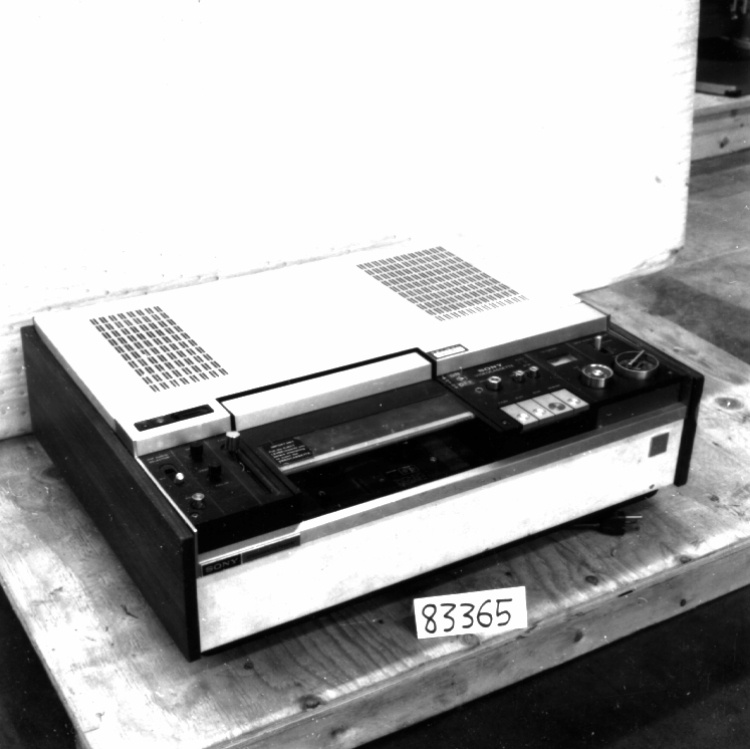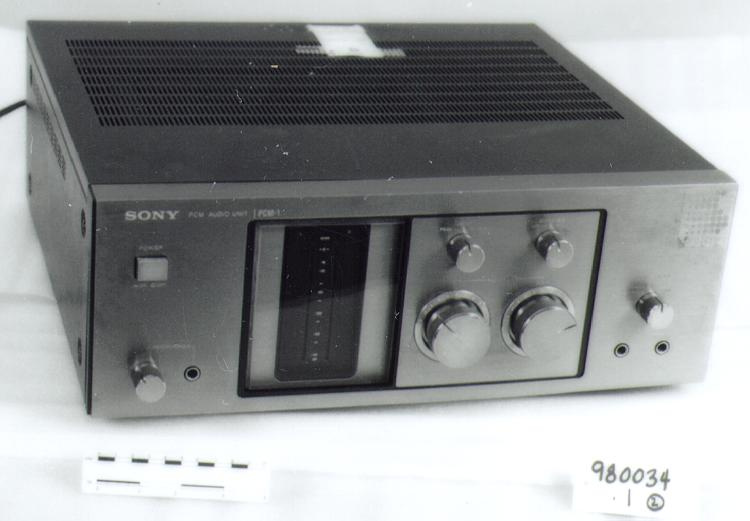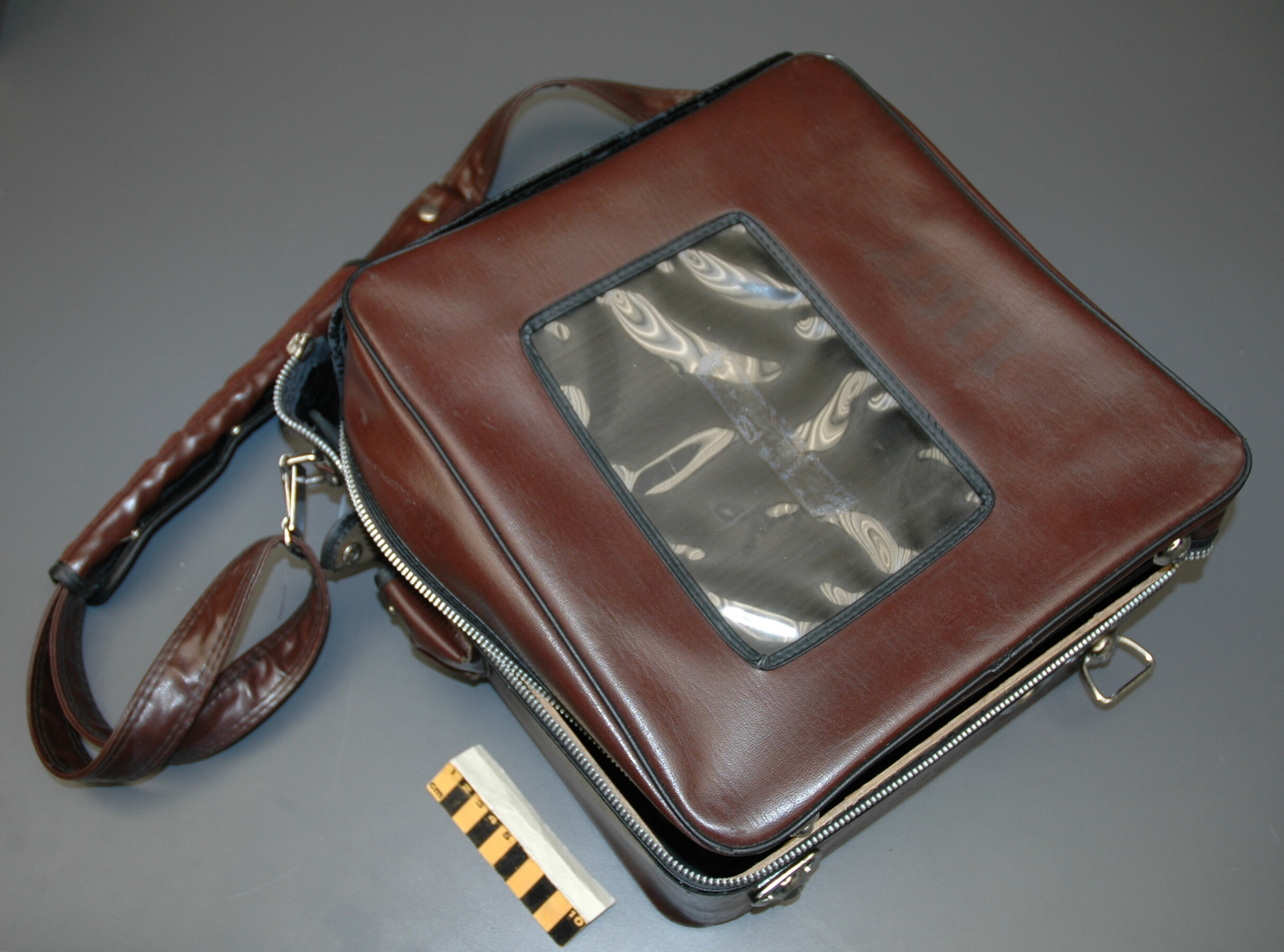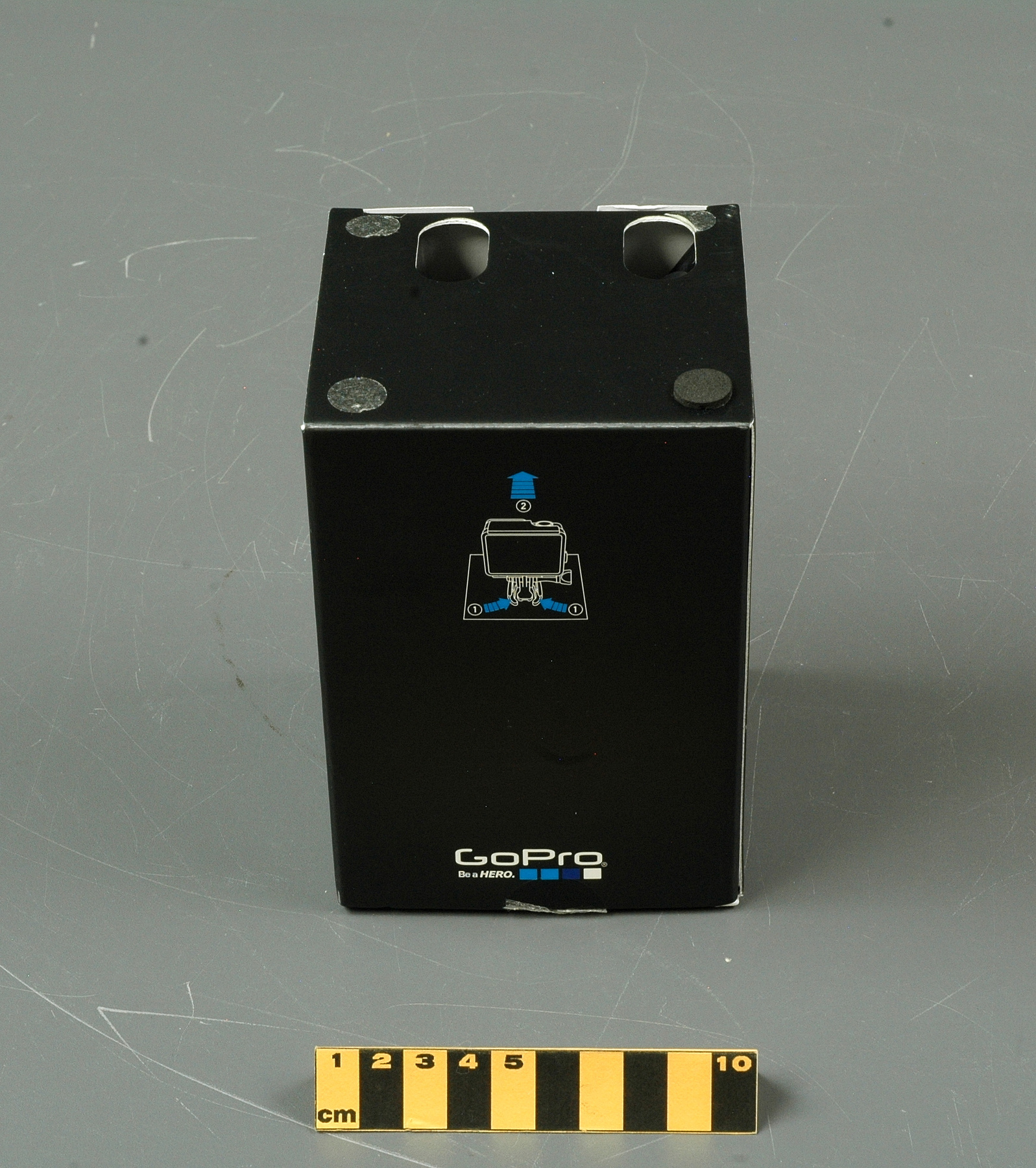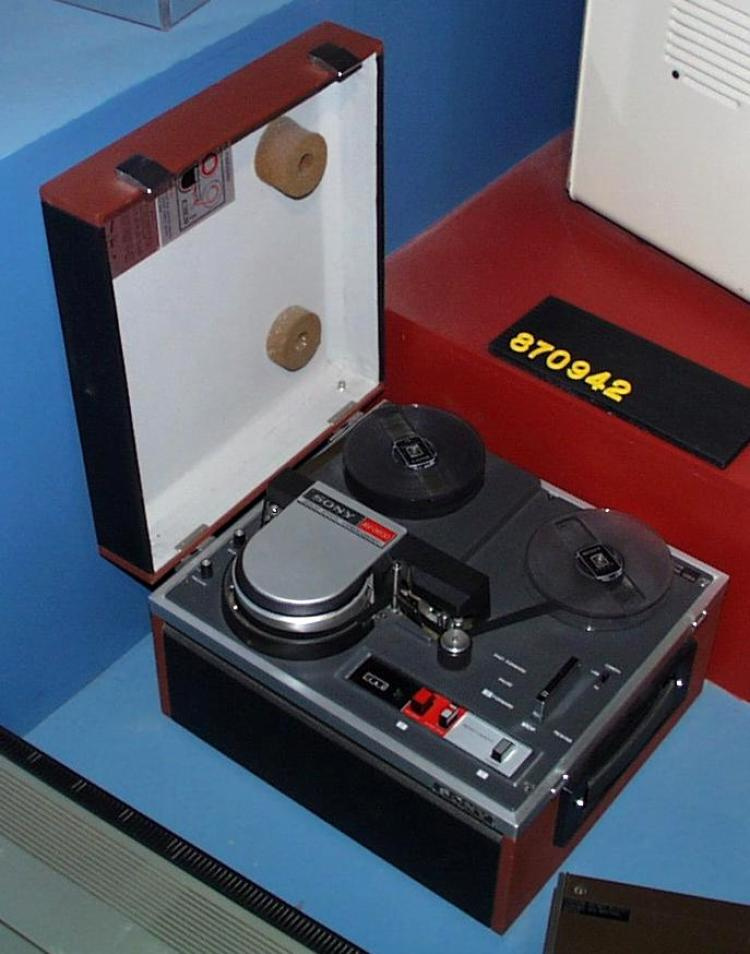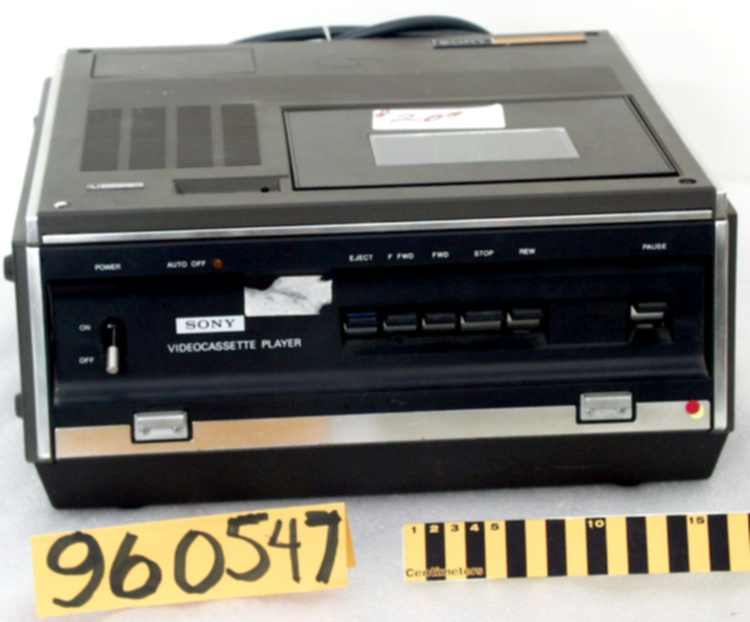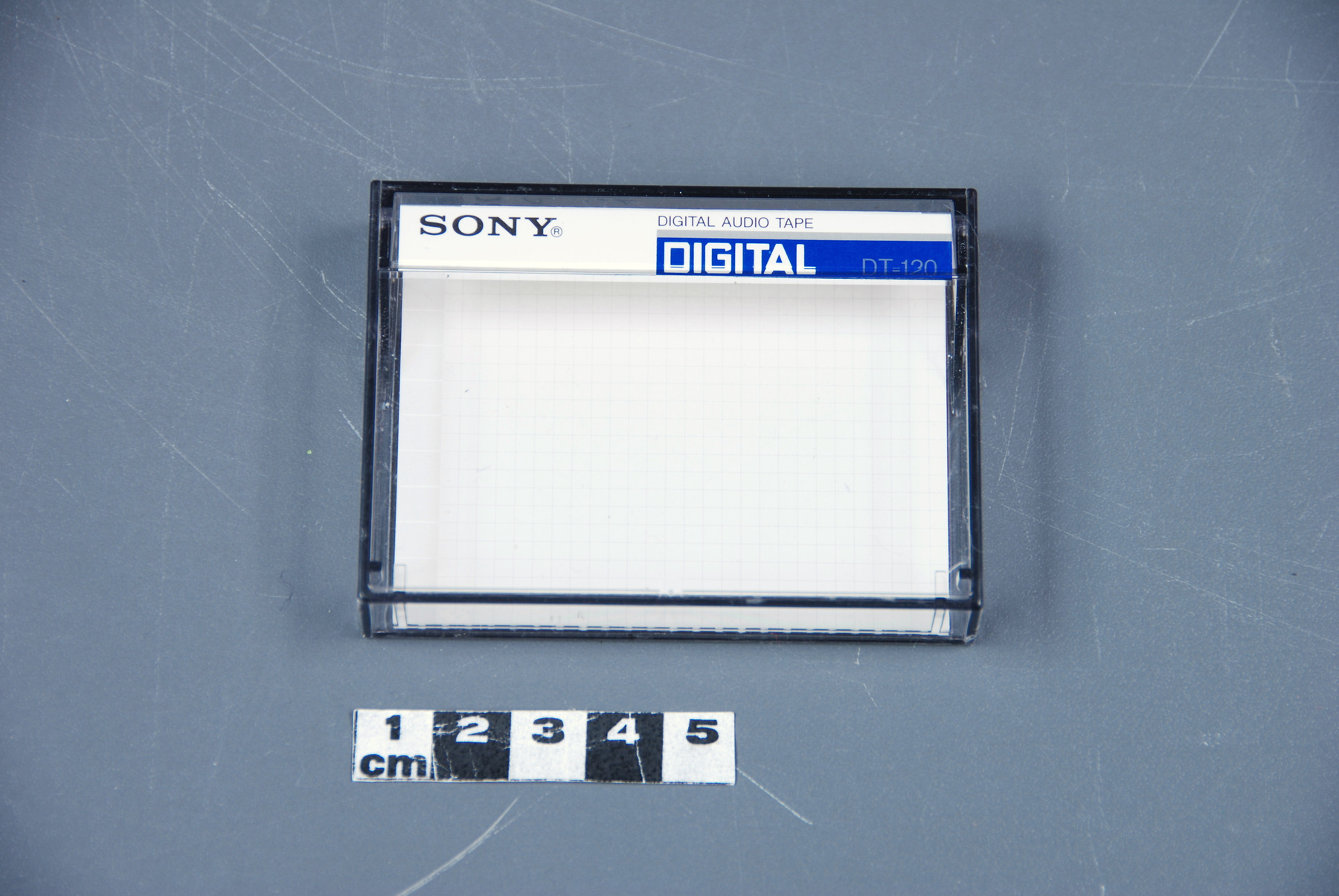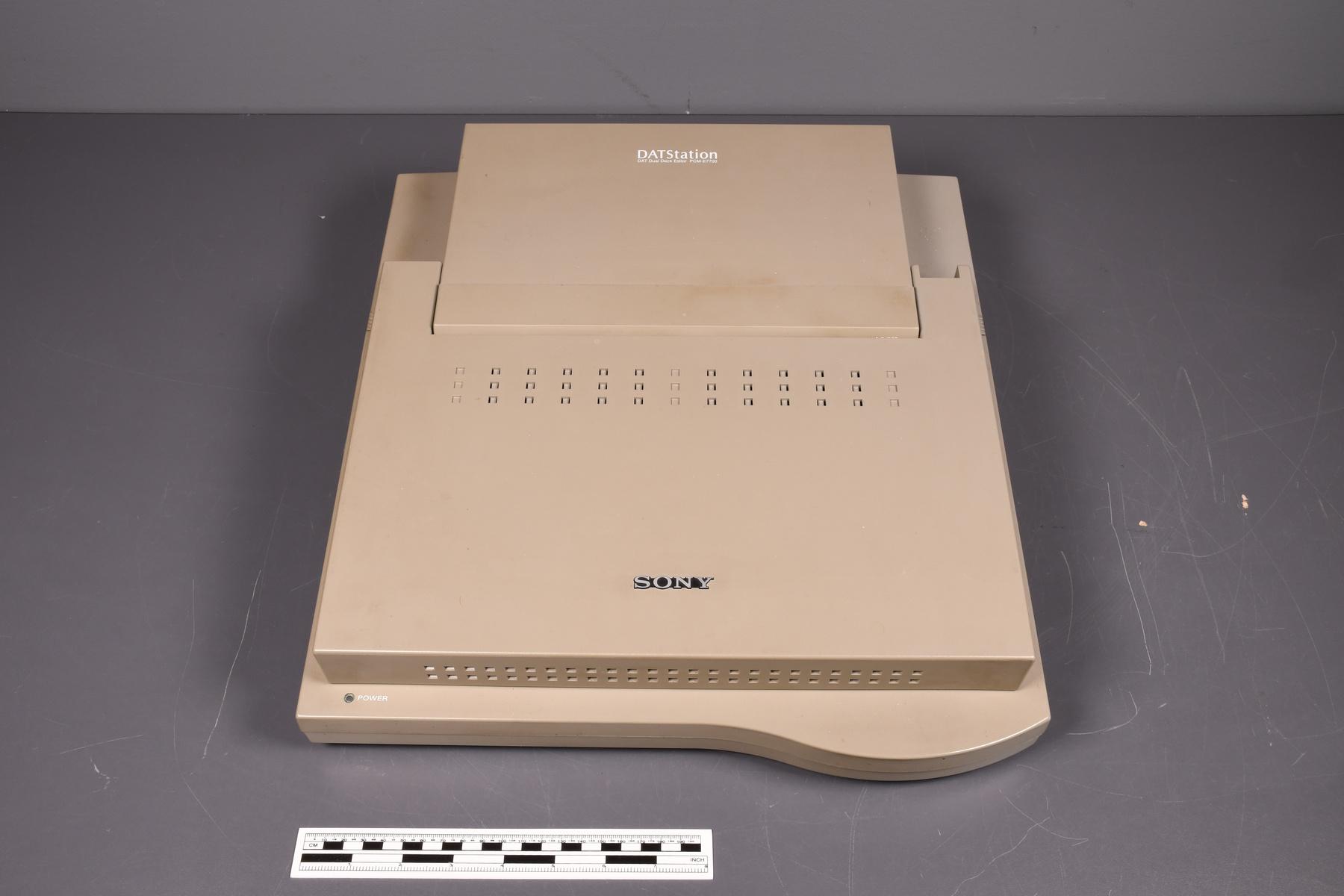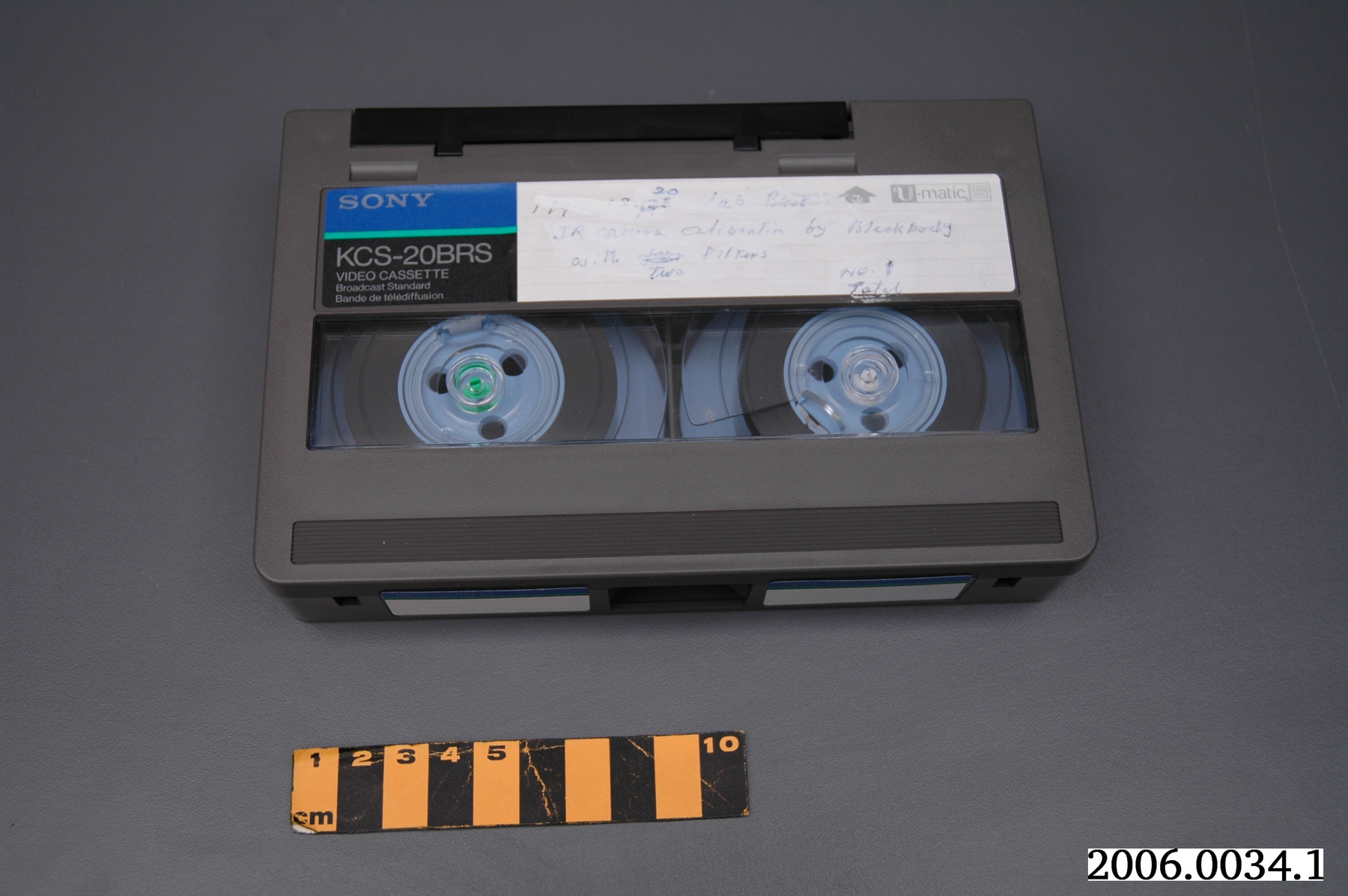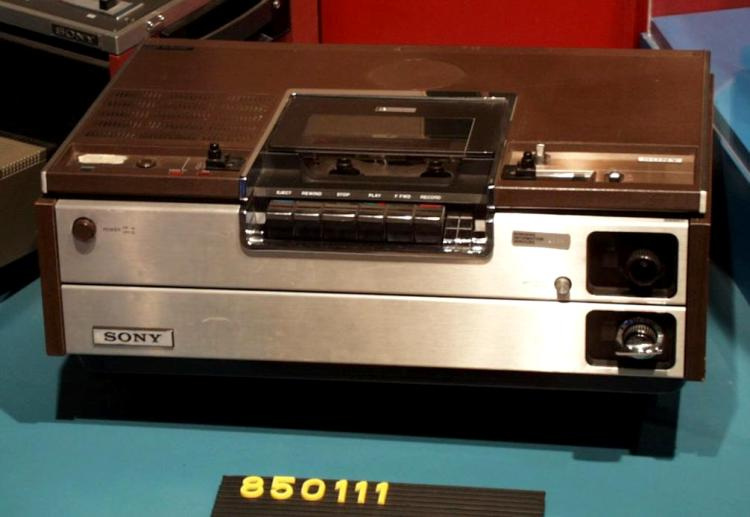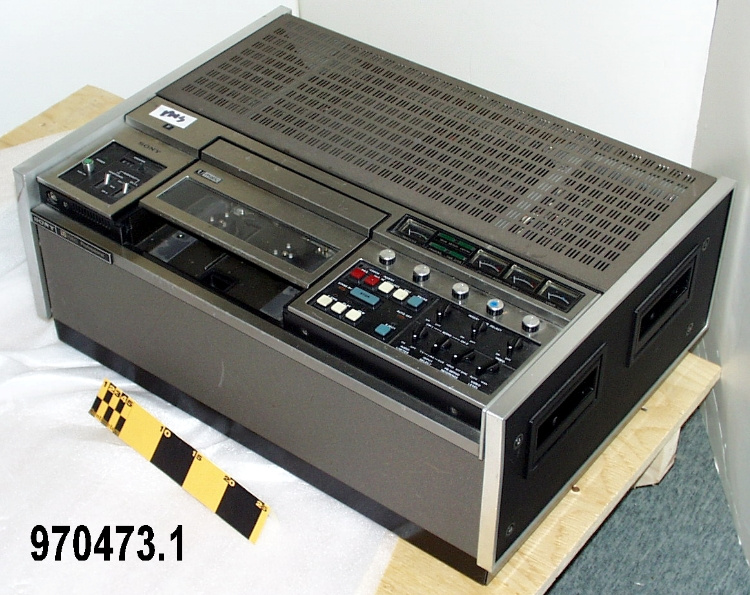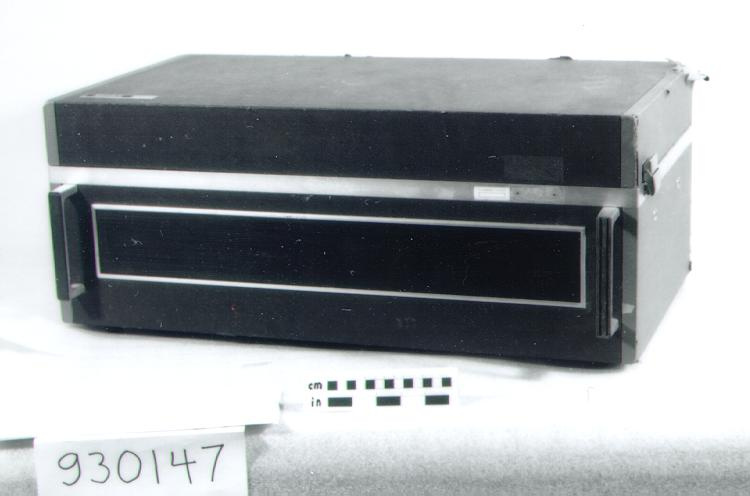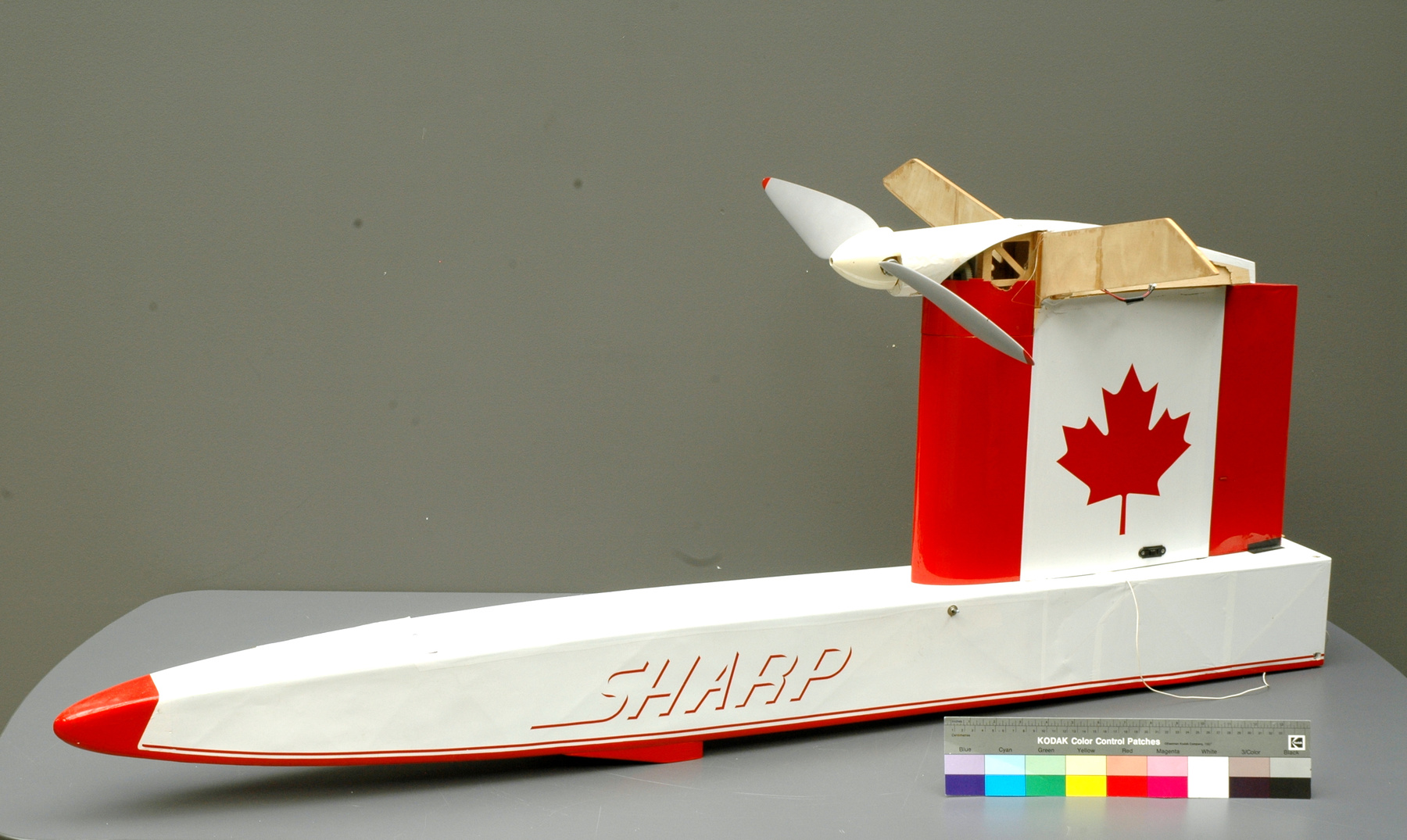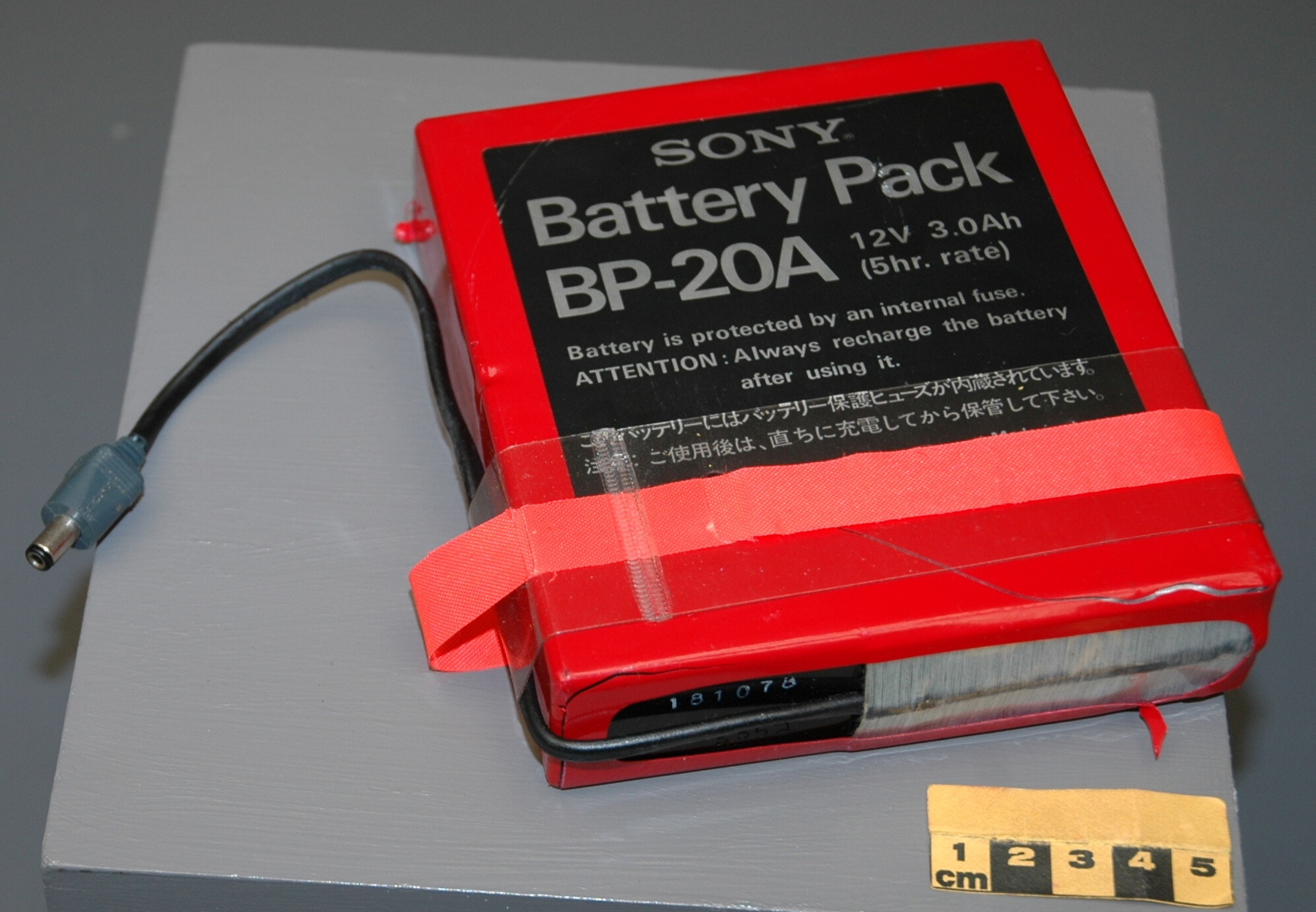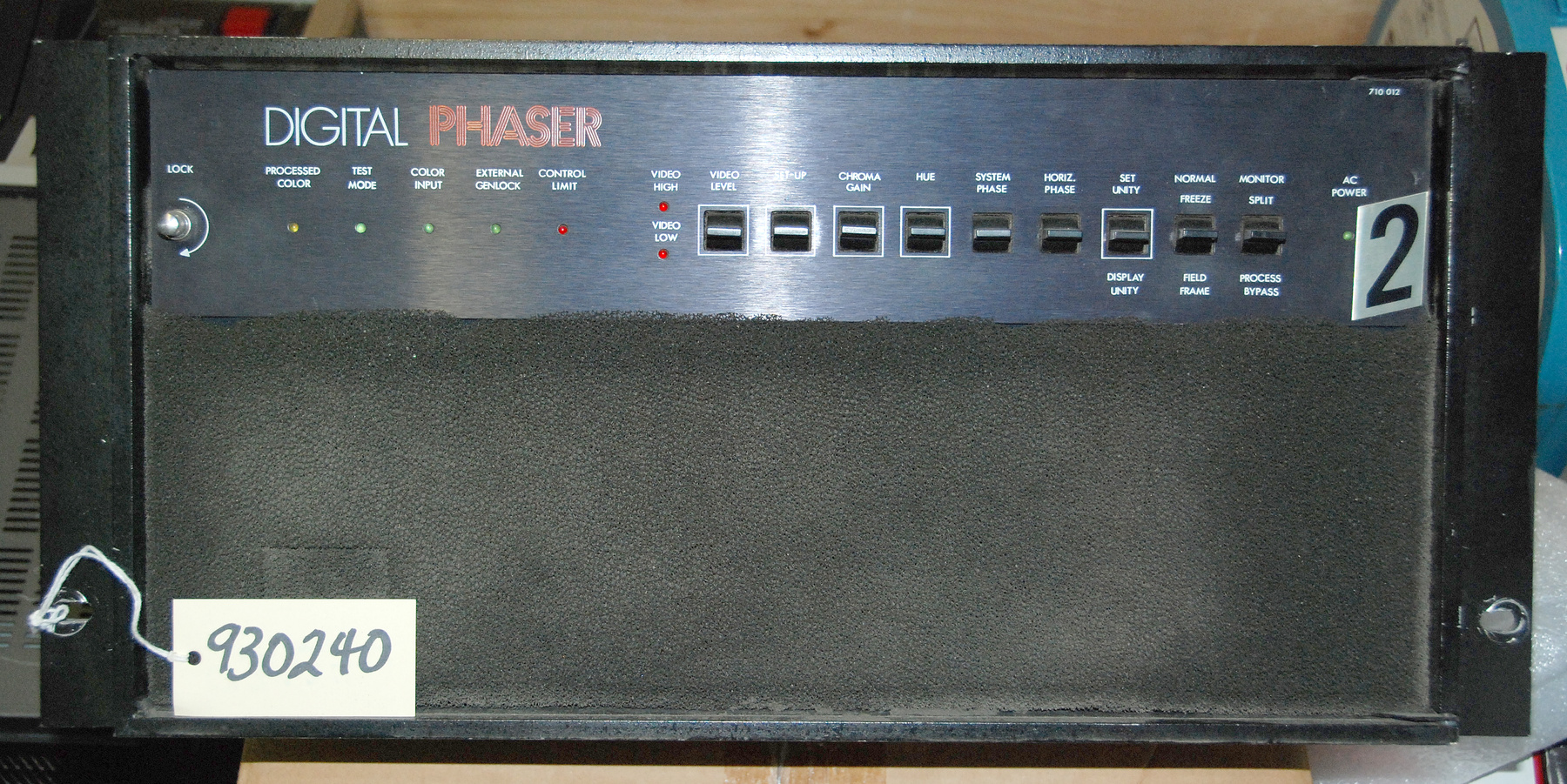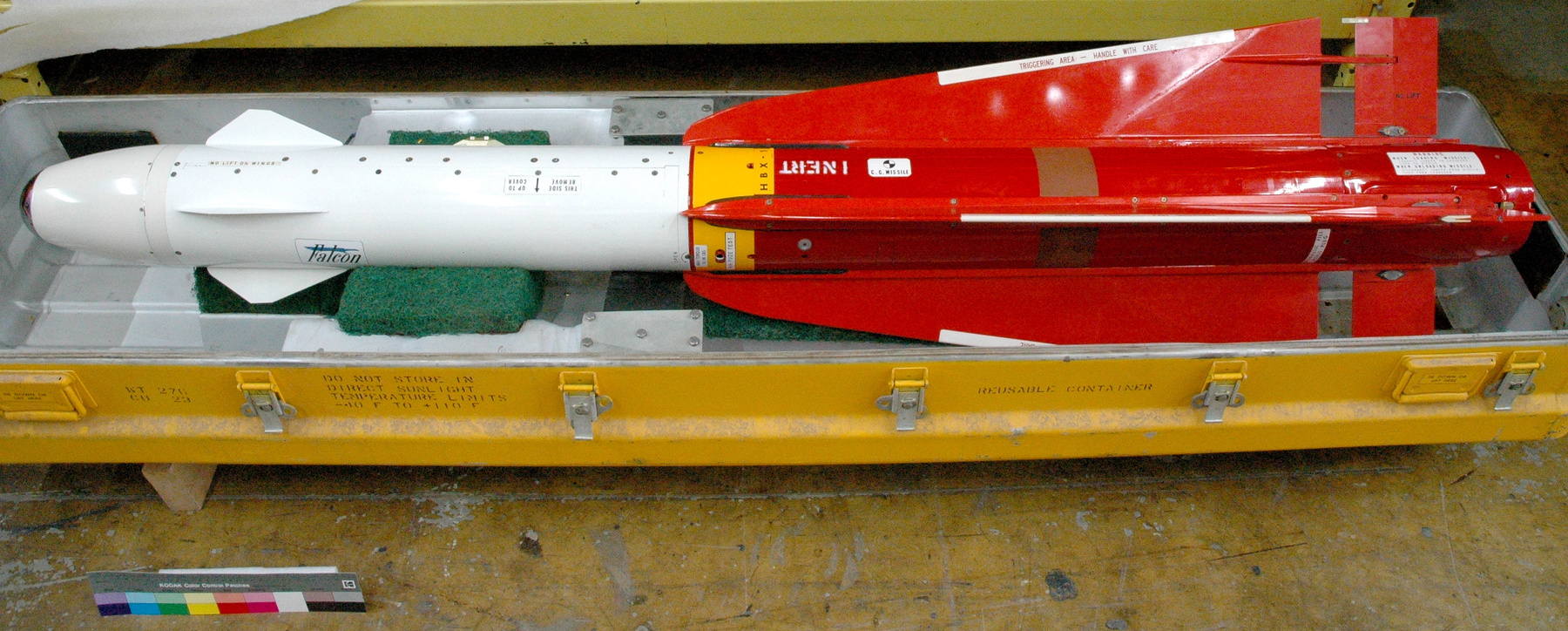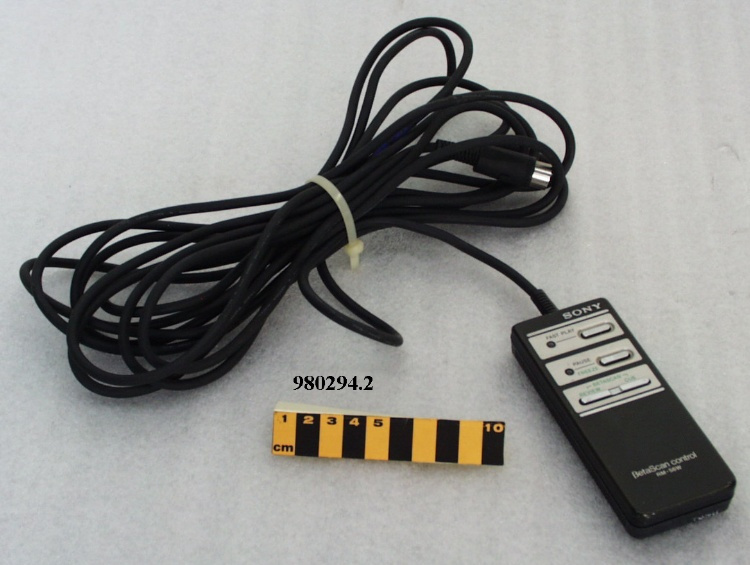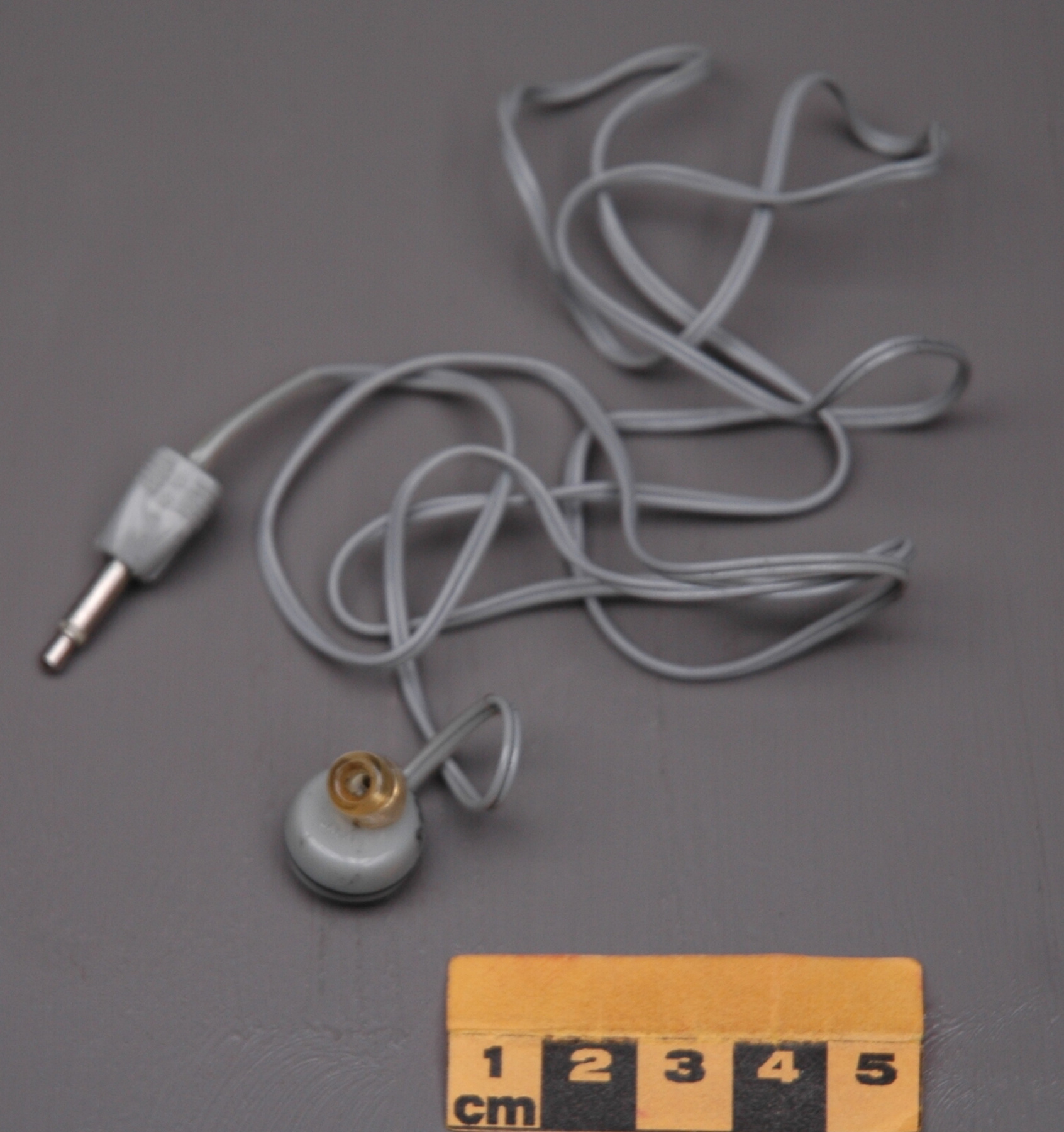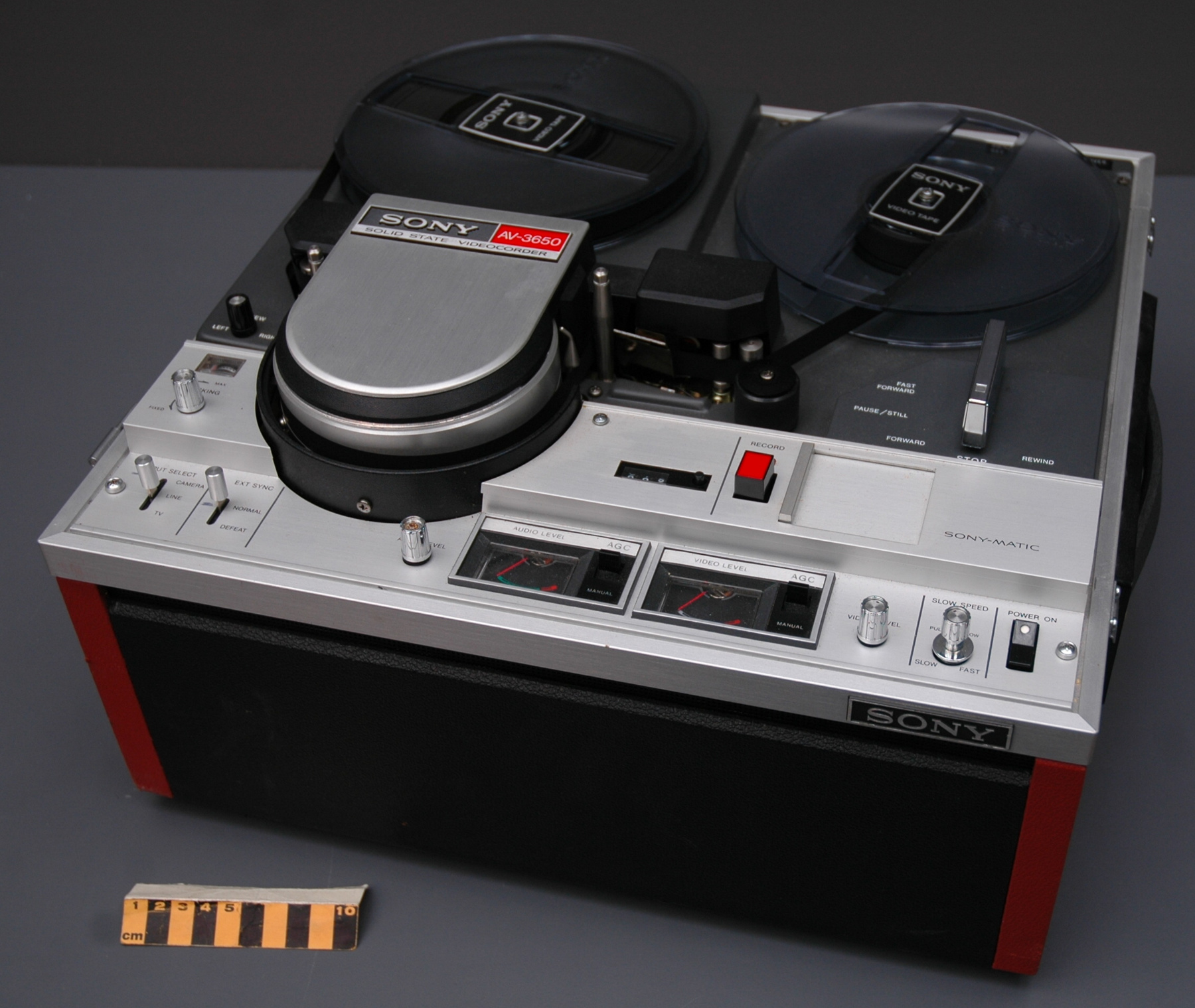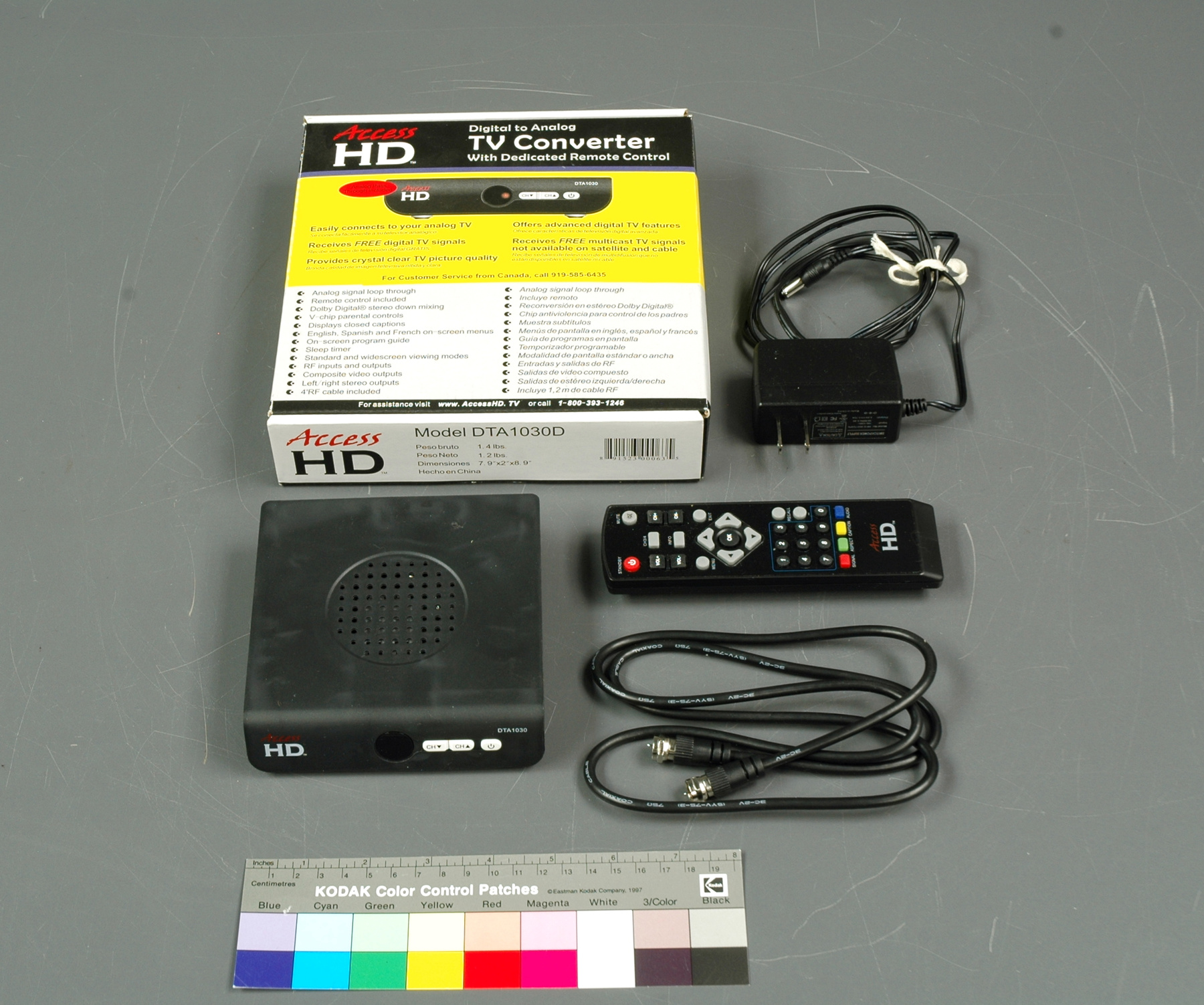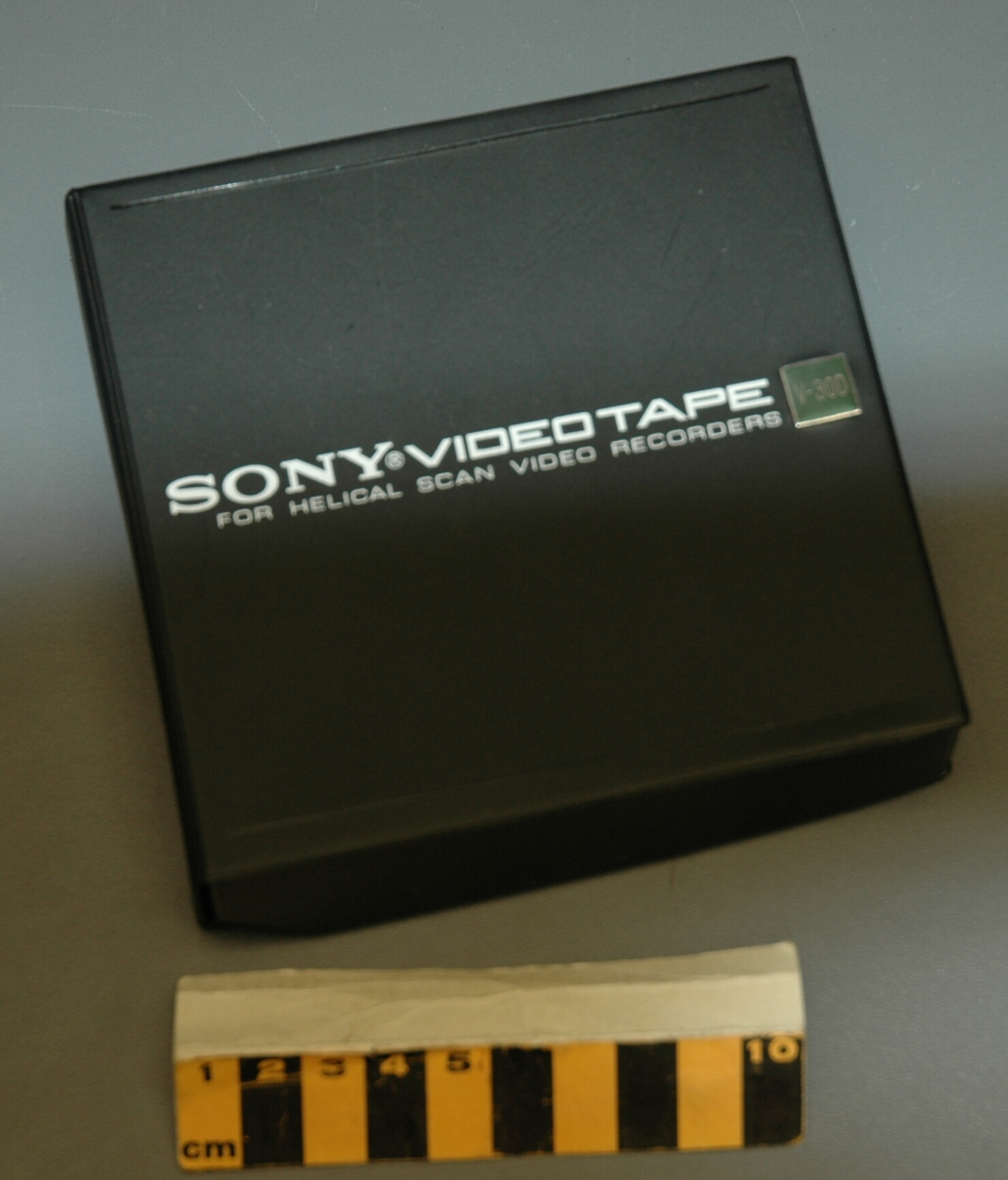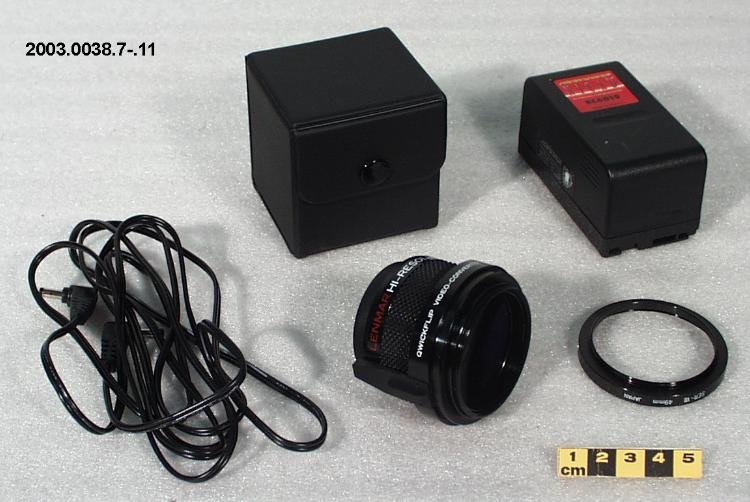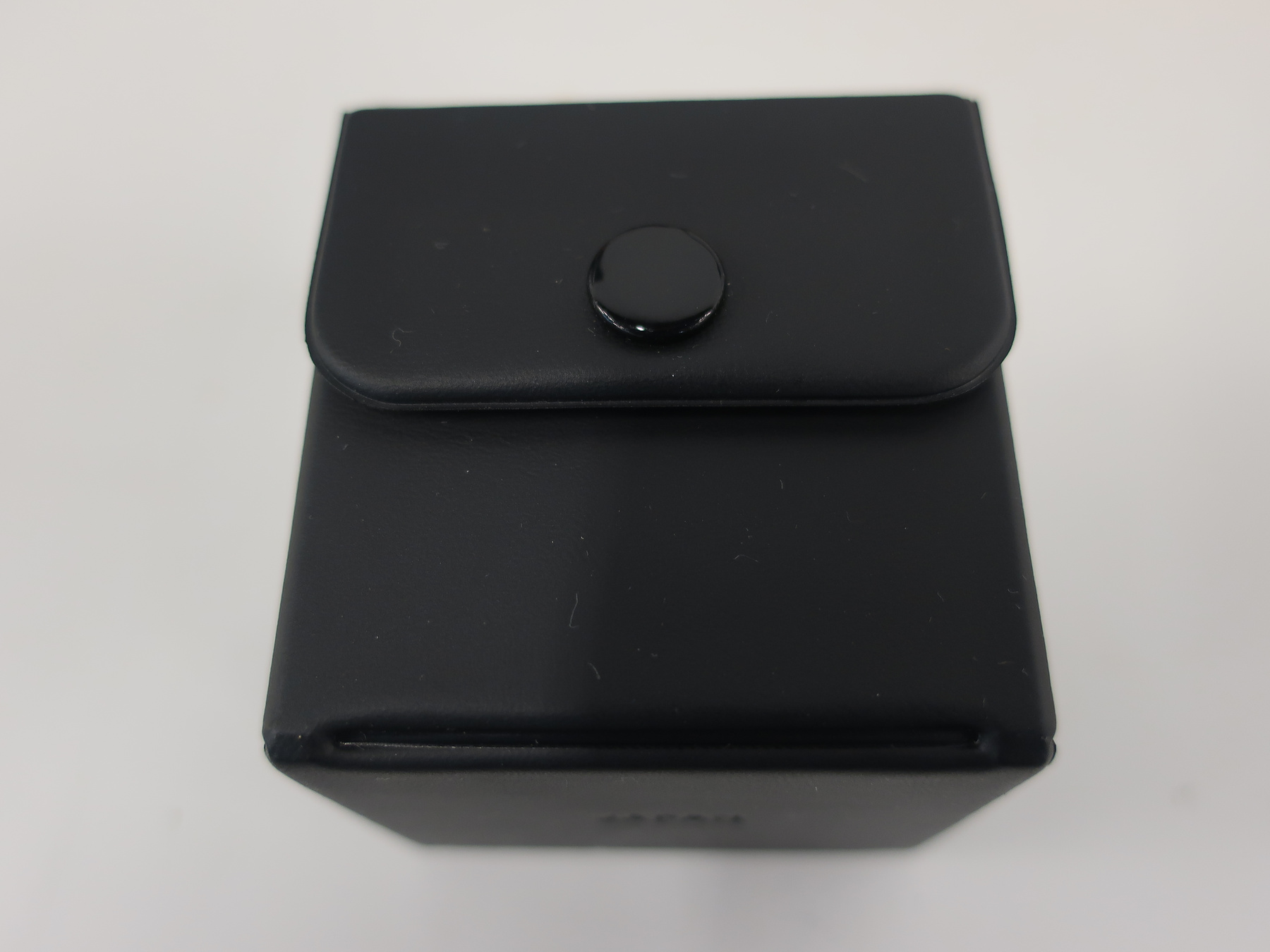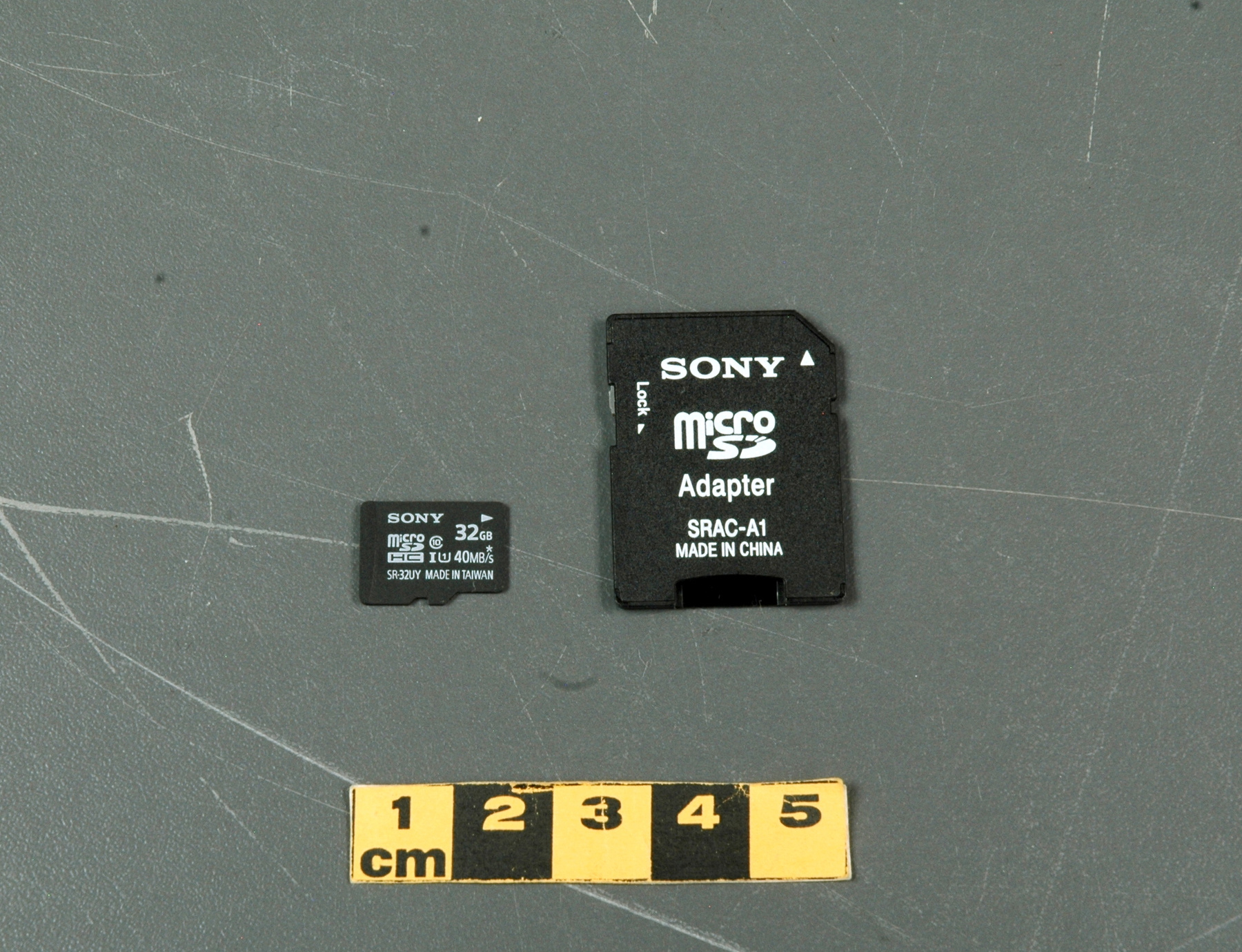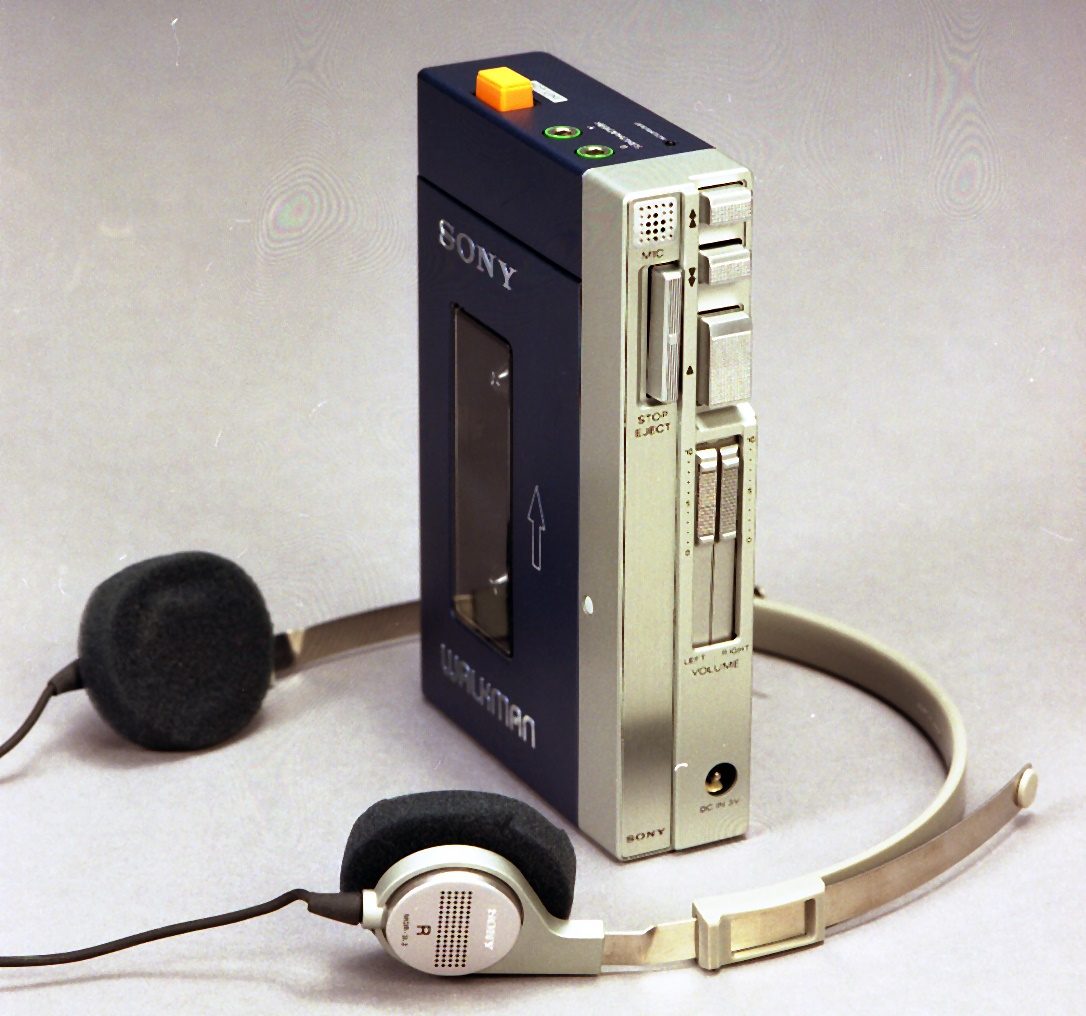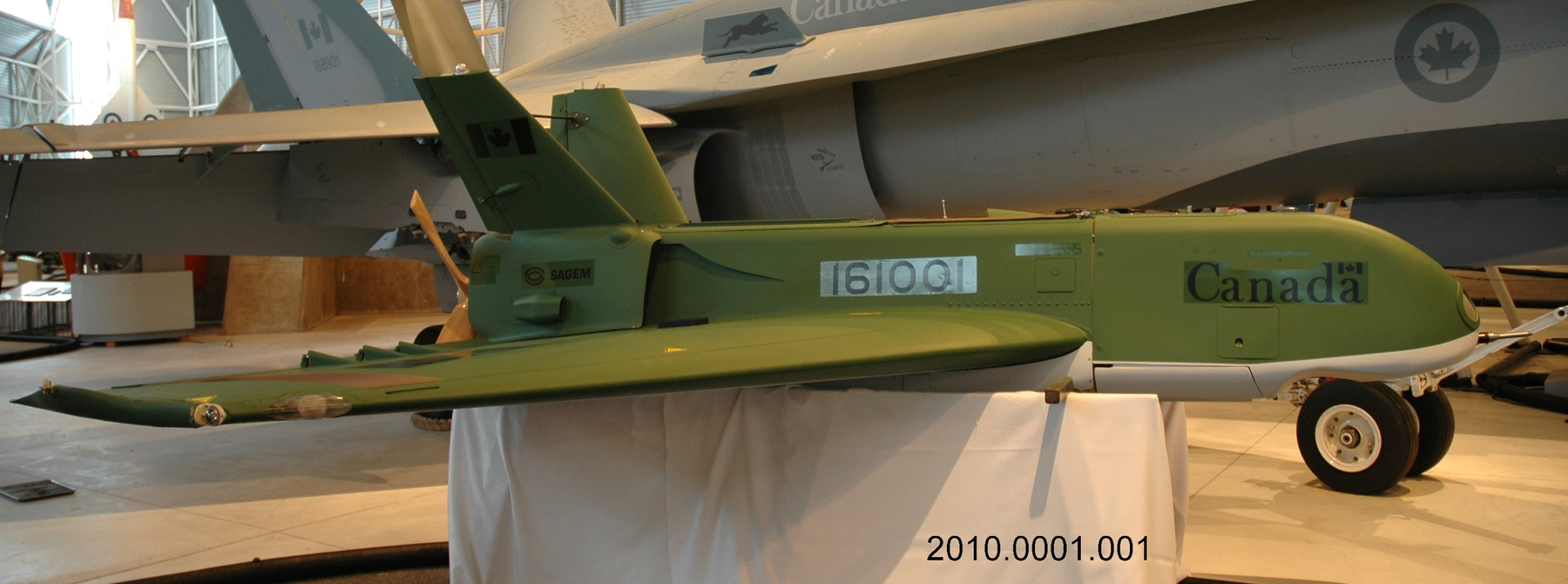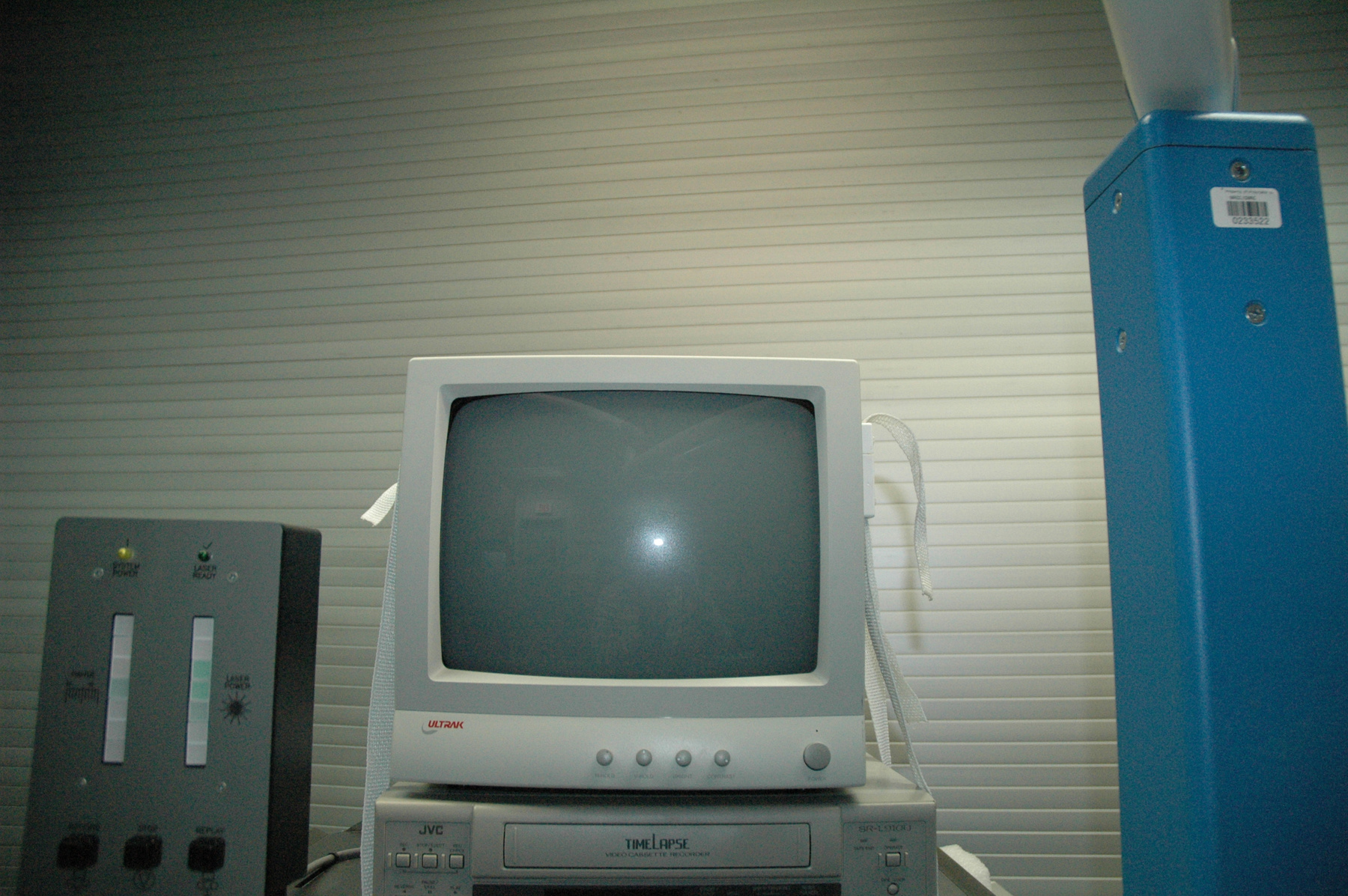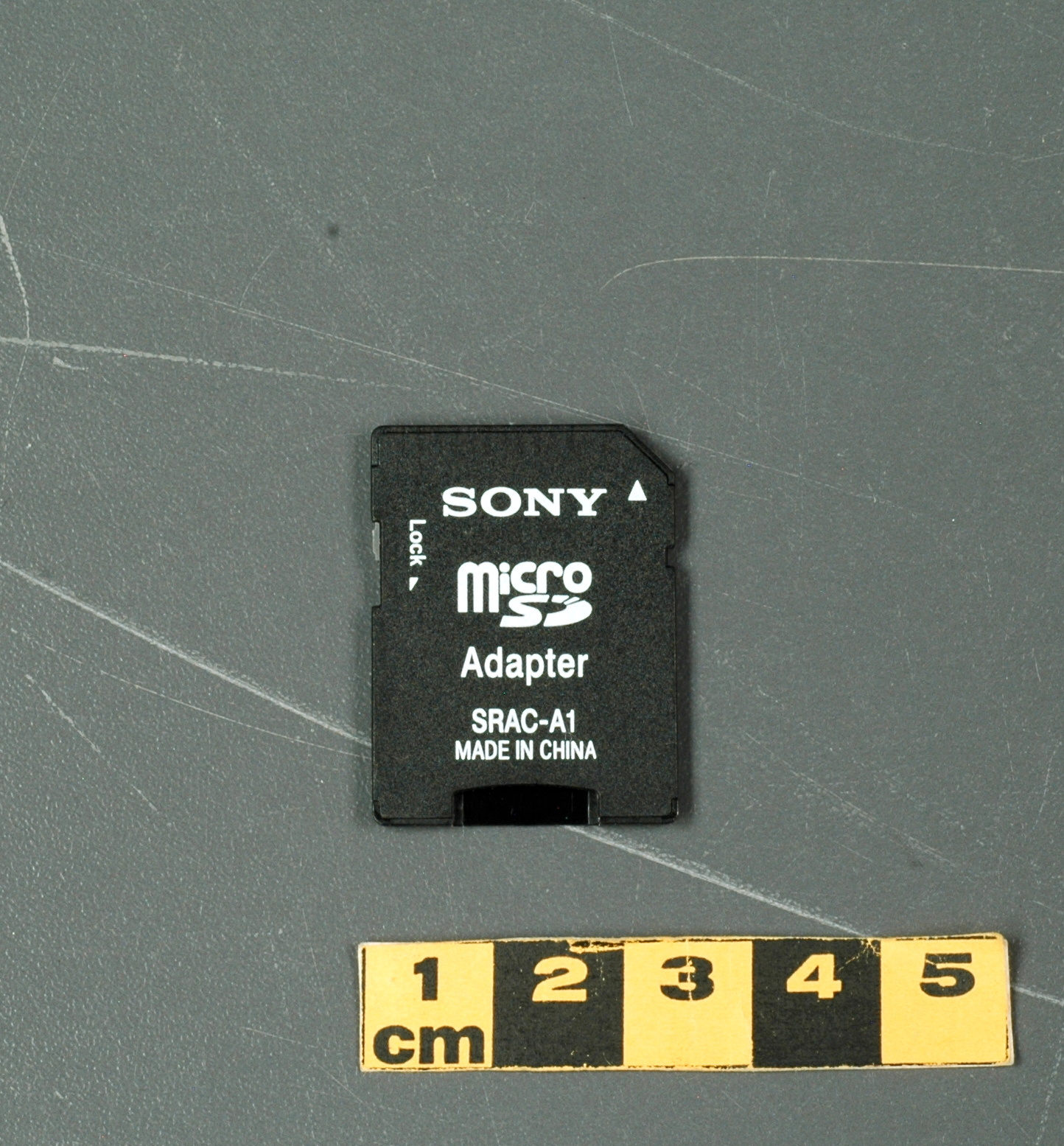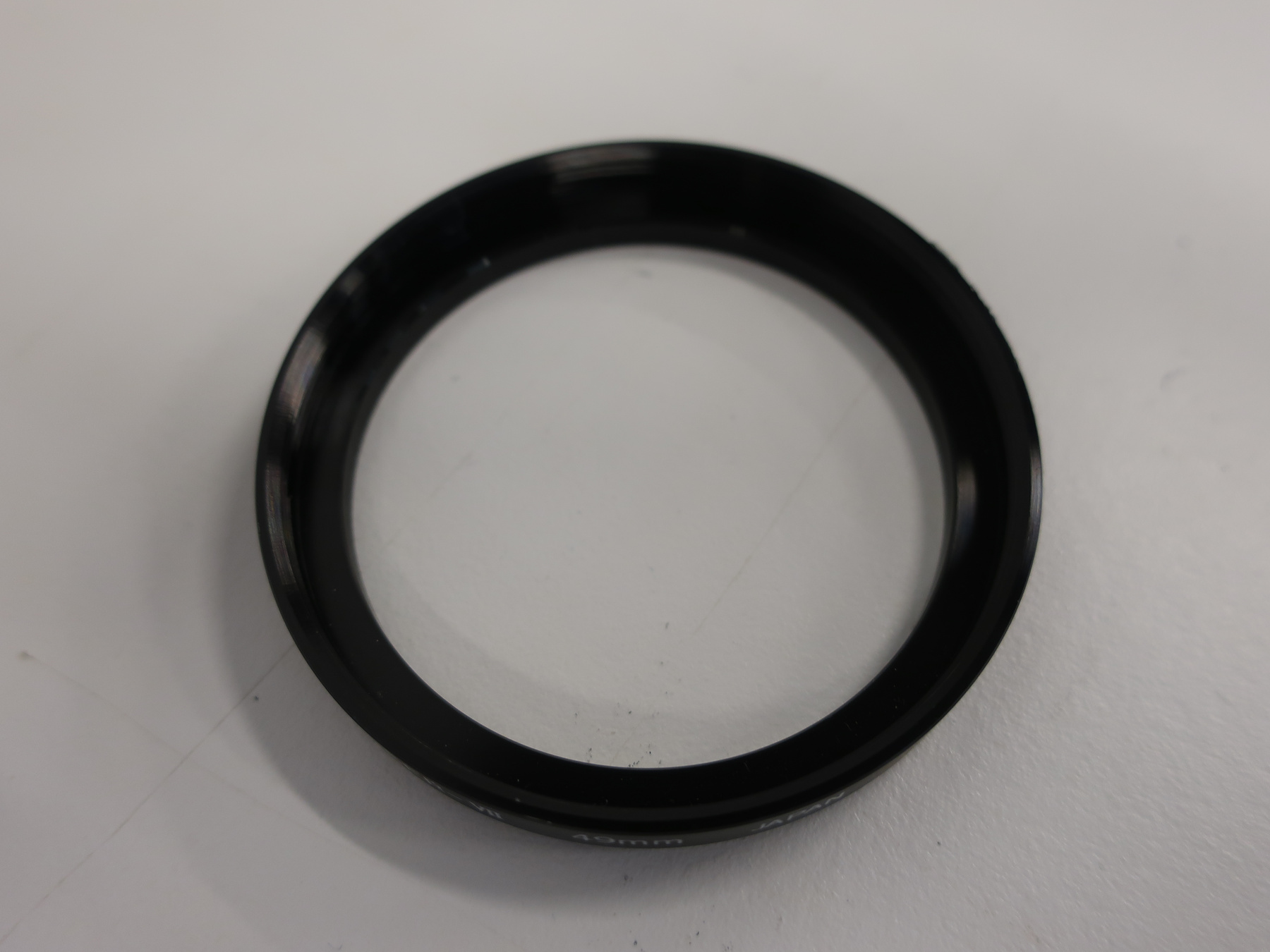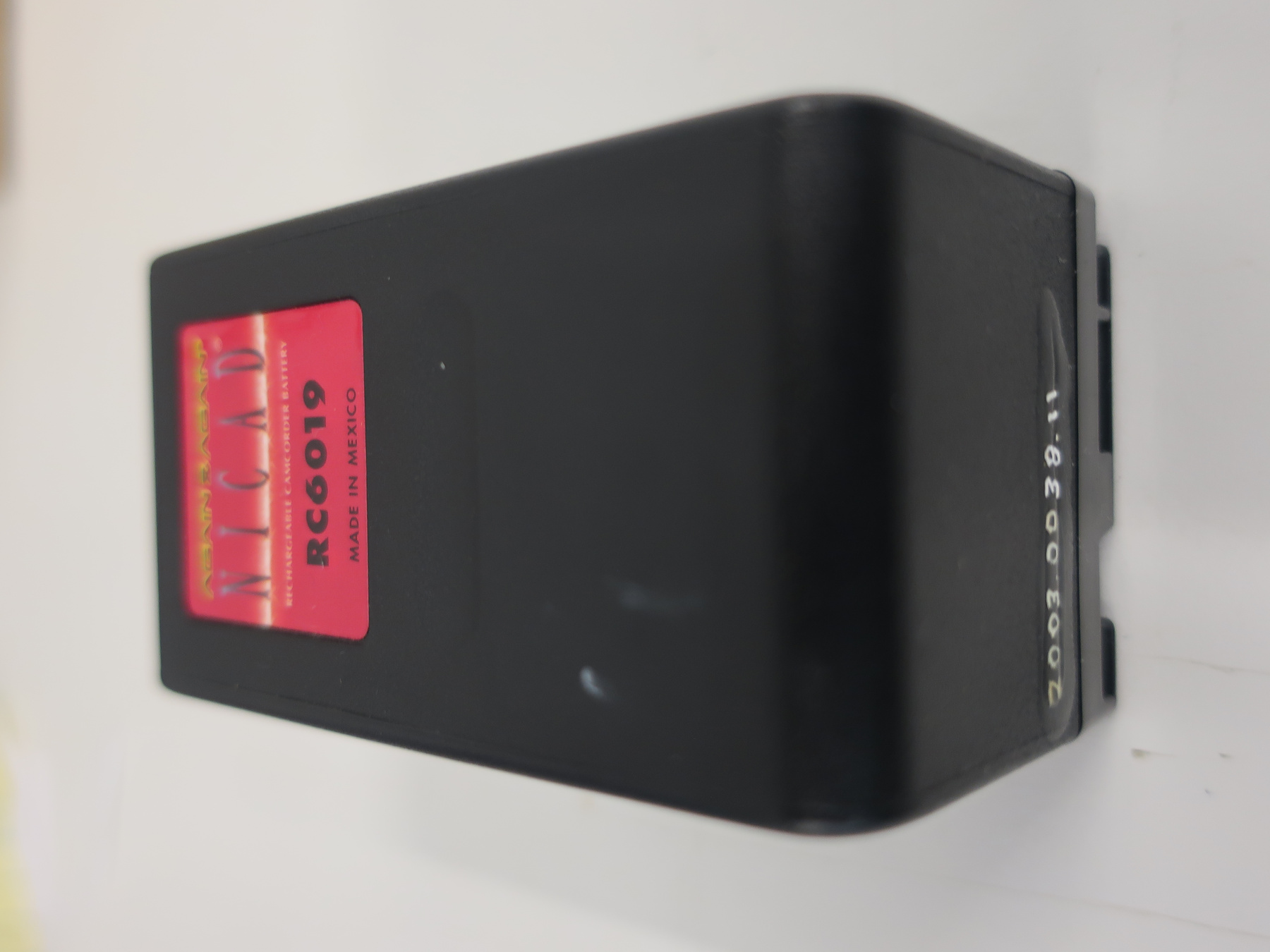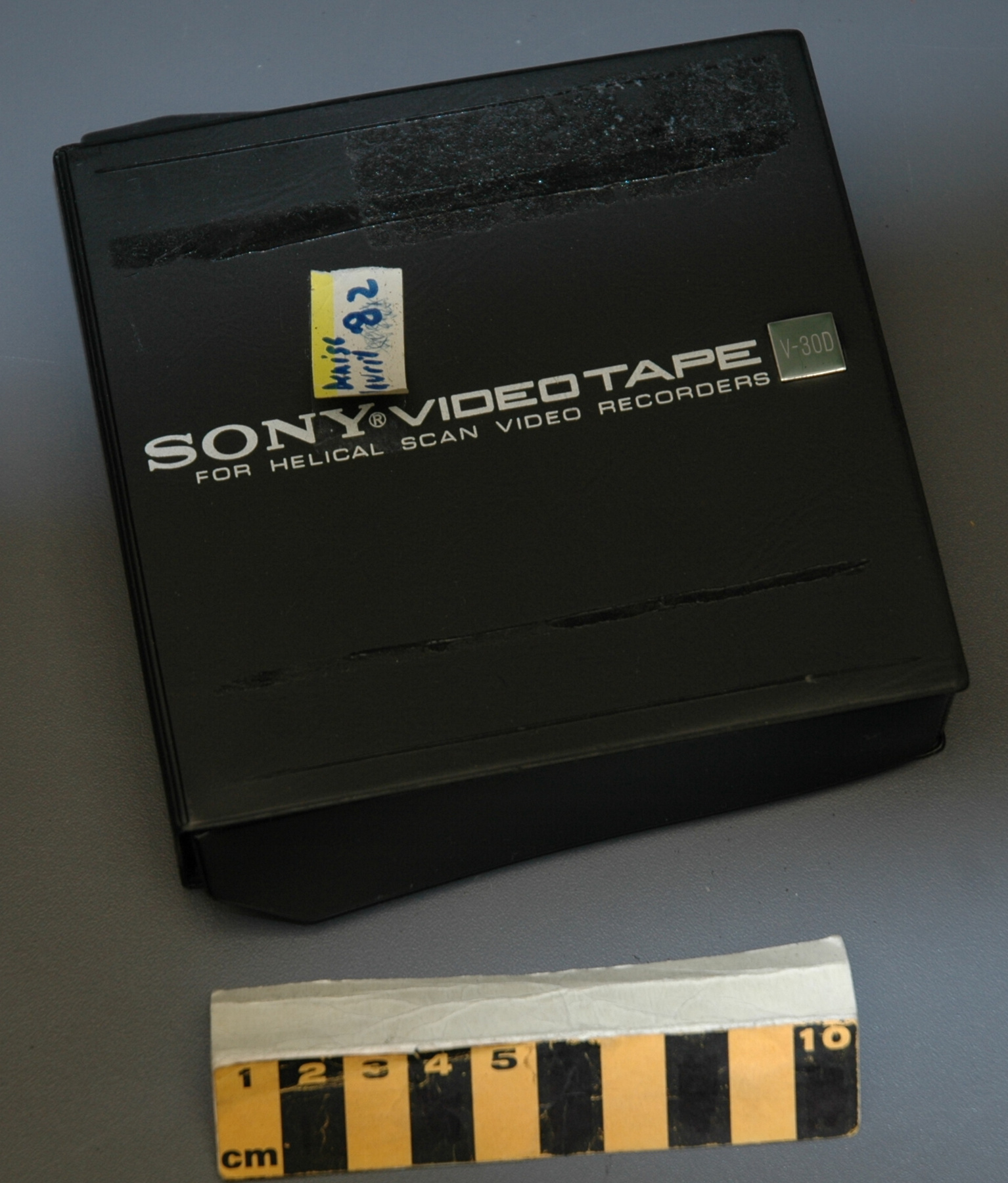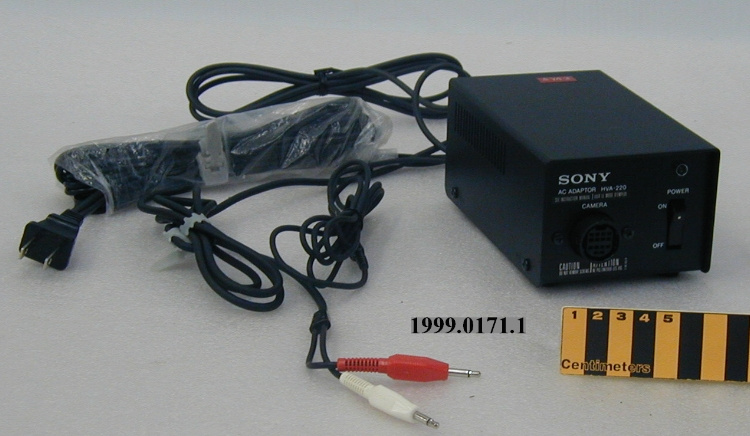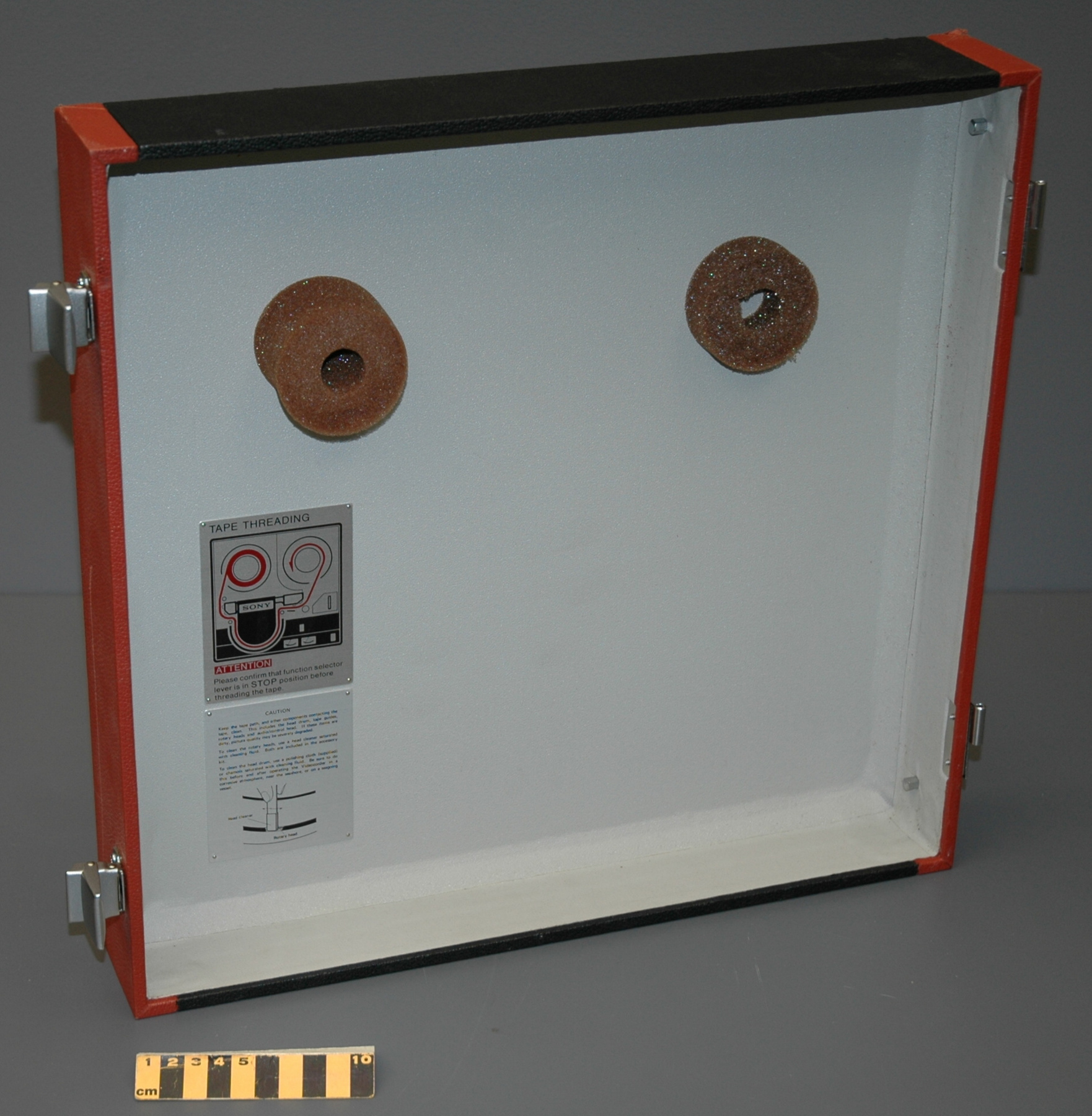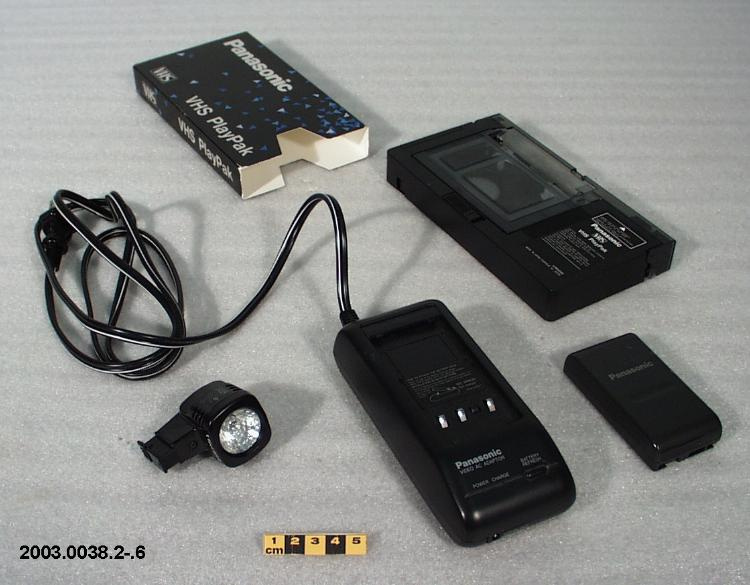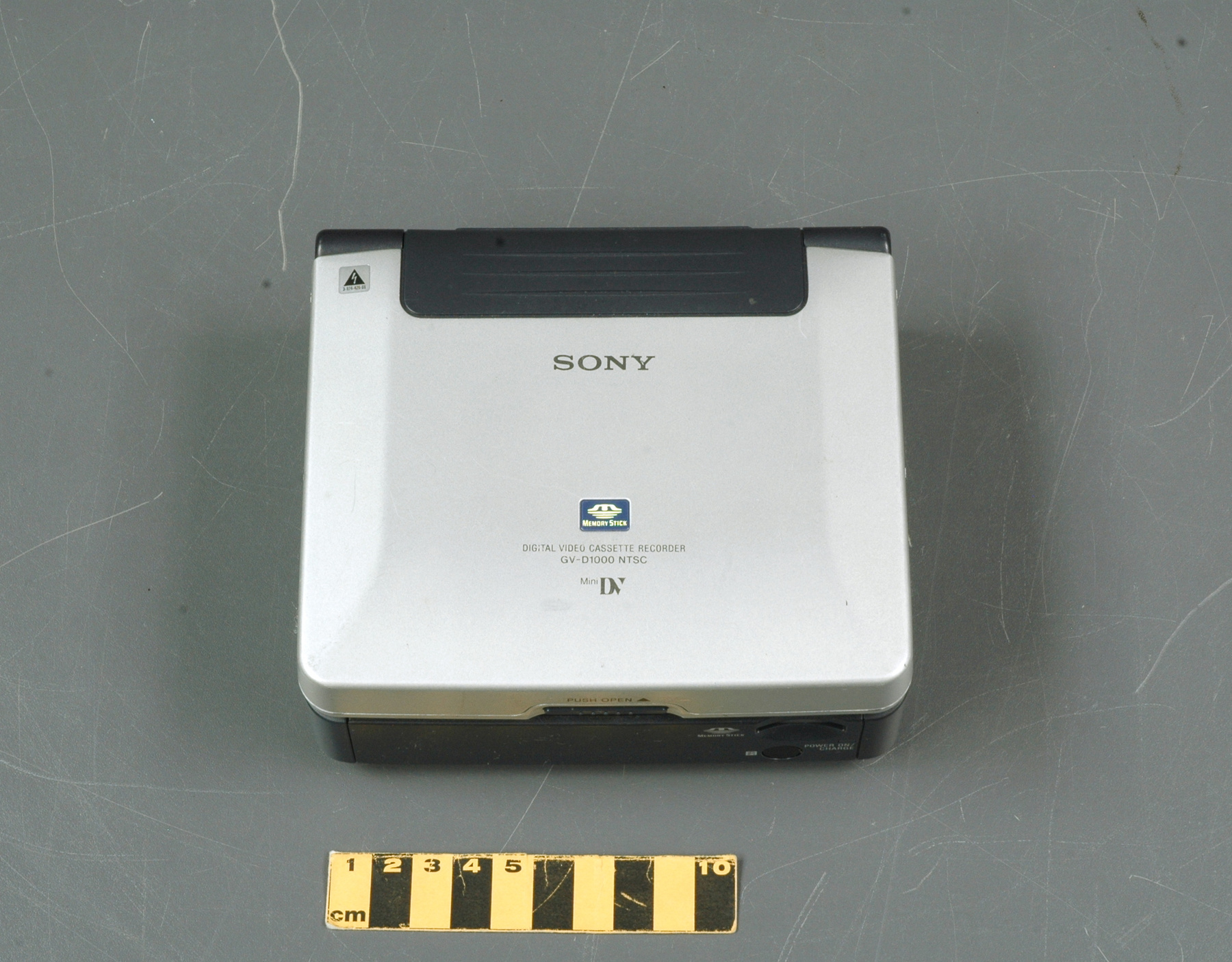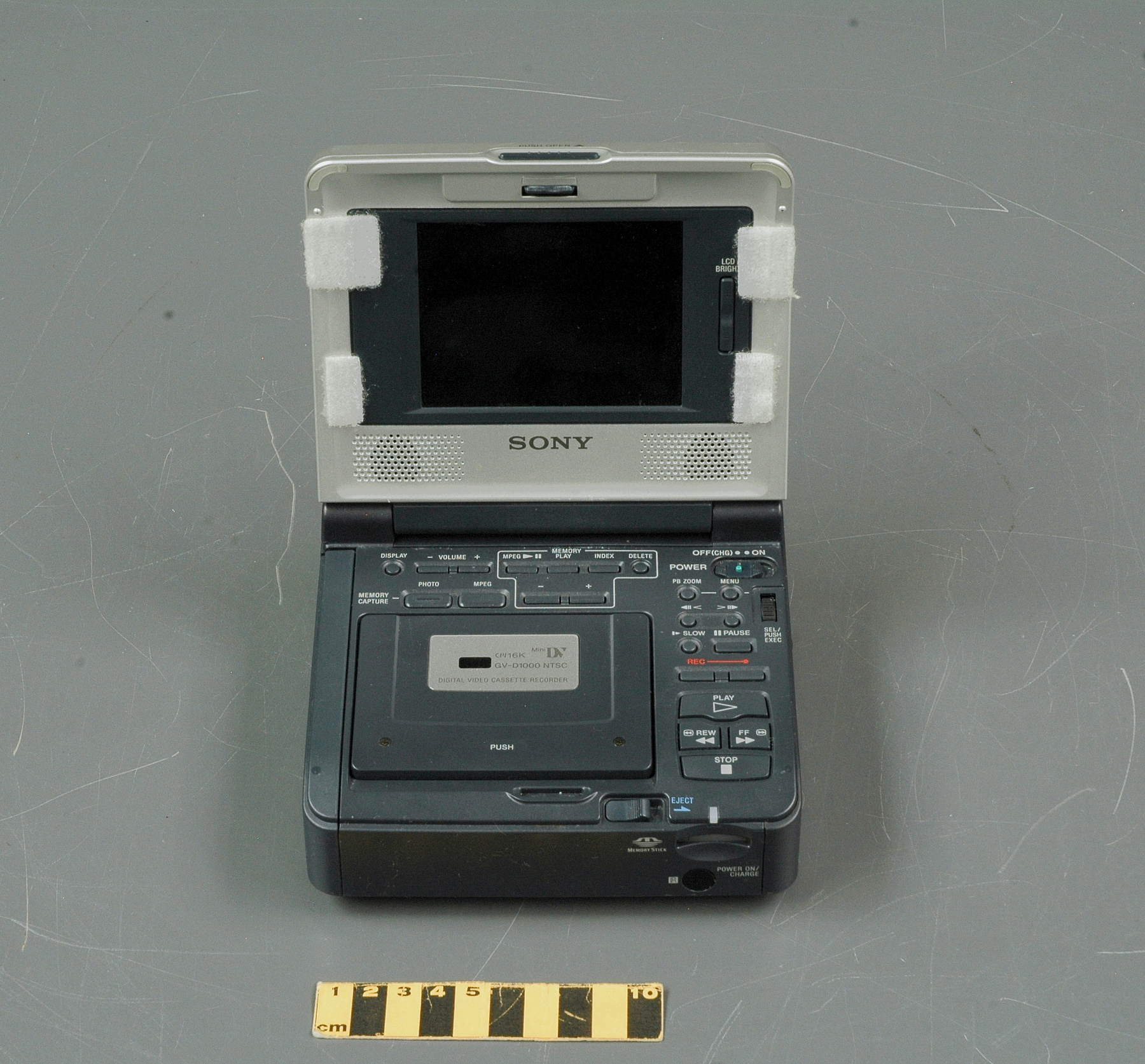Recorder-player, video
Use this image
Can I reuse this image without permission? Yes
Object images on the Ingenium Collection’s portal have the following Creative Commons license:
Copyright Ingenium / CC BY-NC-ND (Attribution-NonCommercial 4.0 International (CC BY-NC 4.0)
ATTRIBUTE THIS IMAGE
Ingenium,
2011.0158.020
Permalink:
Ingenium is releasing this image under the Creative Commons licensing framework, and encourages downloading and reuse for non-commercial purposes. Please acknowledge Ingenium and cite the artifact number.
DOWNLOAD IMAGEPURCHASE THIS IMAGE
This image is free for non-commercial use.
For commercial use, please consult our Reproduction Fees and contact us to purchase the image.
- OBJECT TYPE
- digital/Mini-DV/monitor
- DATE
- 2002
- ARTIFACT NUMBER
- 2011.0158.020
- MANUFACTURER
- Sony Corp.
- MODEL
- GV-D1000
- LOCATION
- Japan
More Information
General Information
- Serial #
- 320418
- Part Number
- 20
- Total Parts
- 25
- AKA
- N/A
- Patents
- N/A
- General Description
- Synthetic body with metal fasteners and connectors
Dimensions
Note: These reflect the general size for storage and are not necessarily representative of the object's true dimensions.
- Length
- 14.8 cm
- Width
- 13.3 cm
- Height
- 6.3 cm
- Thickness
- N/A
- Weight
- N/A
- Diameter
- N/A
- Volume
- N/A
Lexicon
- Group
- Aviation
- Category
- Communications
- Sub-Category
- N/A
Manufacturer
- AKA
- Sony
- Country
- Japan
- State/Province
- Unknown
- City
- Unknown
Context
- Country
- Canada
- State/Province
- Ontario
- Period
- 2007-2009
- Canada
-
Unmanned Aerial Vehicles, or UAVs, have existed as long as manned aircraft. They have been operated mainly by the military, but recent technological changes are expanding the ways they are used. Wayne Crowe, of Unmanned Systems Canada, writes that “rapid miniaturization of electronics of all sorts and developments in communications technologies, optical sensors and access to cheap, flexible computing devices” have made UAVs more affordable and increased the range of possible civilian applications. In the past decade, UAVs have been used in Canada for the following civilian tasks: photo reconnaissance by police forces; aerial photography; crop monitoring; industrial safety inspections; iceberg monitoring; wildlife research and surveillance; coastal surveillance; geophysical surveys; forest fire monitoring; search and rescue applications (disaster relief); flood monitoring; power line surveys; pipeline monitoring and maintenance; dam inspections; border and harbour patrols; and arctic research and monitoring. People in the field of unmanned vehicles believe that the number of civilian UAVs will continue to increase, arguing that UAVs can have many benefits over manned aircraft, such as cost, environmental situations in which they can be used, and the length of time they can be flown. Though there are a growing number of civilian UAVs, the regularity with which they can be used is severely limited by government regulations. Operators of “non-hobby” UAVs need Transport Canada’s permission to fly their aircraft. Since the Canadian Aviation Regulations (CARs) were written for manned aircraft and do not specifically cover UAVS, operators must apply for a Special Flight Operating Certificate (SFOC). SFOCs limit where the UAV can be used, must be applied for for each mission, and take time to obtain. The UAV being proposed, the FIU-301, was the first UAV to obtain a standing SFOC that is renewable on an annual basis. With this SFOC, the FIU-301 became the first government-approved UAV operated regularly in North America by a civilian agency. FIU-301 was designed and built by Marc Sharpe, Identification Constable for the Kenora Forensic Unit, Ontario Provincial Police (OPP). Along with the Thunder Bay Unit, the Kenora Forensic Unit provides forensic identification services to the OPP’s 560, 000 sq/km Northwest Region with forensic identification services. Constable Sharpe developed the FIU-301 to replace manned aircraft chartered by the OPP to take aerial photos of crime scenes. Sharpe believed a UAV could provide the same service at a much cheaper cost. A number of factors influenced Constable Sharpe’s decision to build a UAV, rather than purchase a commercially produced model. Besides the fact that he had 15 years experience building radio controlled model aircraft and he looked forward to the challenge, there was nothing available that met his needs and was affordable for the police force. The OPP was unwilling to invest in a lot of money in a technology that had not been regularly employed in North America,. Sharpe believed that if he “could come up with a proof of concept system that would demonstrate the value of [the] technology, it would lead to use of commercially produced systems in the future.” Constable Sharpe started working on the UAV in early 2005. Having an existing workshop in his garage, he worked out of his home on what was to become the FIU-301. The project took over 400 hours and involved not only the development and testing of three different aircraft, but also consultations with government to produce a SFOC that was good for one year and was not limited to a specific time or location. The FIU-301’s first operational mission was on 3 October, 2007, at a homicide scene on the Severn River, 4 km upstream from Hudson’s Bay. Over the next year, the FIU-301 was used at the scenes of six other homicides and saved the police force an estimated $20,000. Images from these missions were used as evidence in court. The FIU-301’s success led to Marc Sharpe and the OPP’s further involvement the UAV community. Sharpe and the OPP have been offered commercially produced UAVs by three different companies in exchange for operational assessments. Only two of these UAVs, Draganfly Innovations Inc.’s X-6 and Aeryon Labs Inc.’s Scout, both Canadian, received Federal approval. (The X-6 made the FIU-301 obsolete, and it was retired 1 January, 2009.) Constable Sharpe is now on the Board of Directors for Unmanned Systems Canada, has organized a workshop training emergency services on UAV use, and was part of a Transport Canada working group that rewrote the ministry’s staff instruction. (From Acquisition Proposal, see Ref. 1) - Function
-
Used as a monitor to view the video feed transmitted from the FIU-301 UAV while in the field. - Technical
-
The FIU-301 is technologically significant for a number of reasons. First, it represents developments in, and the decreasing price of, technologies used in UAVs. Though the Kenora OPP does not pay for its commercially produced UAVs, it is significant that Constable Sharpe was able to build one for $3000 and donated electronic components. Second, the homebuilt FIU-301 is an important step in bringing commercially produced UAVs to civilian users. The FIU-301 convinced the OPP that UAVs are a valuable technology and, by testing and promoting commercially produced UAVs, the OPP has marketed them to other emergency services. Third, the FIU-301 was a stage in the continuing technological development of civilian UAV technology. Sharpe learnt what changes were needed for a better UAV by regularly operating the FIU-301. He applied what he learnt in the partnerships he formed with Draganfly and Aeryon Labs. (From Acquisition Proposal, see Ref. 1) - Area Notes
-
Unknown
Details
- Markings
- On the proper top (when closed): "SONY/ [logo]/ MEMORY STICK/ DIGITAL VIDEO CASSETTE RECORDER/ GV-D1000 NTSC/ MiniDV"/ On the proper front: "PUSH OPEN"/ "[logo]/ MEMORY STICK/ POWER ON// CHARGE"/ On the proper right side: "RELEASE"/ On the proper left: "[headphone symbol]/ AUDIO/VIDEO/ INPUT/ ID-2/ LANC"/ Inside the access panel on the proper left for the connection ports: "S VIDEO/ IN/ S VIDEO/ OUT/ ID-2/ VIDEO OUT/ (MONO)/ L - AUDIO - R/ OUT"/ On the proper back, to the lefet of the battery compartment: "USB/ MODE/ VCR/ [logo]/ [USB symbol]"/ Recessed in a synthetic cover: "DC/ IN"/ Inside the battery compartment: "InfoLITHIUM M"/ To the right of the battery compartment: "BATT/ DV"/ On the proper bottom, on a silver-coloured sticker: "[lightning bolt symbol inside a triangle]/ CAUTION/ RISK OF ELECTRIC SHOCK/ DO NOT OPEN/ [! inside a triangle]/ 3-703-845-01/ ATTENTION/ RISQUE DE CHOC ELECTRIQUE NE PAS OUVRIR"/ On a grey sticker on the proper bottom: "This Class B digital apparatus/ complies with Canadian/ ICES-003./ Cet appareil numérique de la/ classe B est conforme à la/ norme NMB-003 du Canada./ 3-056-512-01"/ On a grey manufacturer's label on the proper bottom: "SONY [R] MODEL NO. GV-D1000/ DIGITAL VIDEO CASSETTE RECORDER 3-072-576-01/ NO. 320418/ [logo] Tested To Comply/ With FCC Standards/ FOR HOME OR OFFICE USE/ SONY CORPORATION/ MADE IN JAPAN/ DC 7.2V"/ Small grey sticker on the proper bottom: "Technology licensed by/ FAROUDJA/ Laboratories Inc. 01"/ On a small silver-coloured sticker on the proper bottom: "Listed 9C06/ UL/ [R]/ VIDEO/AUDIO PRODUCT/ 2A"/ Moulded into the synthetic casing at the bottom next to a small hole: "RESET"/ When the monitor is flipped open: below the monitor: "SONY"/ There are several buttons and switches, all labelled/ On the Mini-DV cassette door: "16K/ MiniDV/ GV-D1000 NTSC/ DIGITAL VIDEO CASSETTE RECORDER/ PUSH"
- Missing
- Missing the battery at the proper back.
- Finish
- Predominantly dark grey with a silver coloured finish on the proper top (when the monitor is closed). Also present are a blue logo on the proper top and a number of white or grey markings on several parts of the recorder. On the proper bottom are grey labels with white markings, a silver-coloured label with black markings and a silver-coloured label with blue markings.
- Decoration
- N/A
CITE THIS OBJECT
If you choose to share our information about this collection object, please cite:
Sony Corp., Recorder-player, video, after 2002, Artifact no. 2011.0158, Ingenium – Canada’s Museums of Science and Innovation, http://collection.ingeniumcanada.org/en/id/2011.0158.020/
FEEDBACK
Submit a question or comment about this artifact.
More Like This
